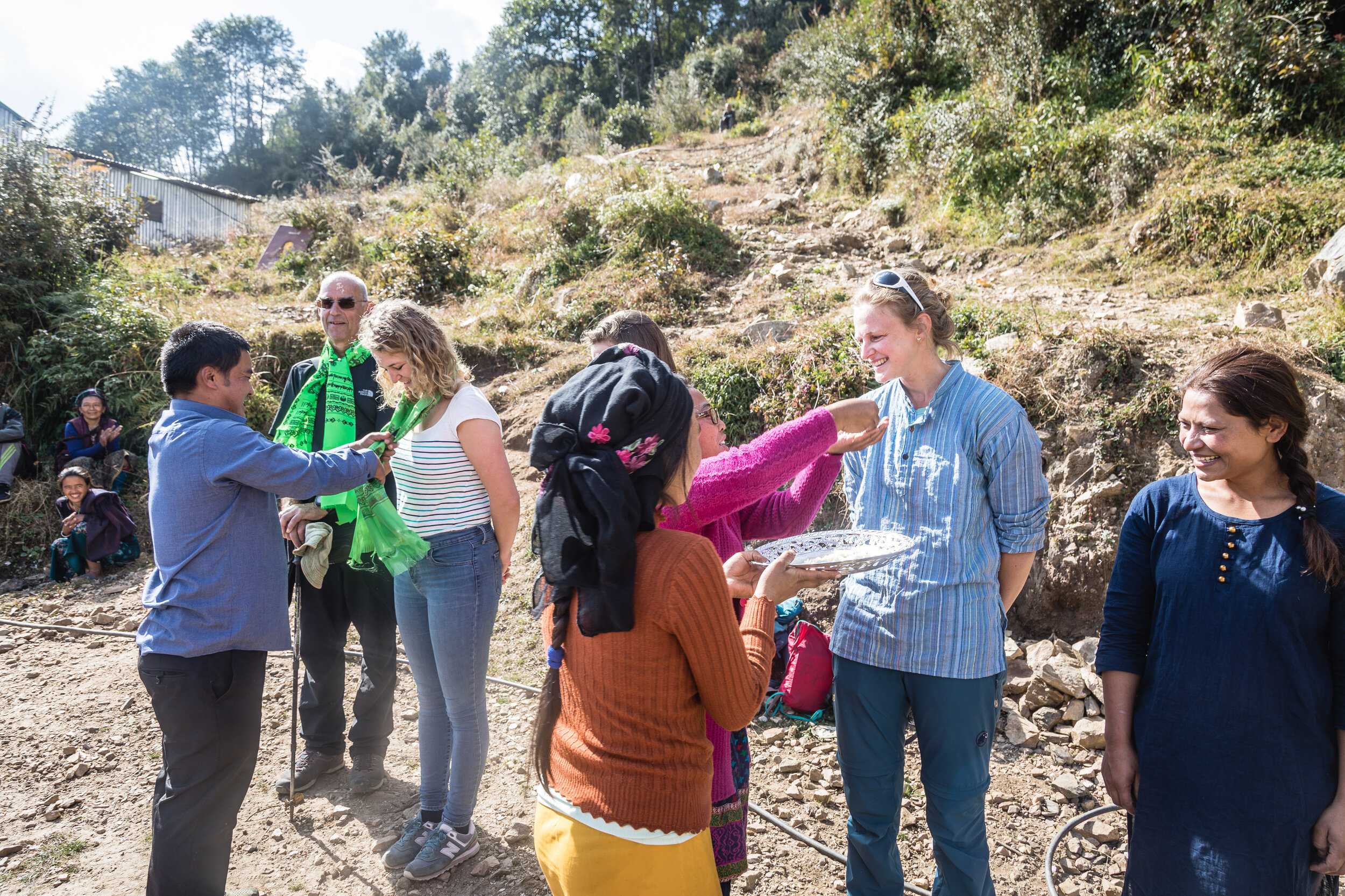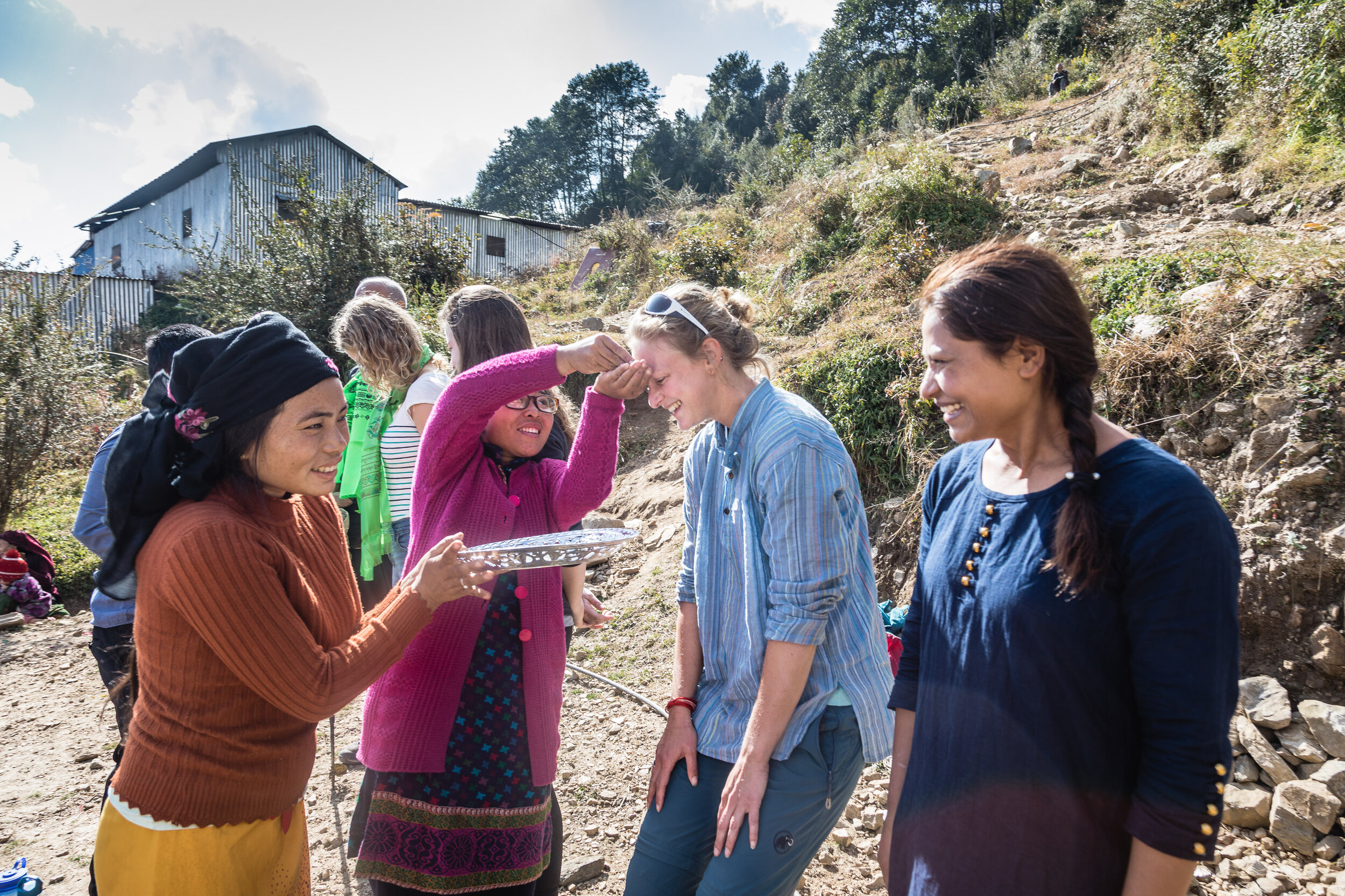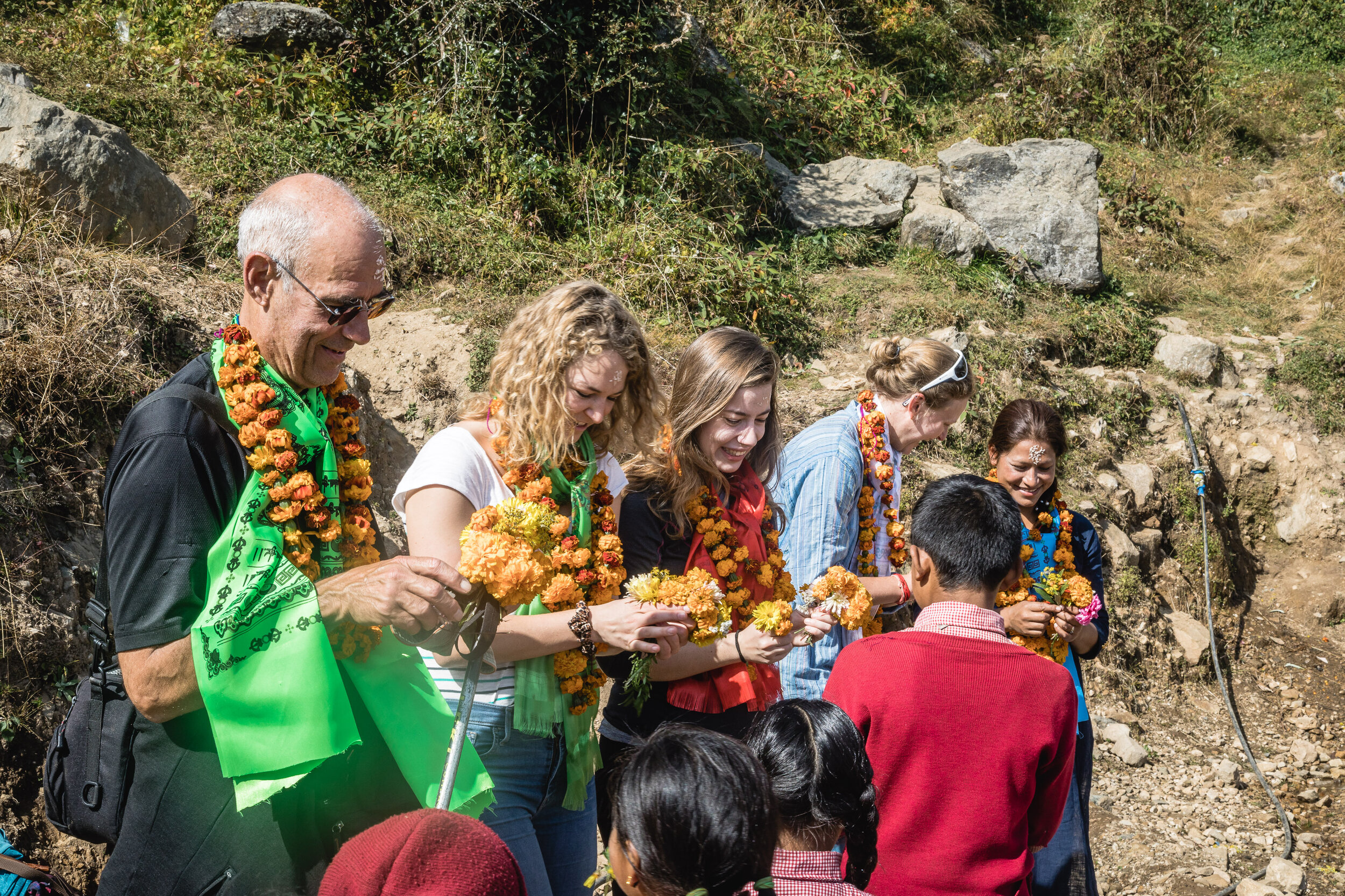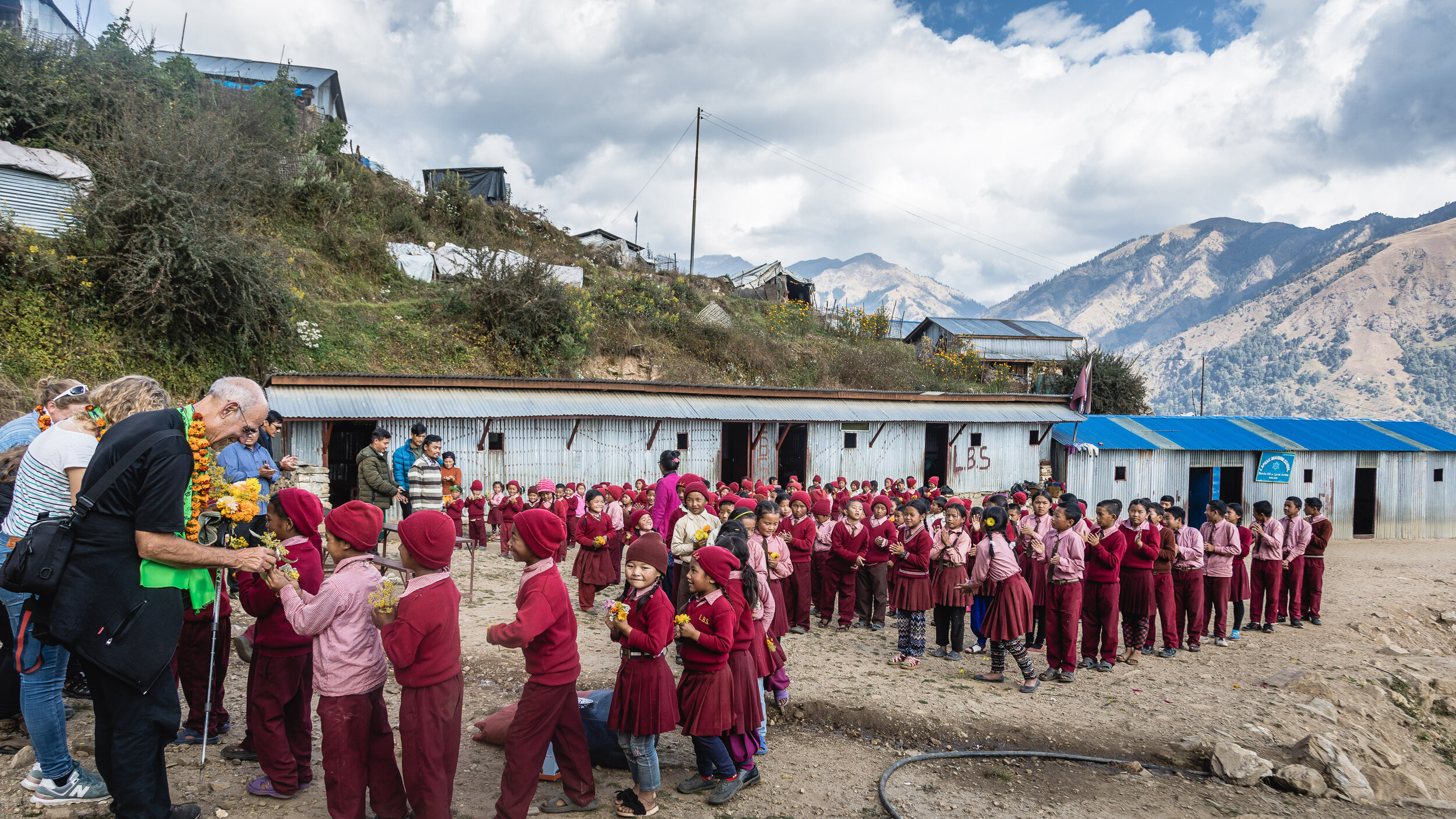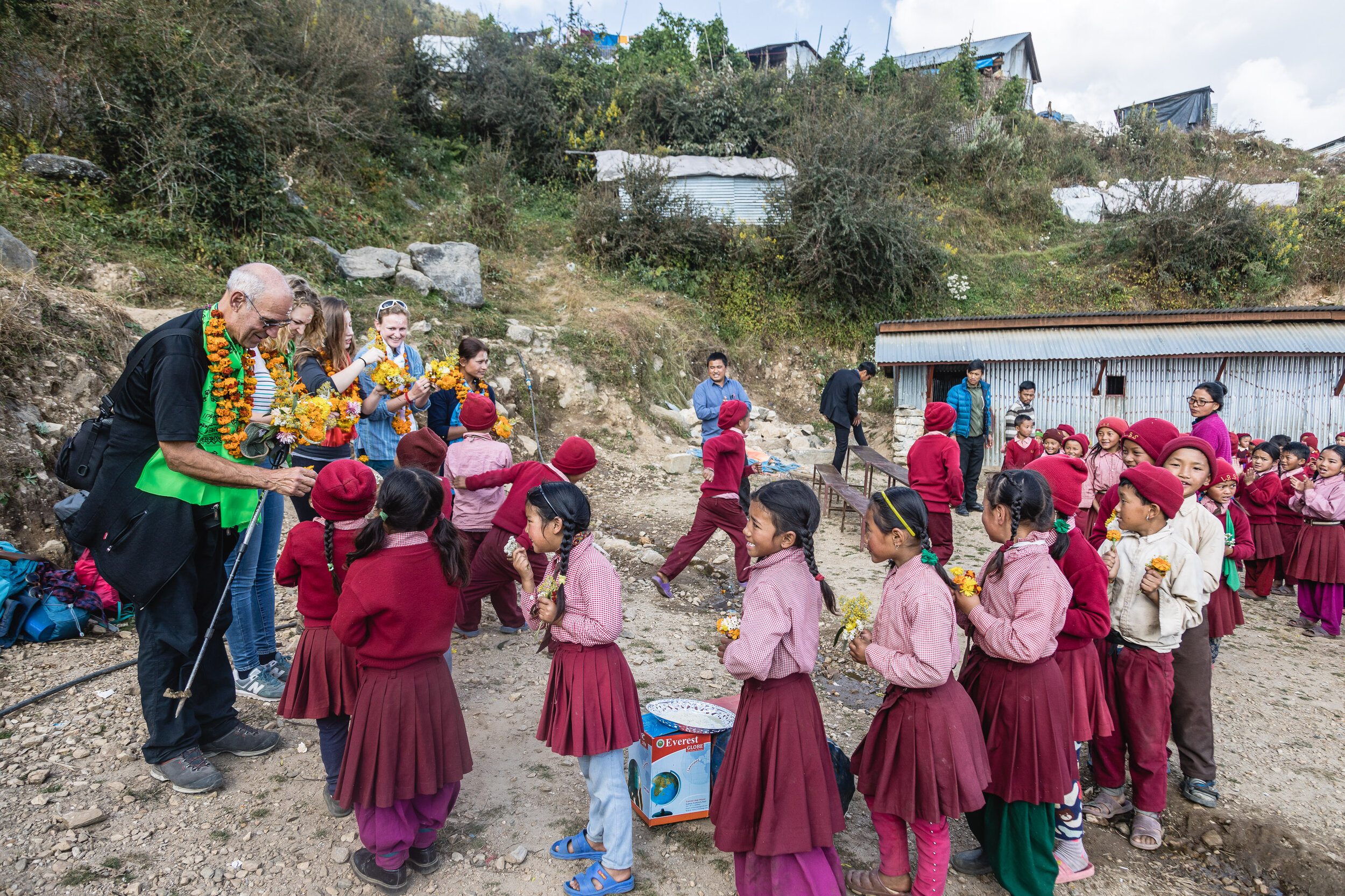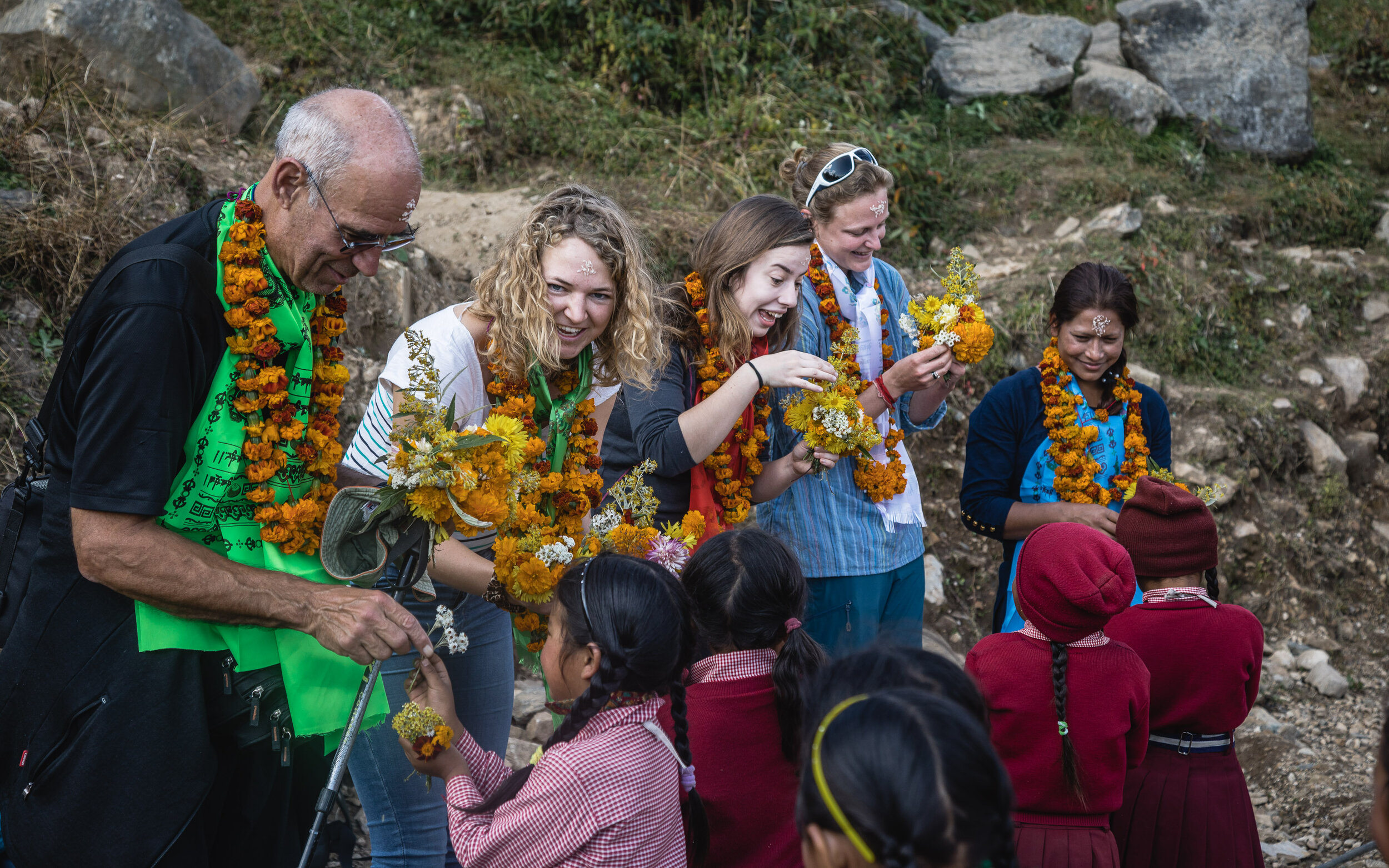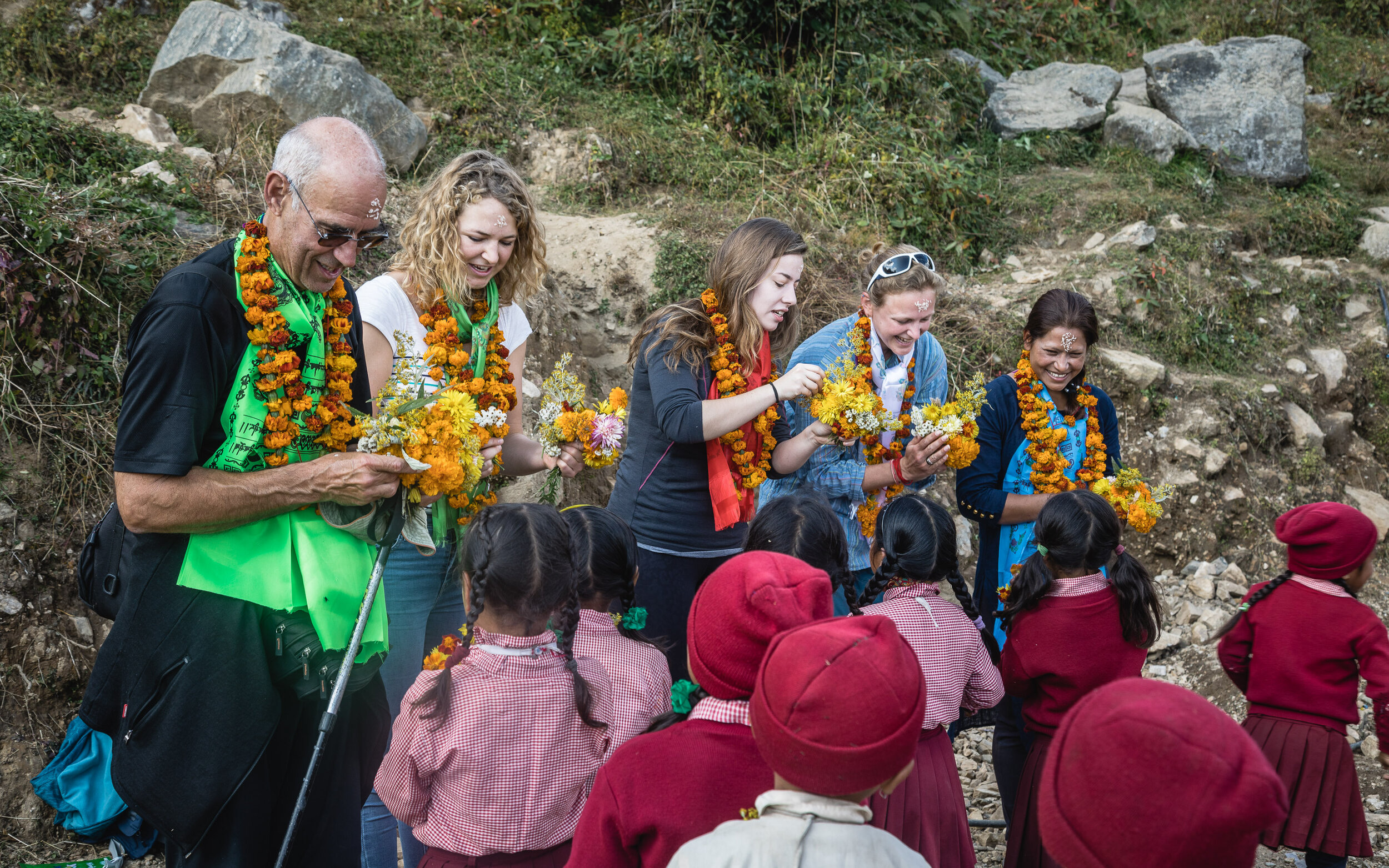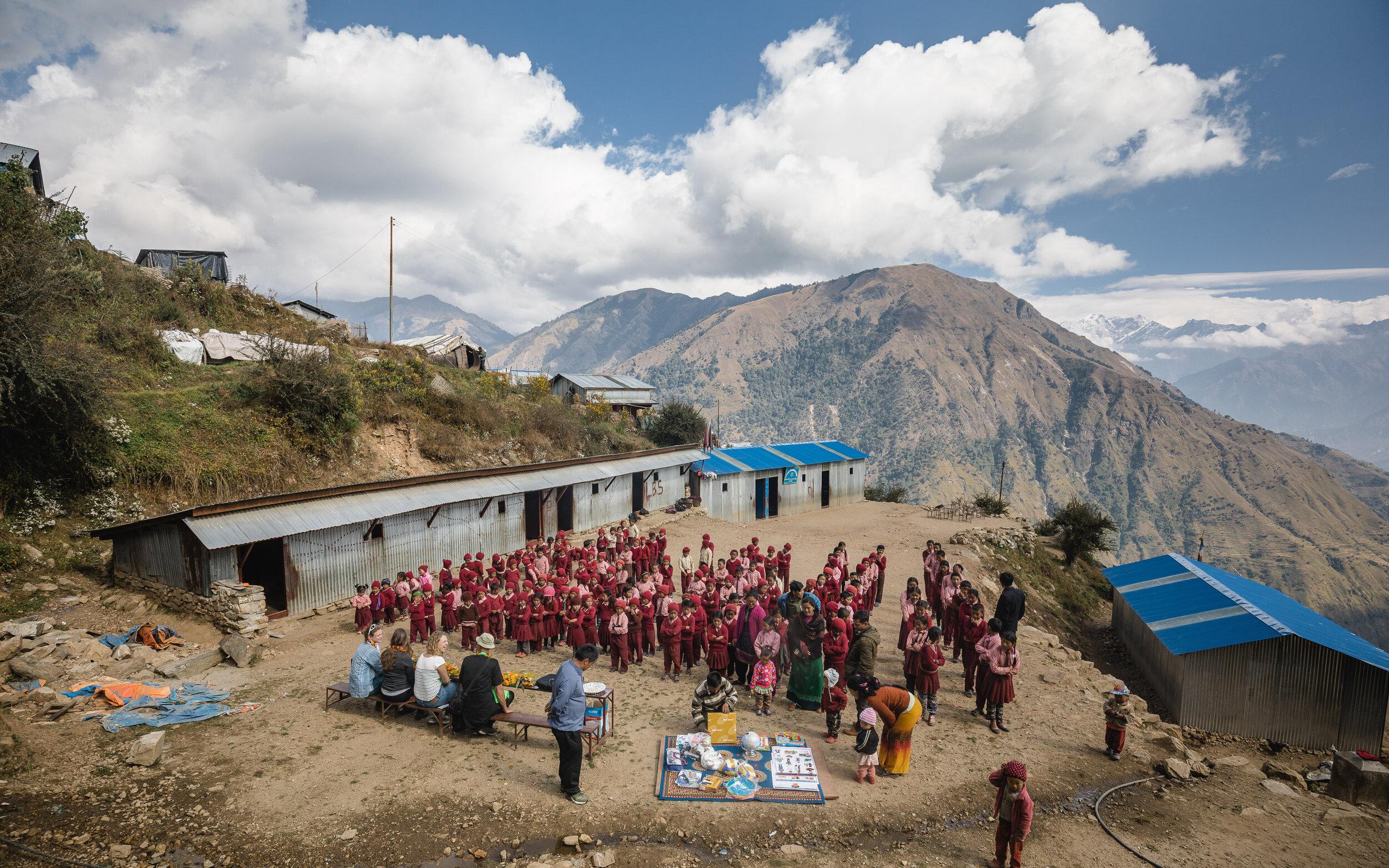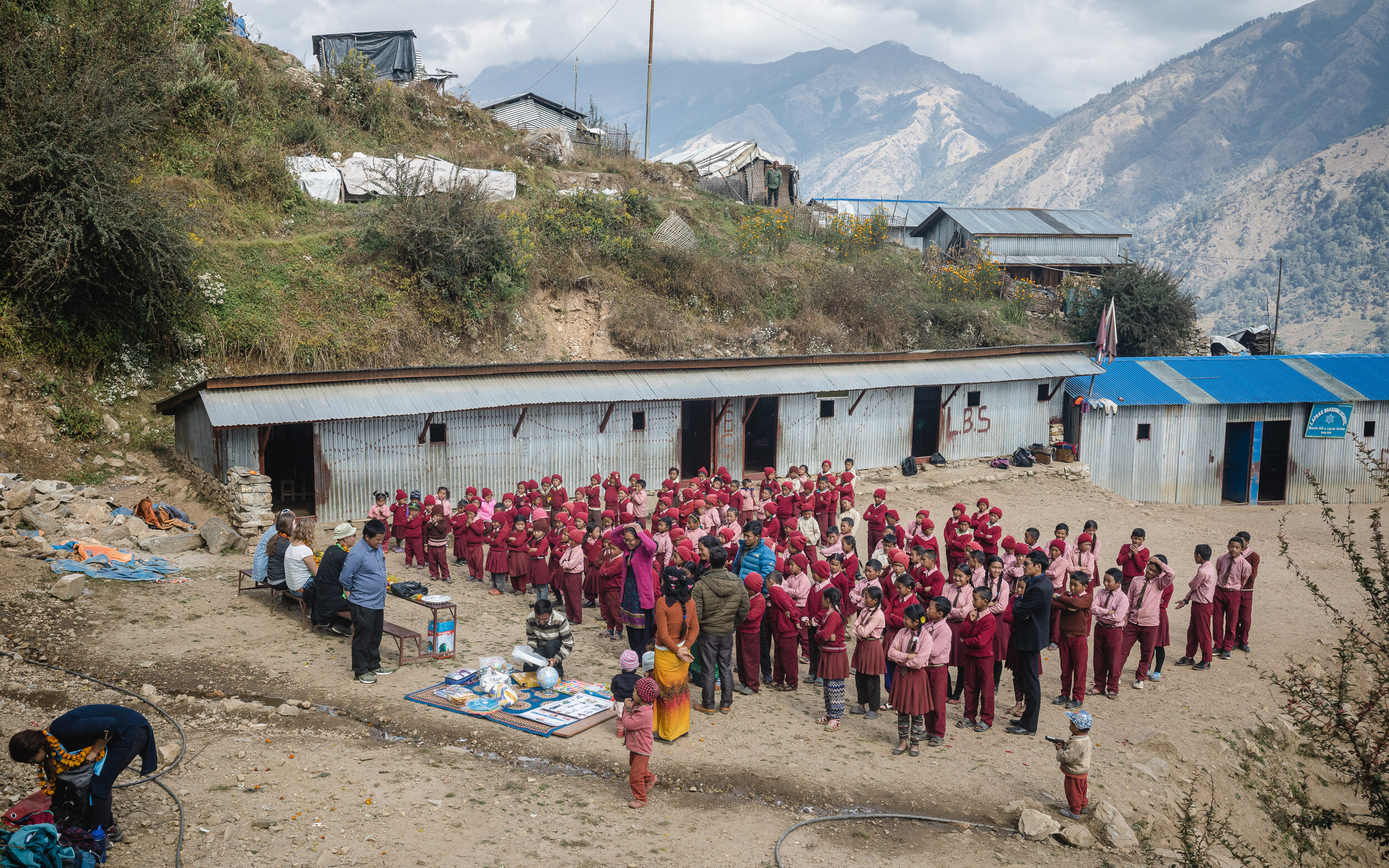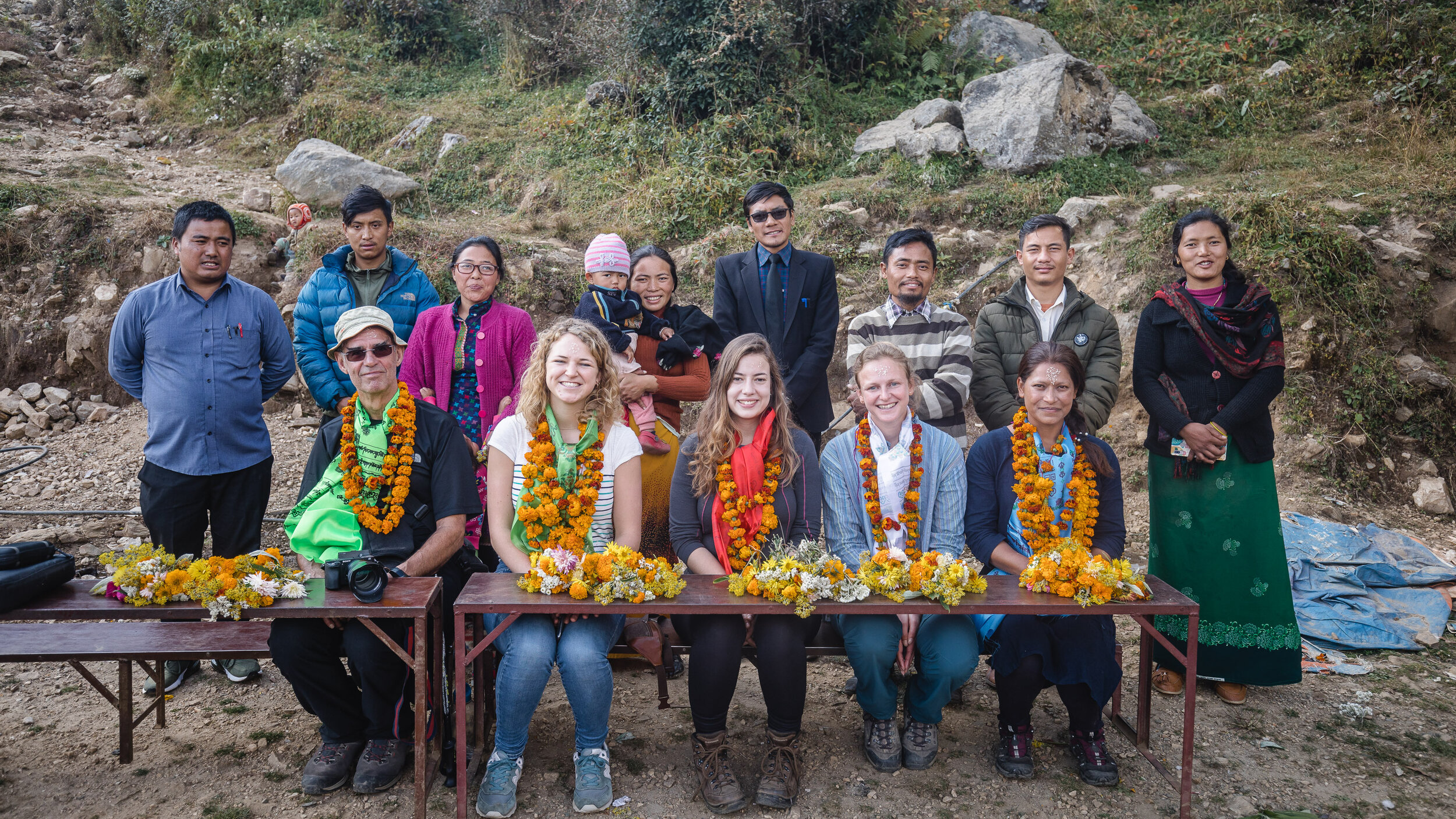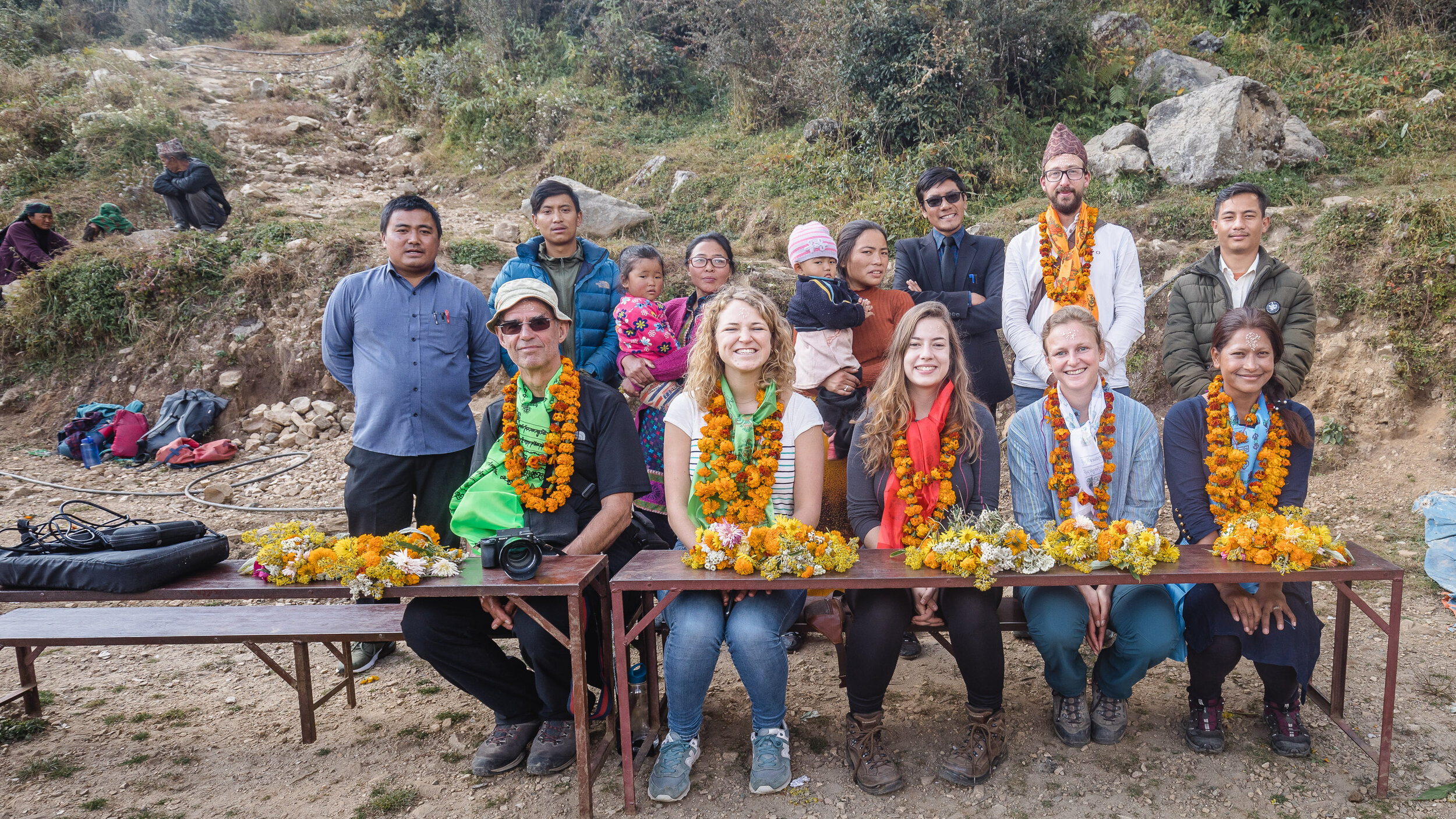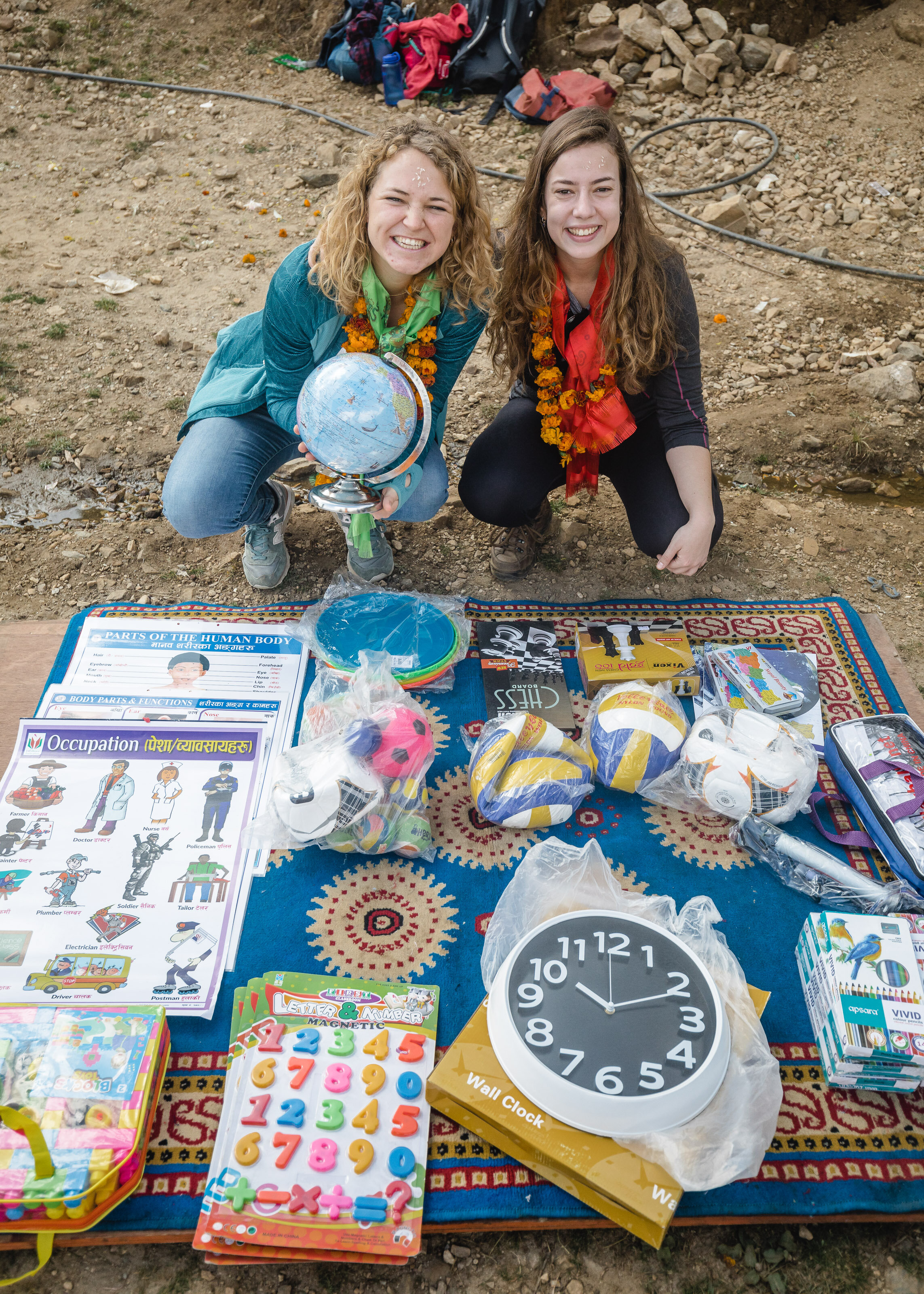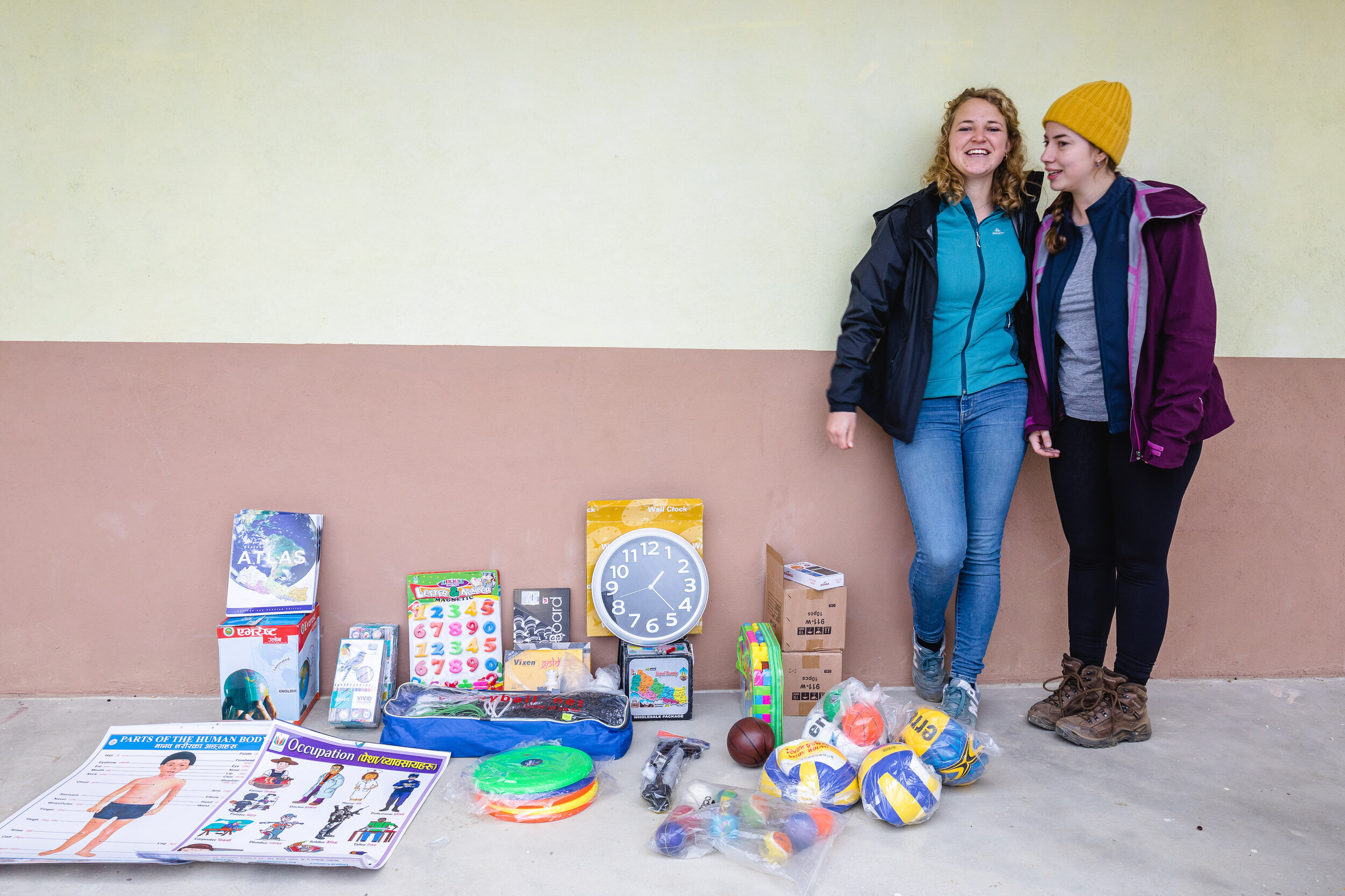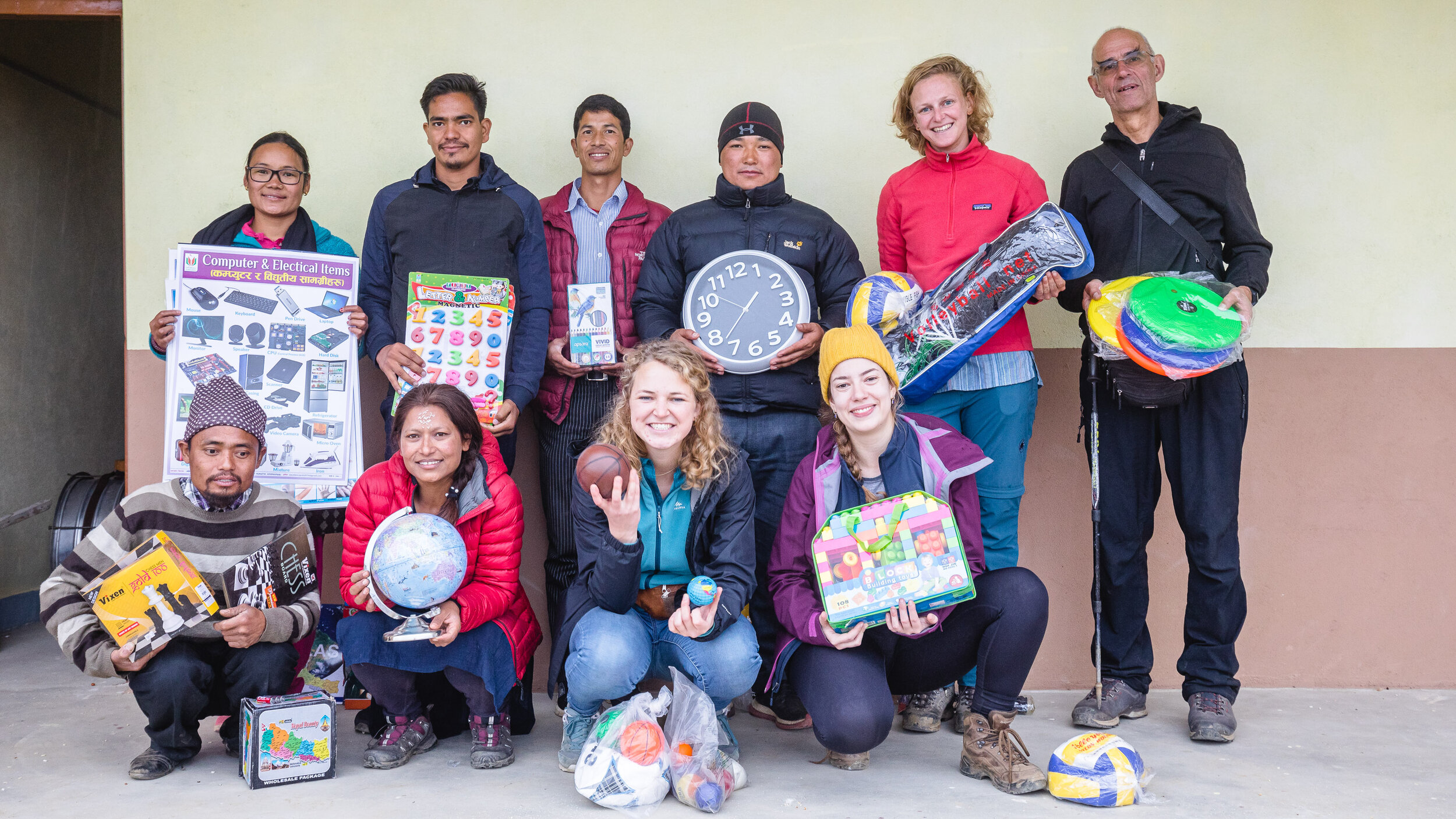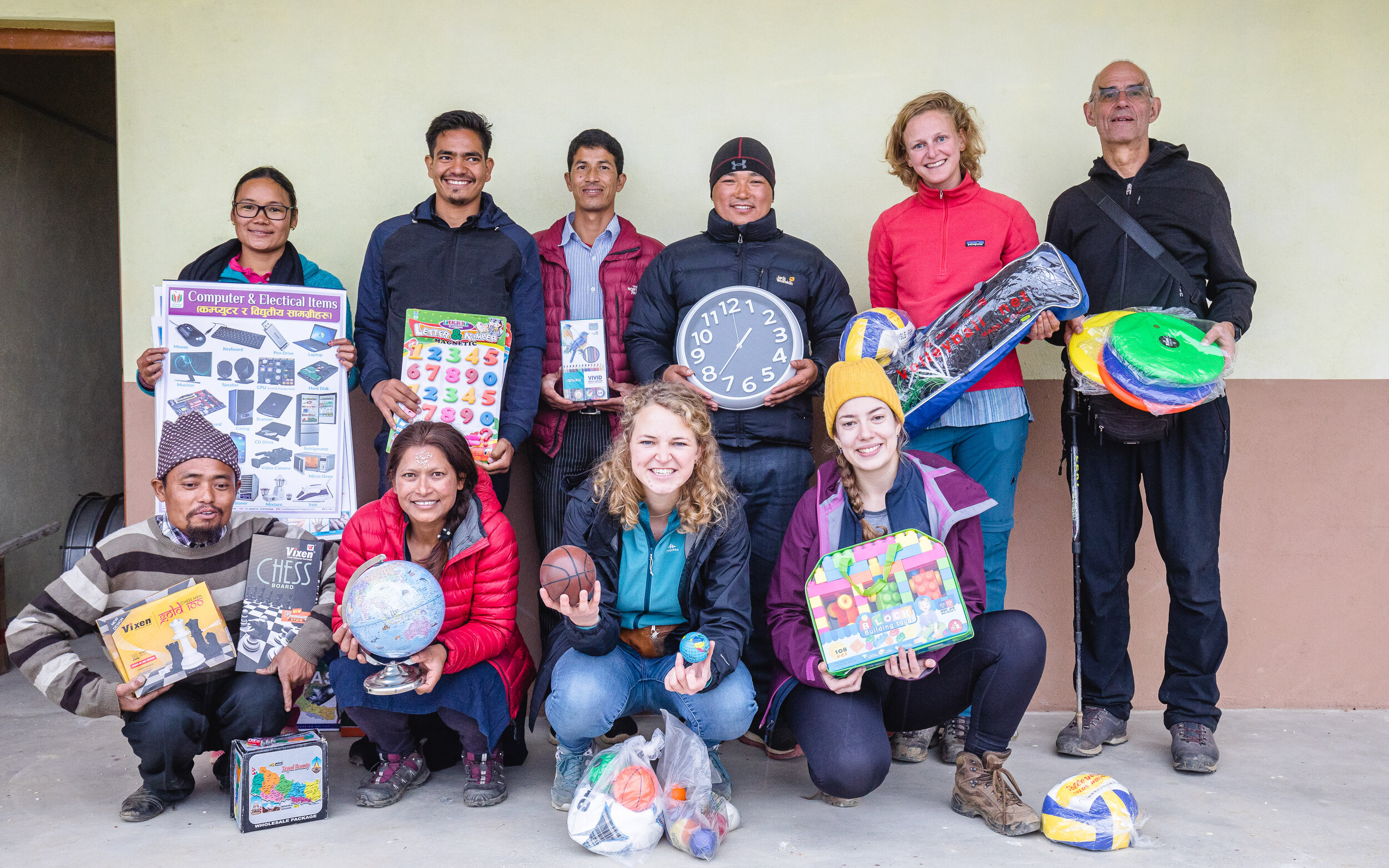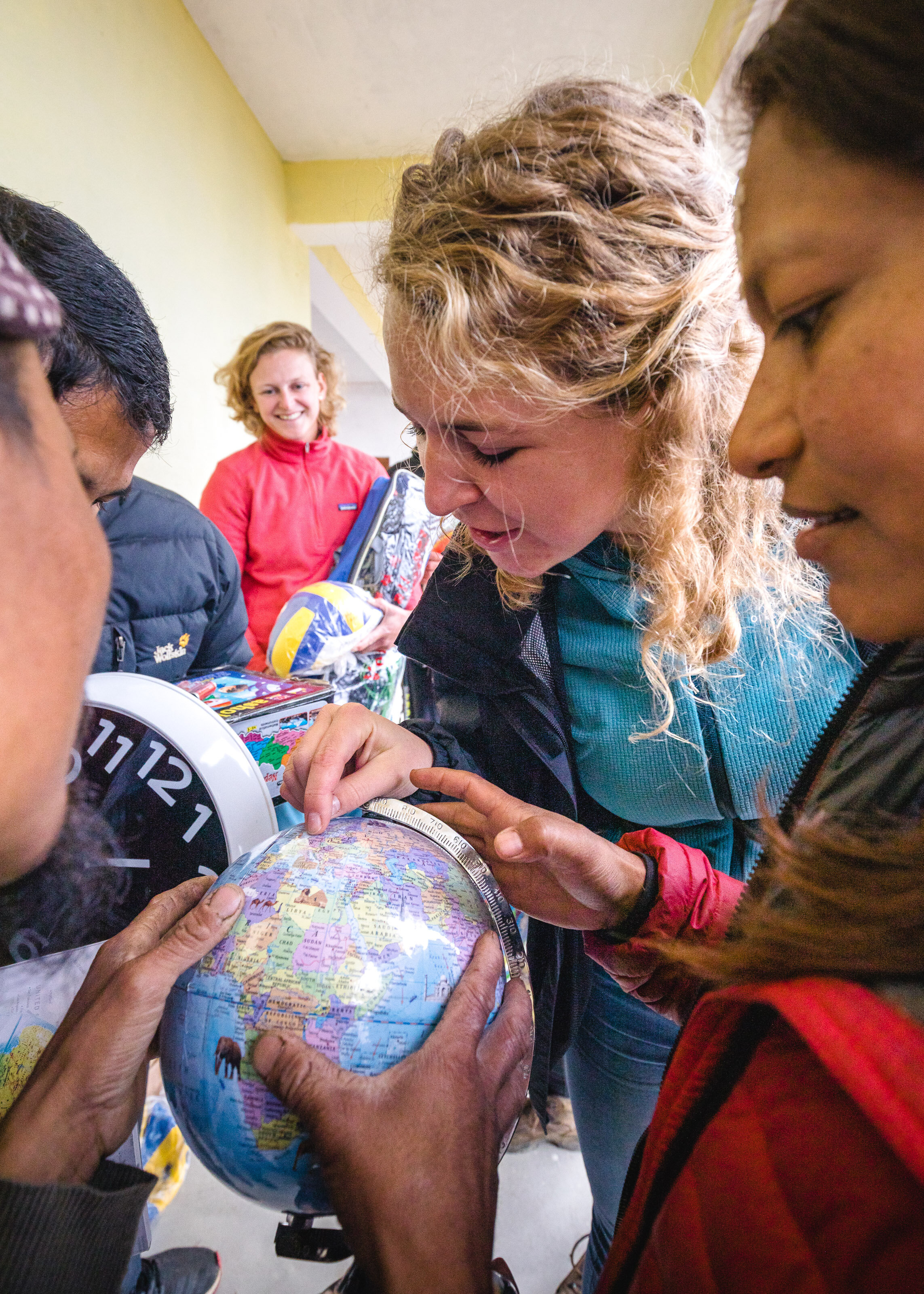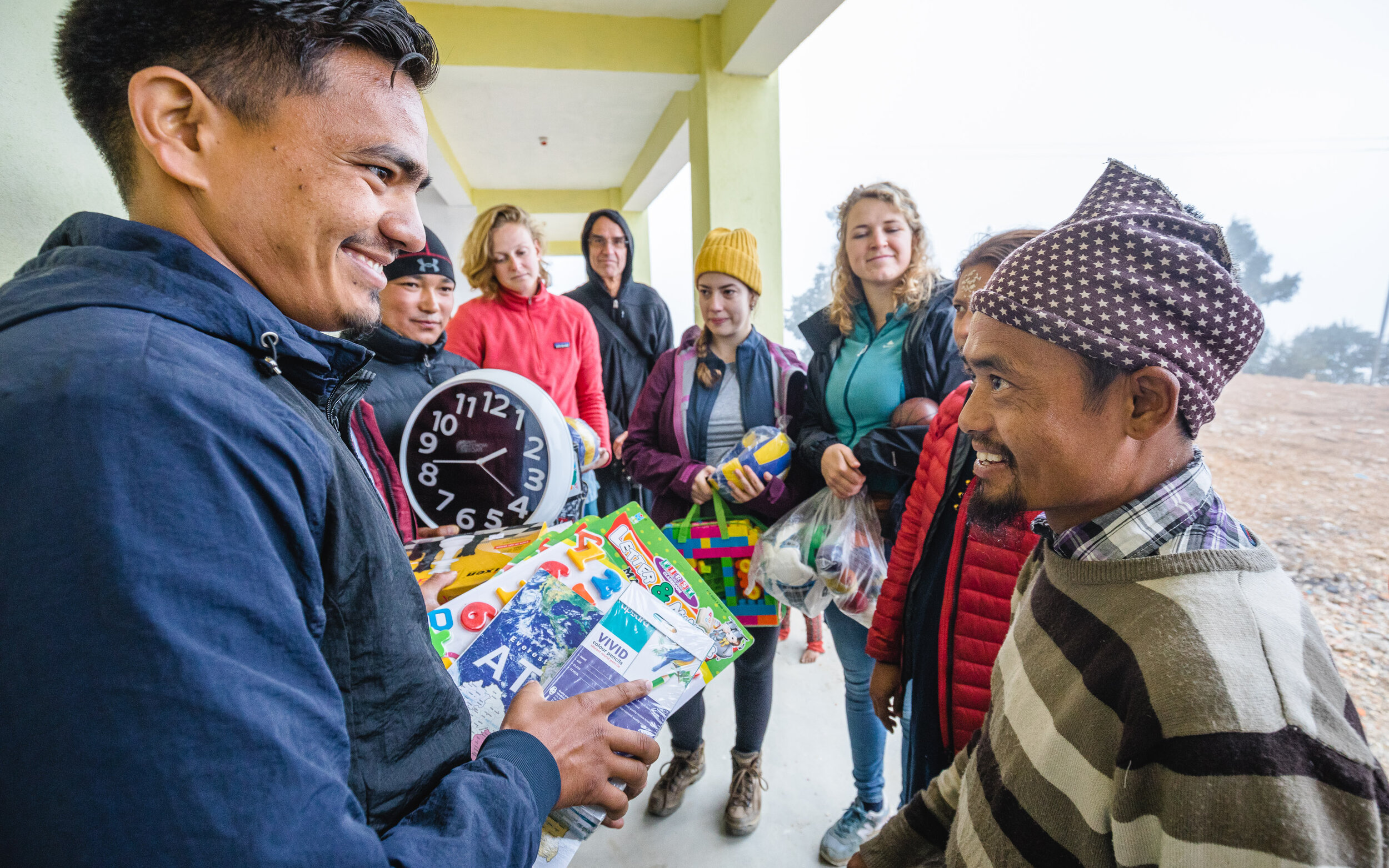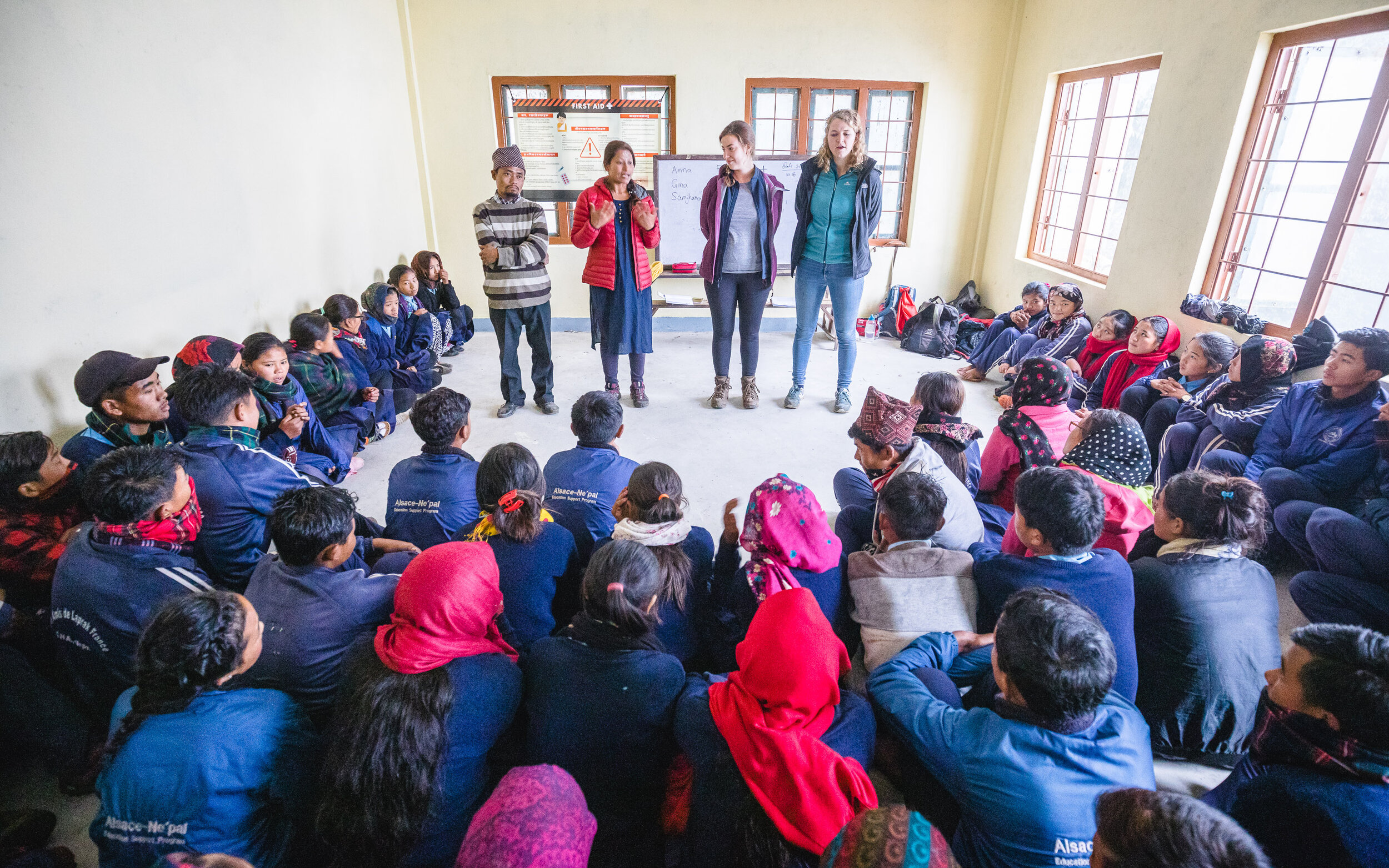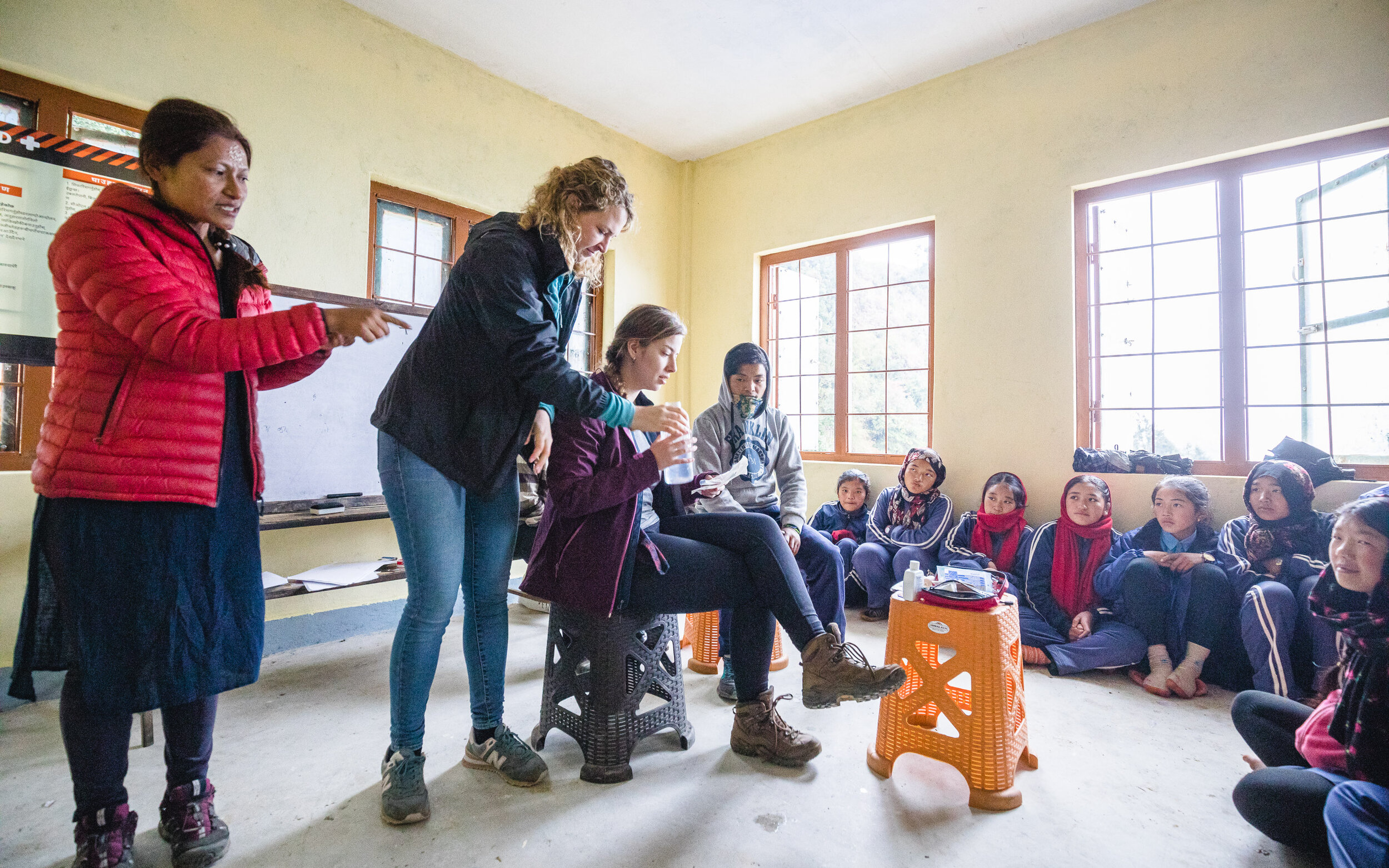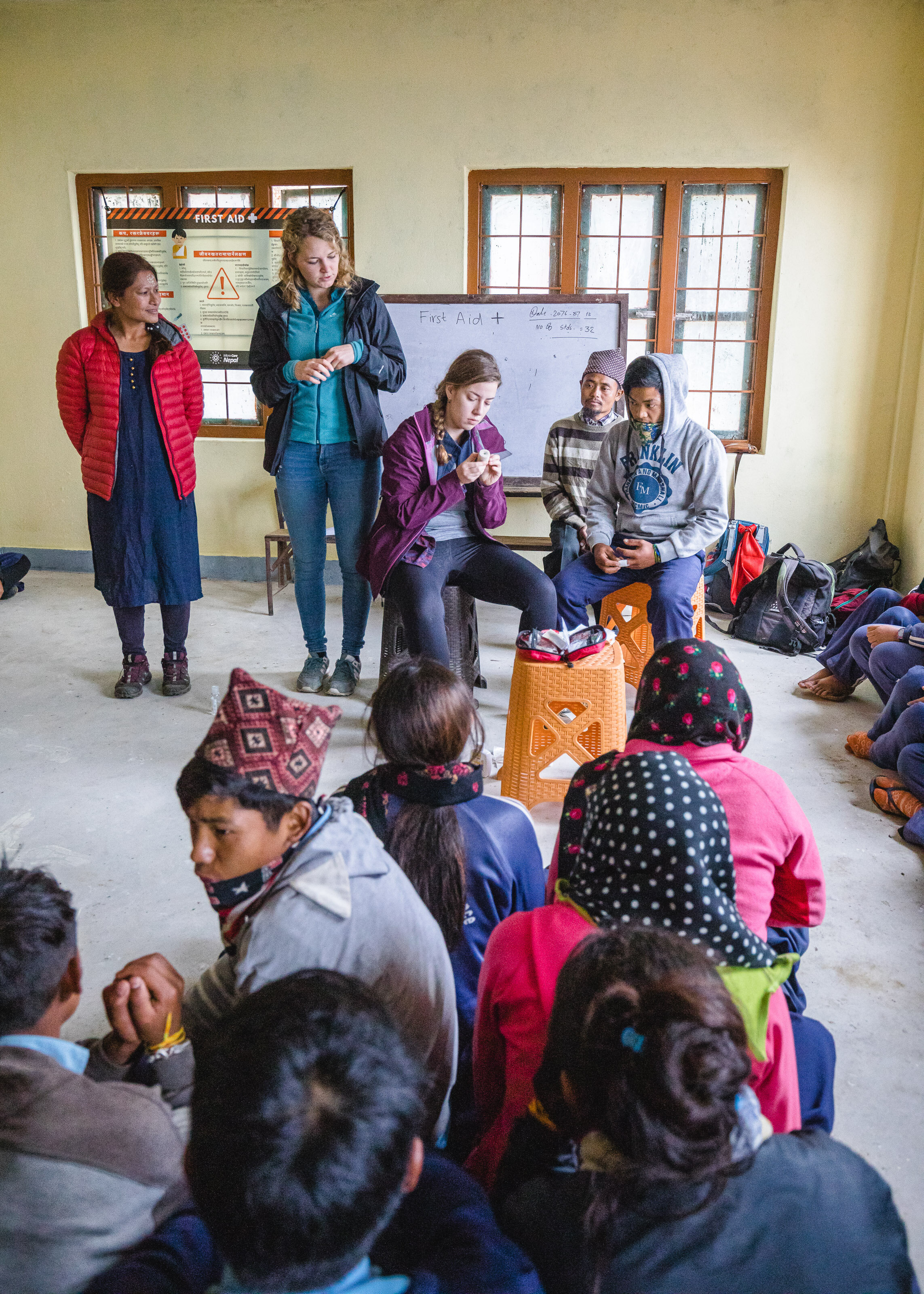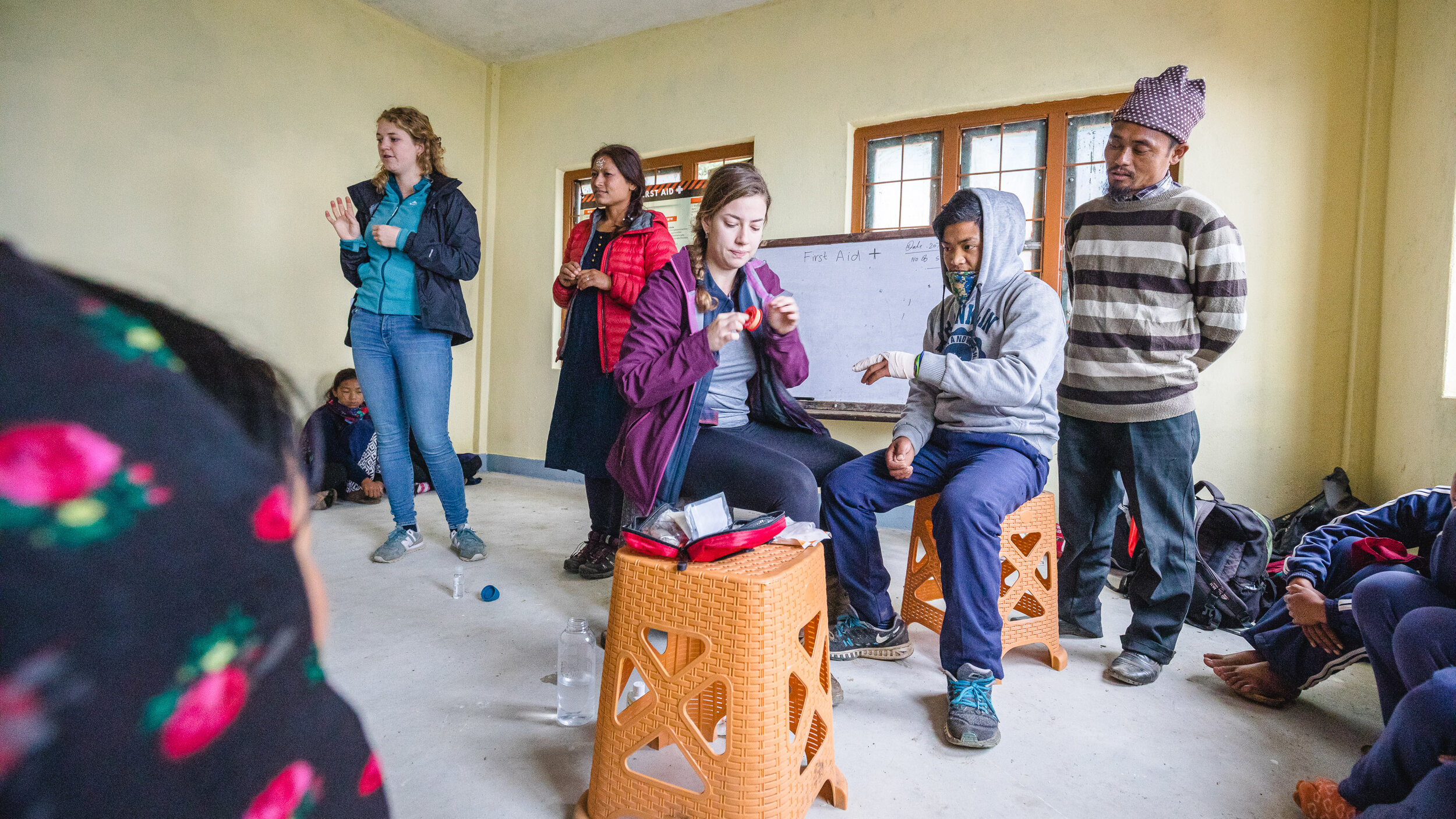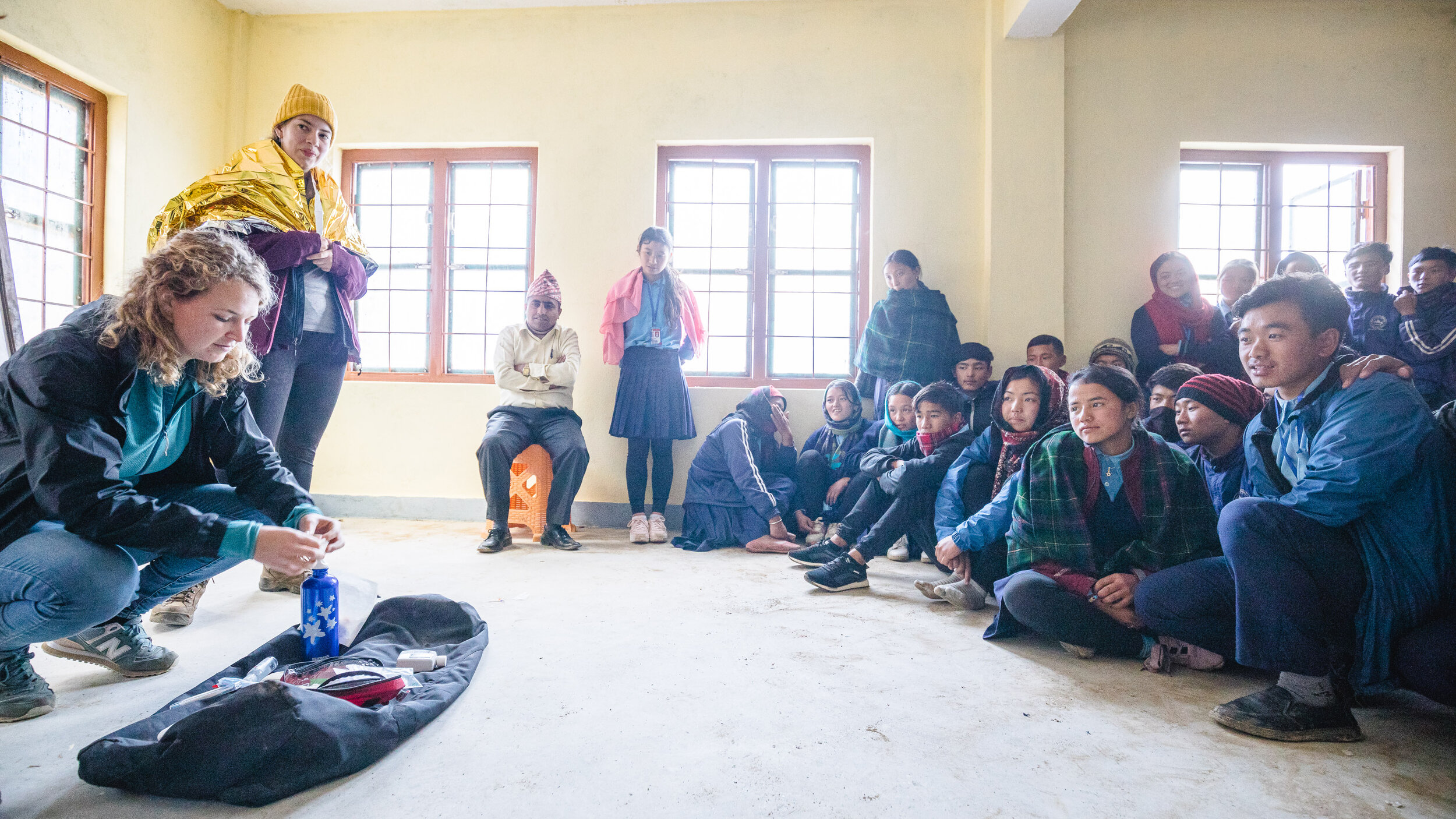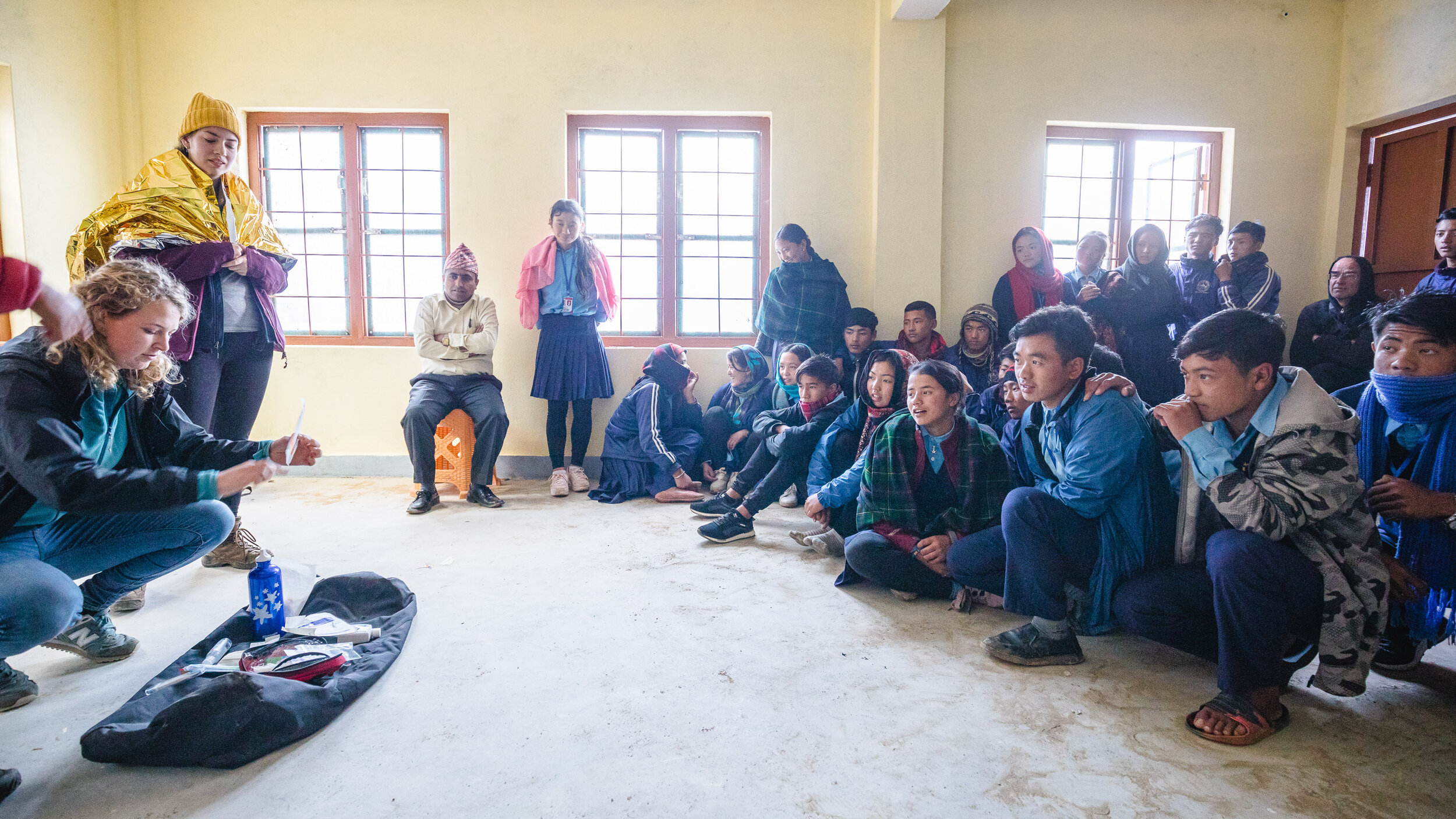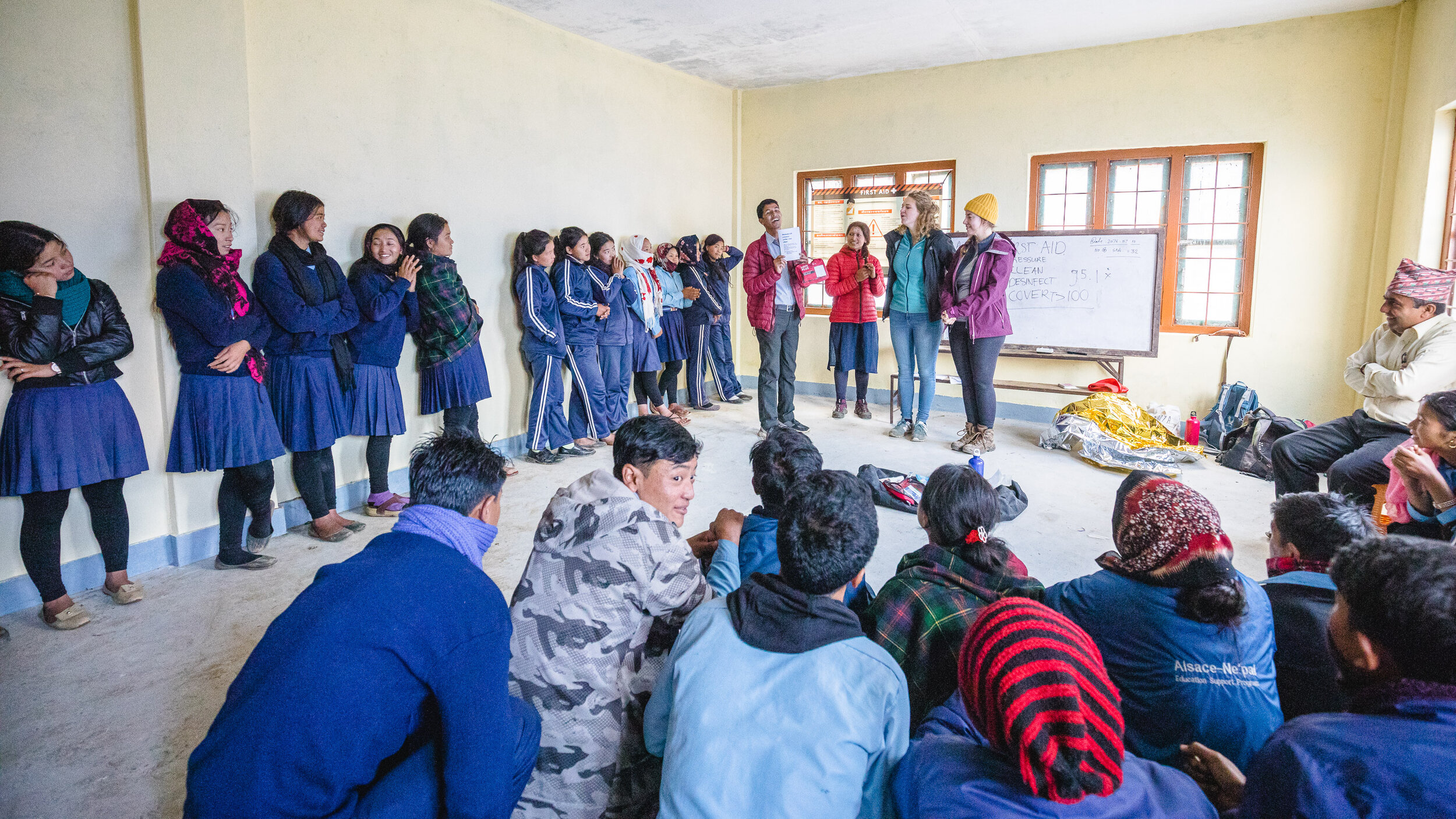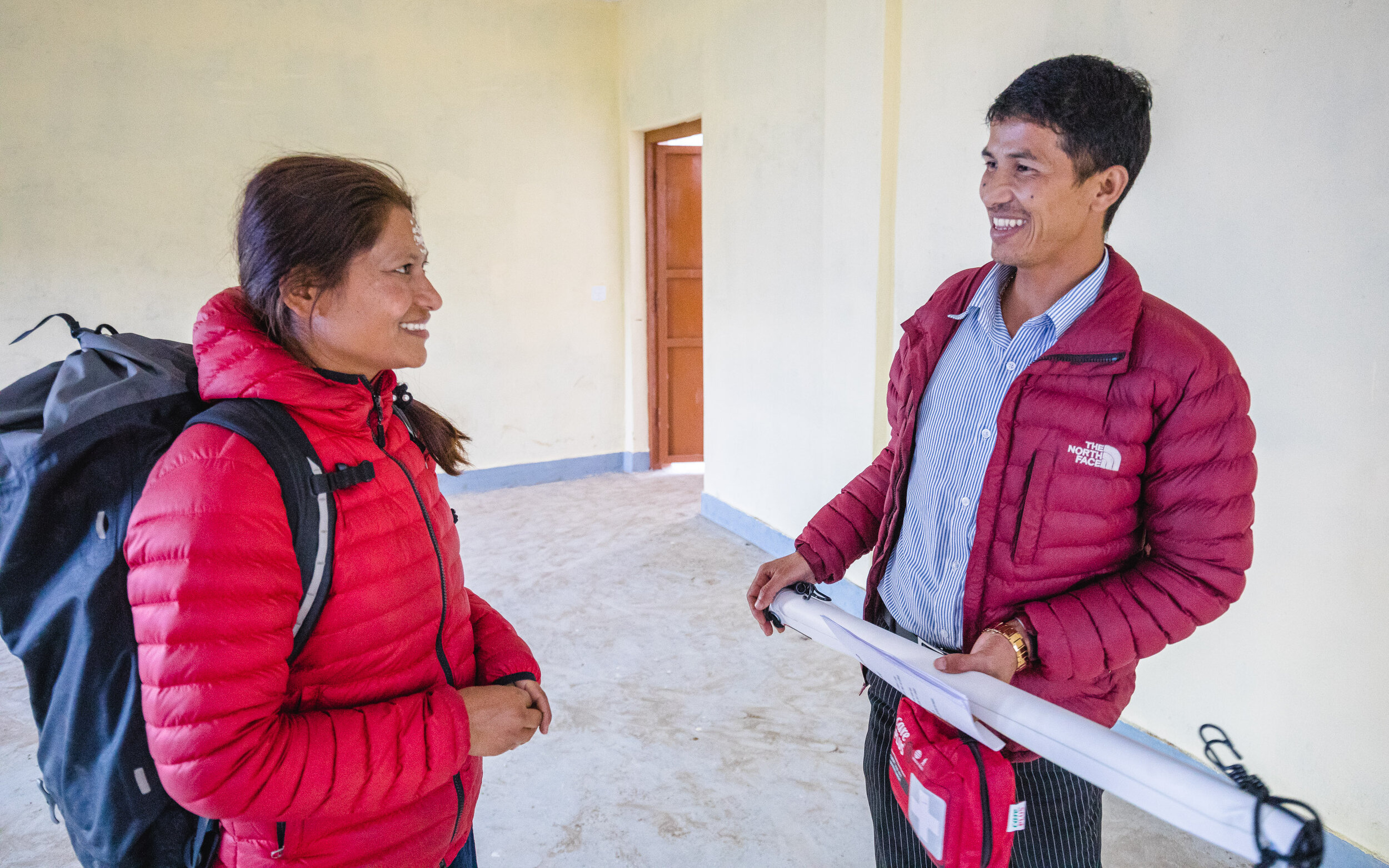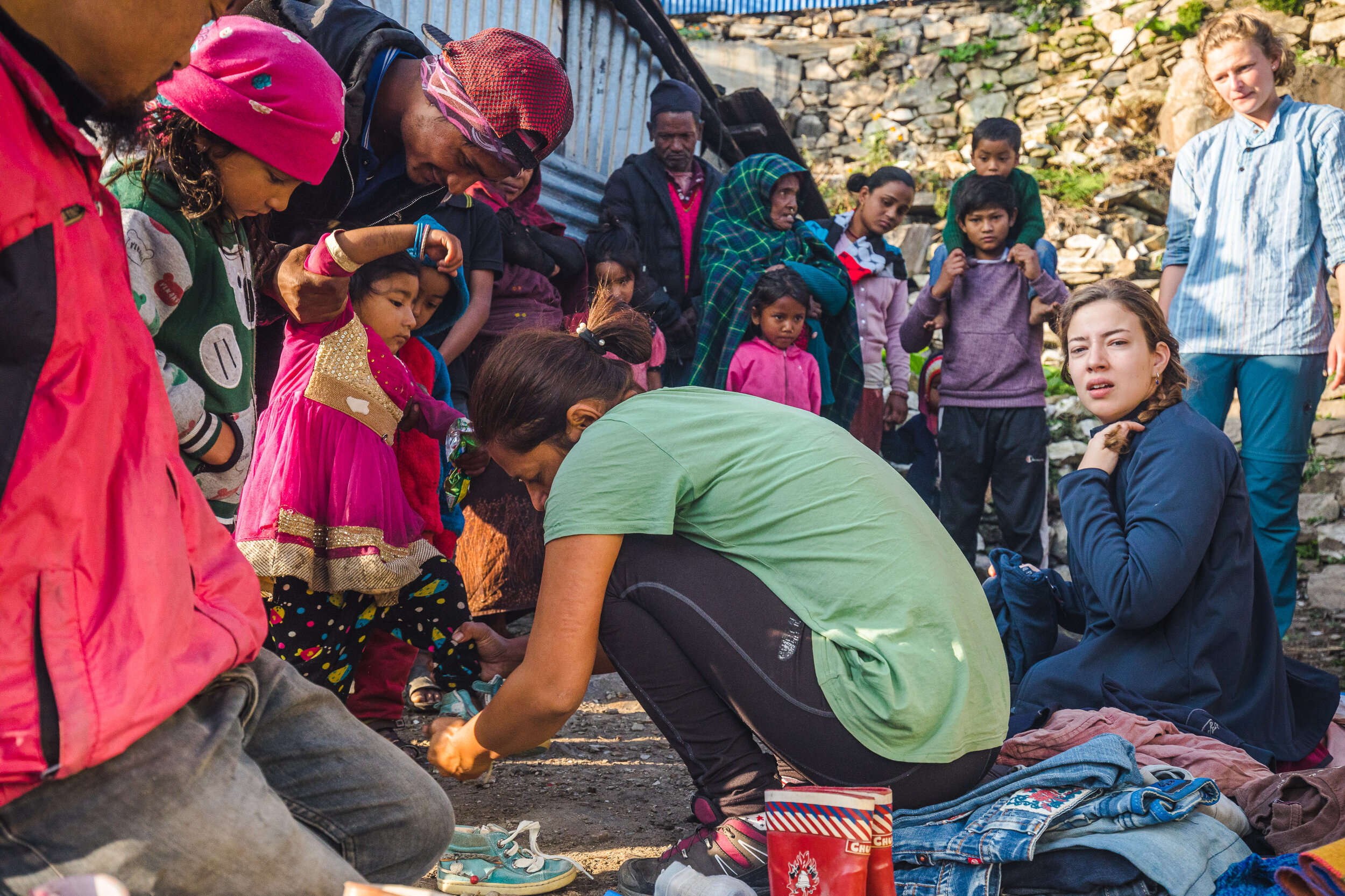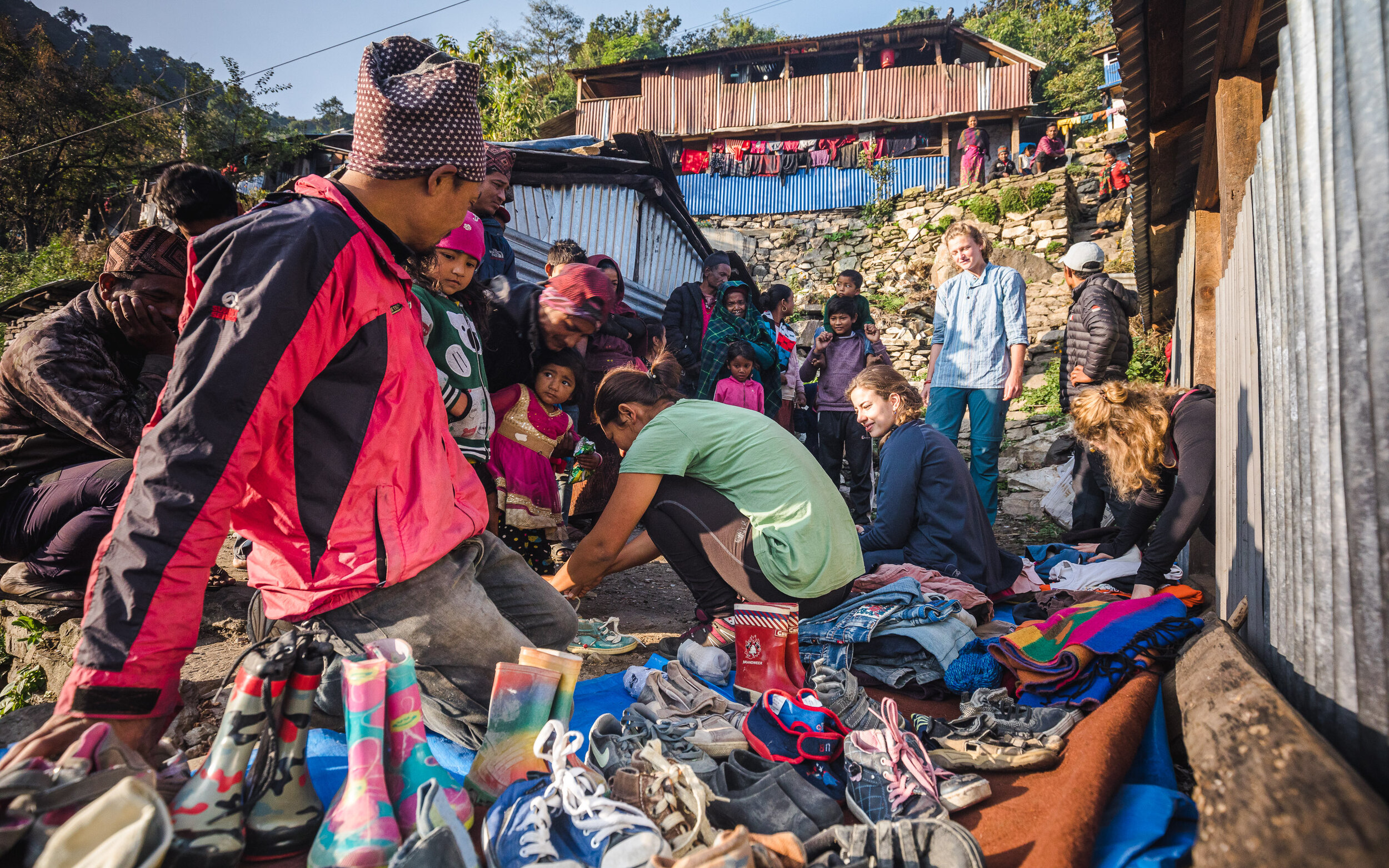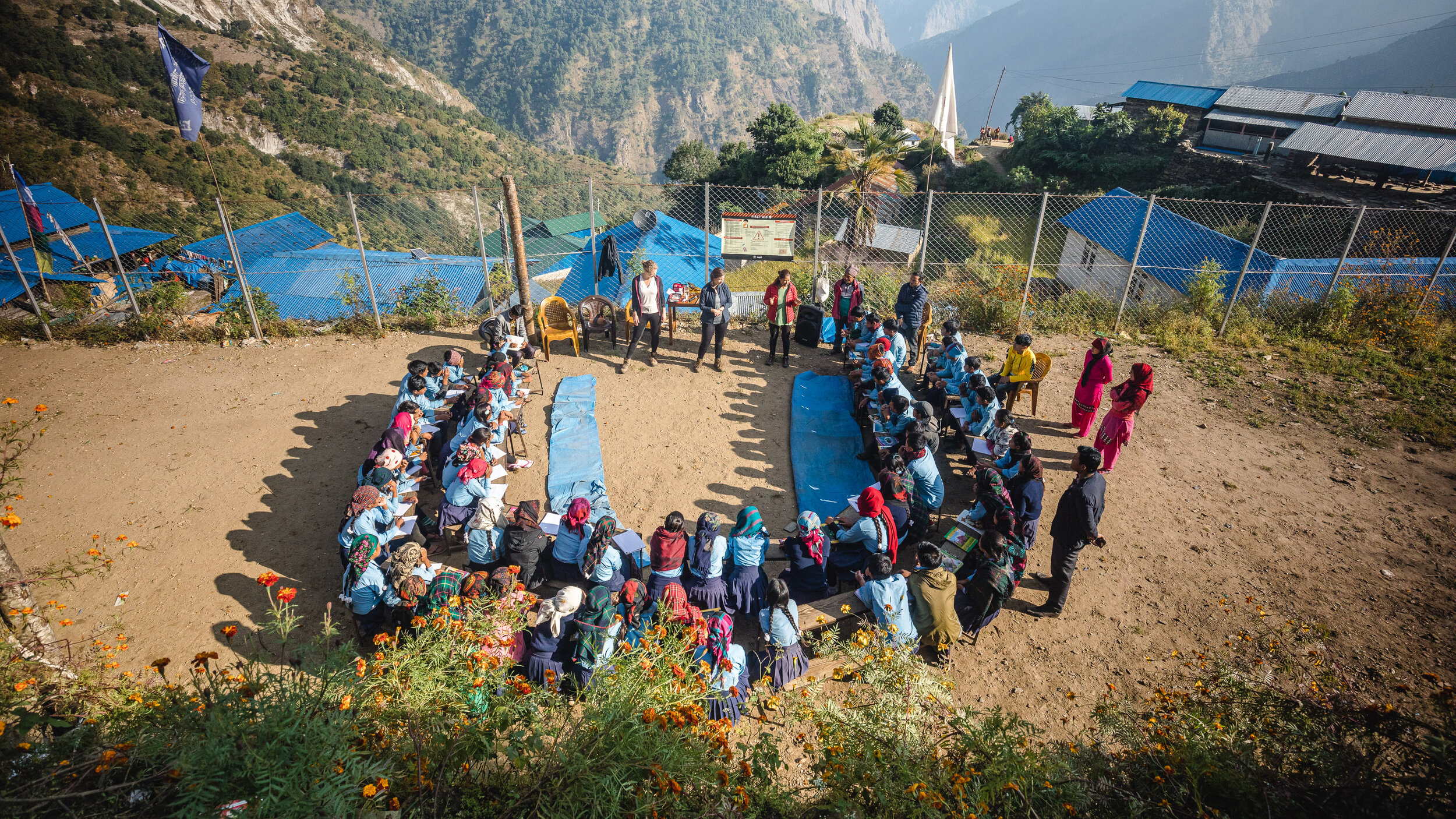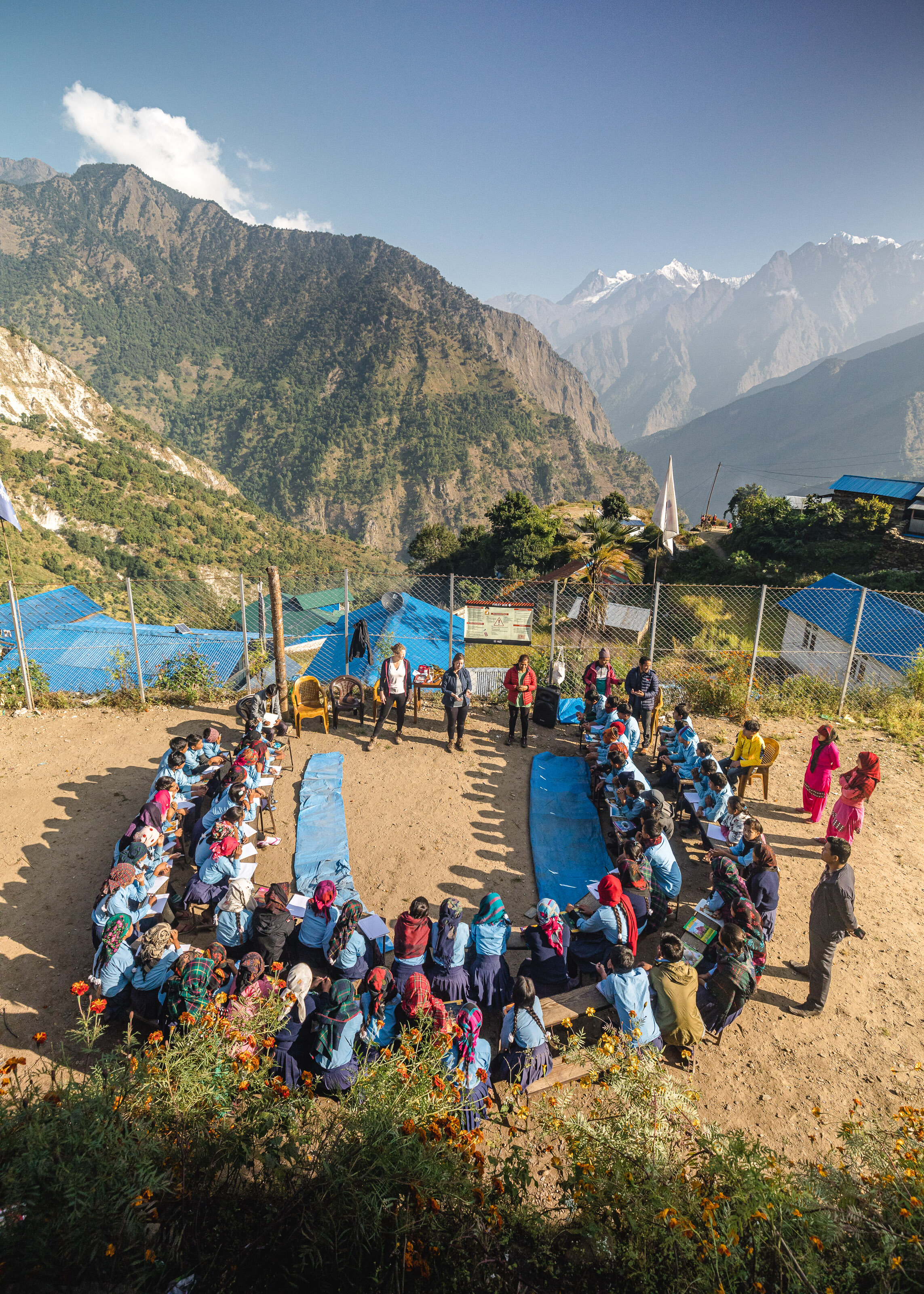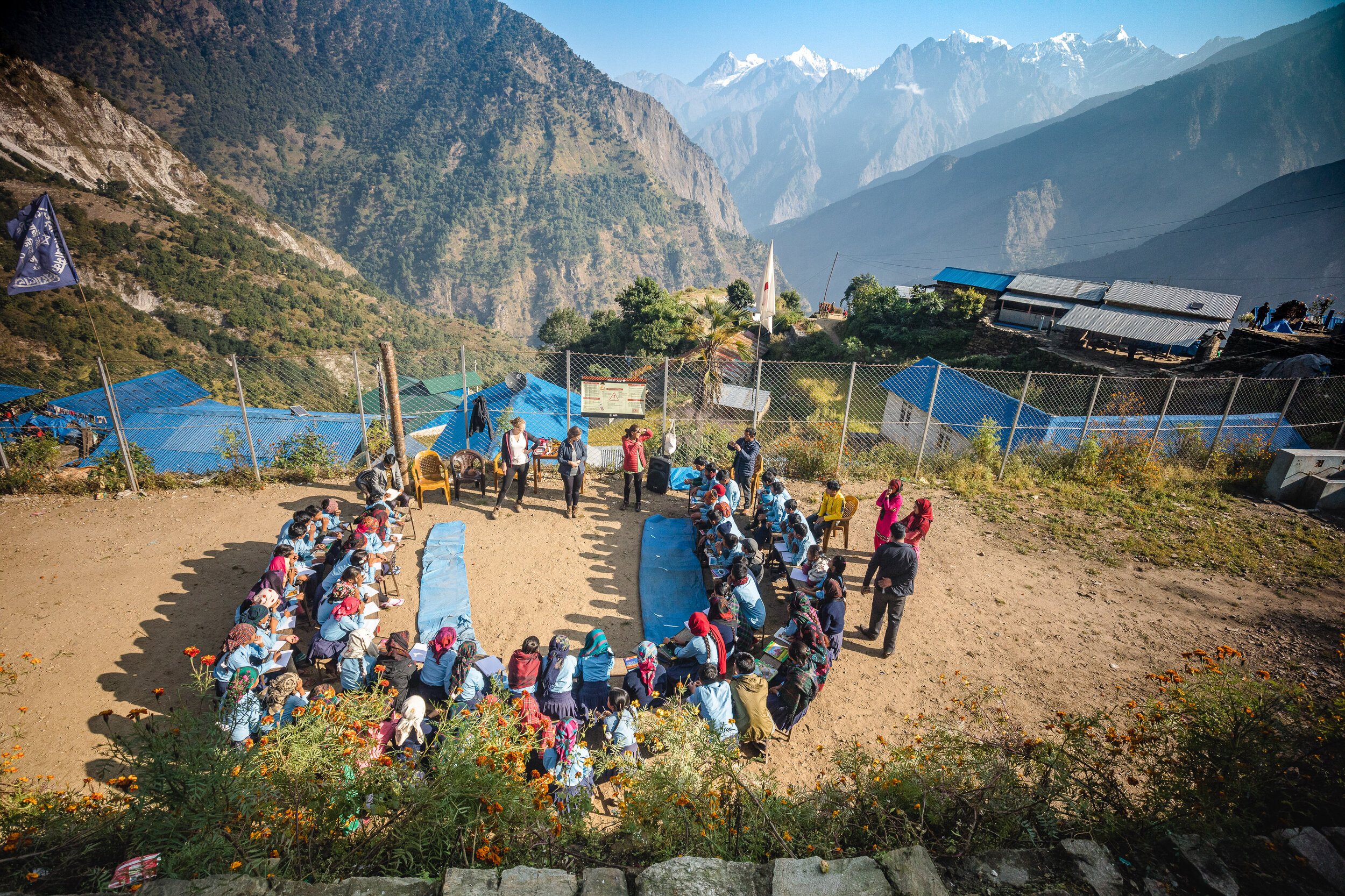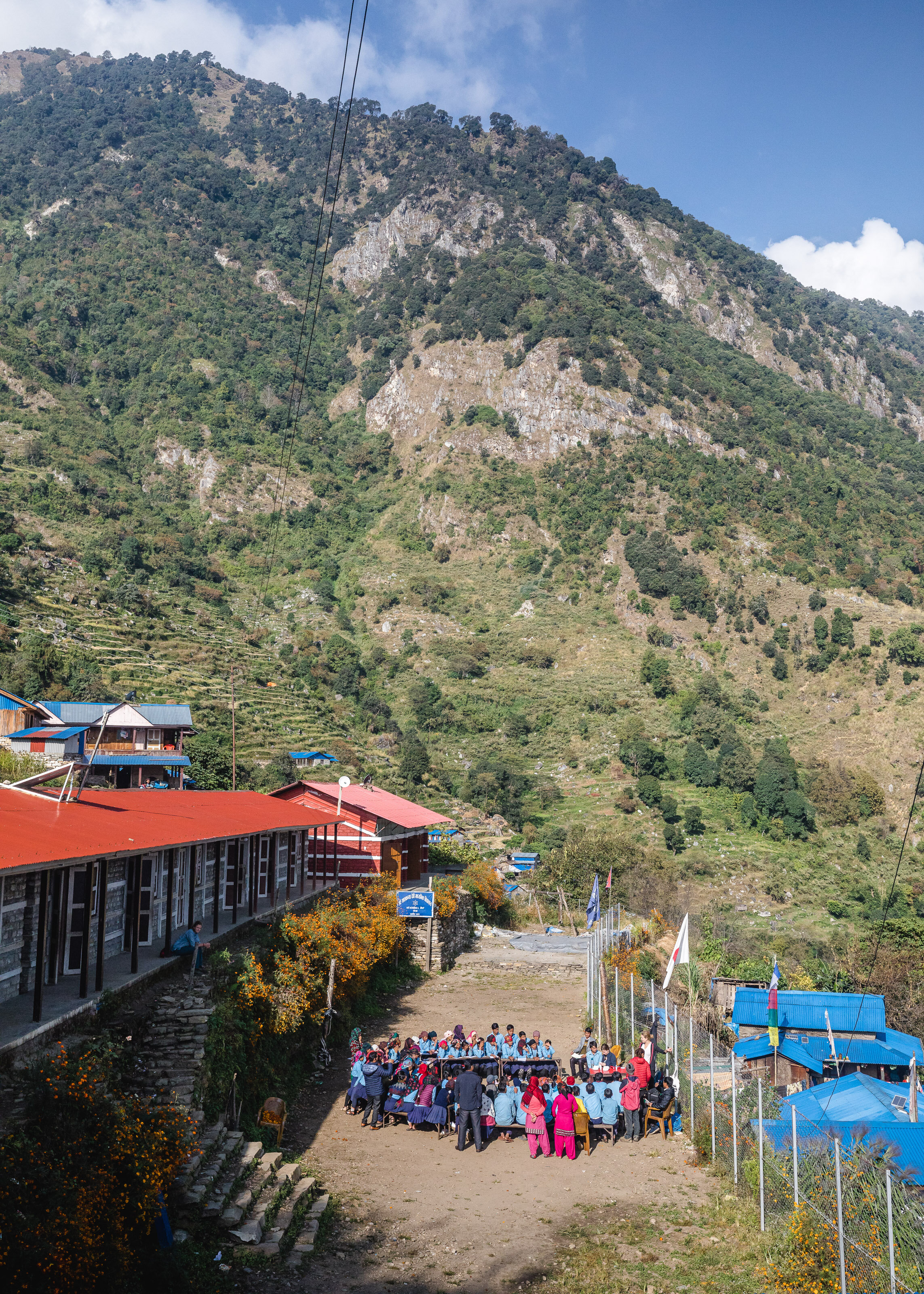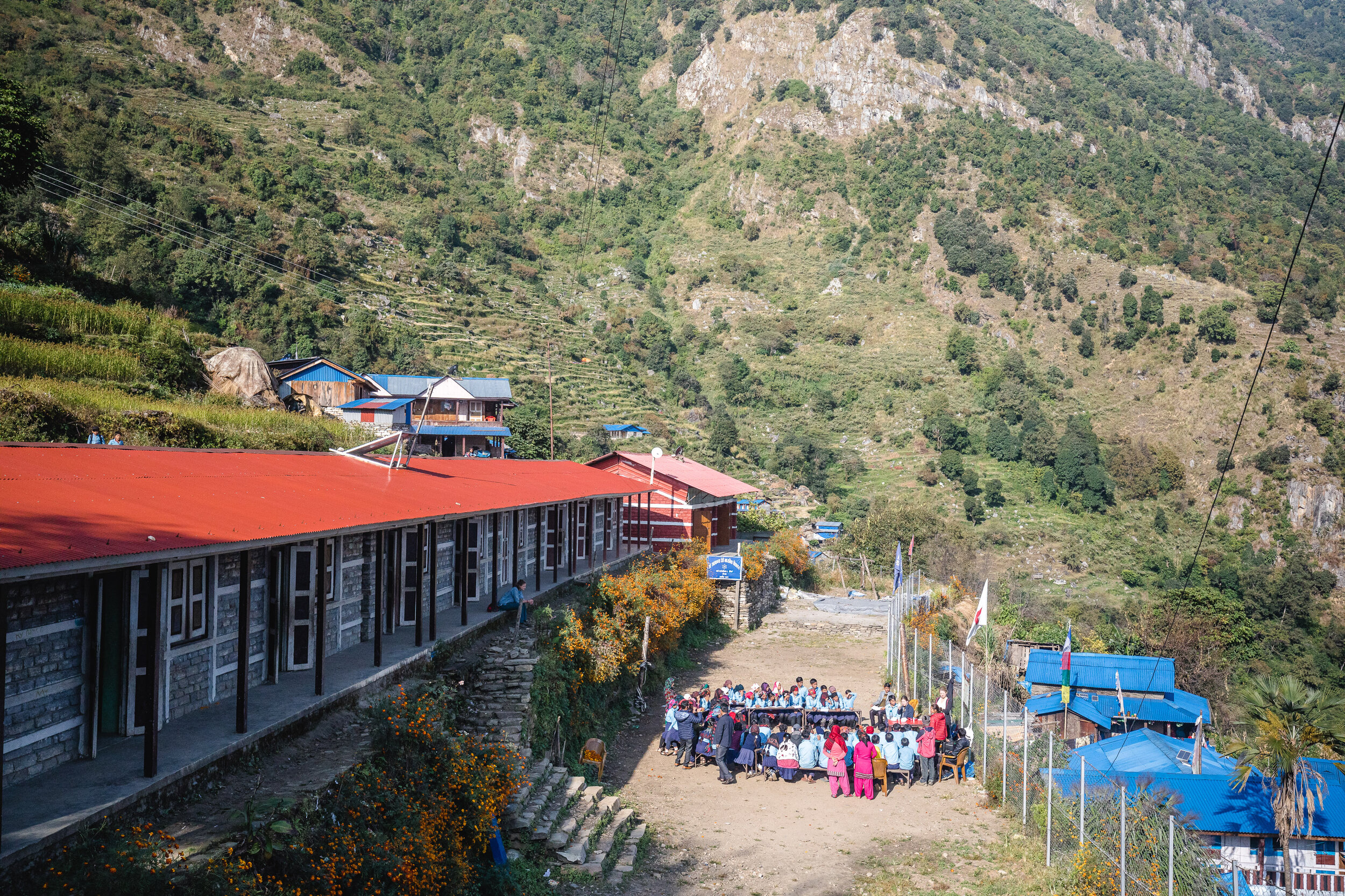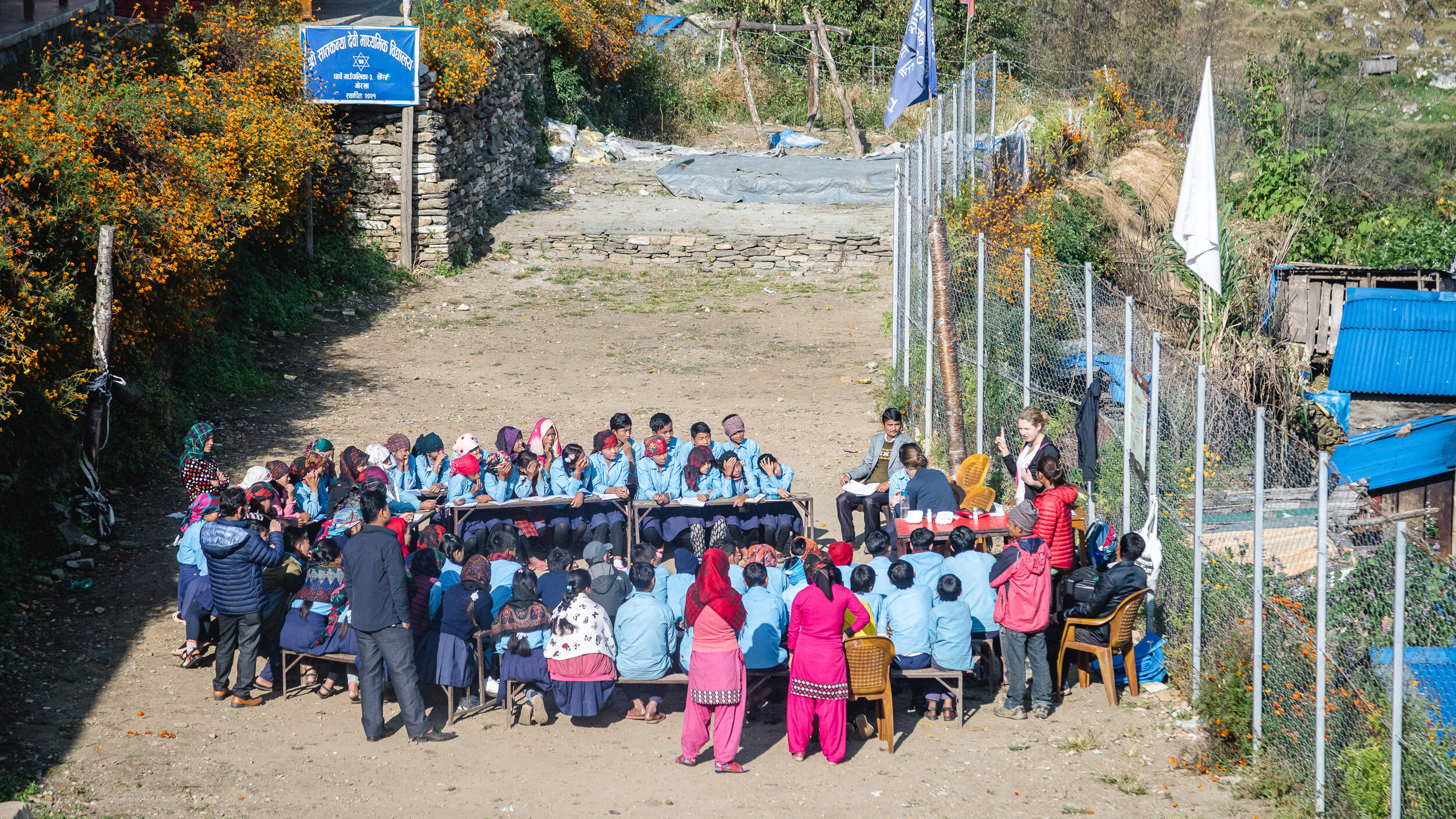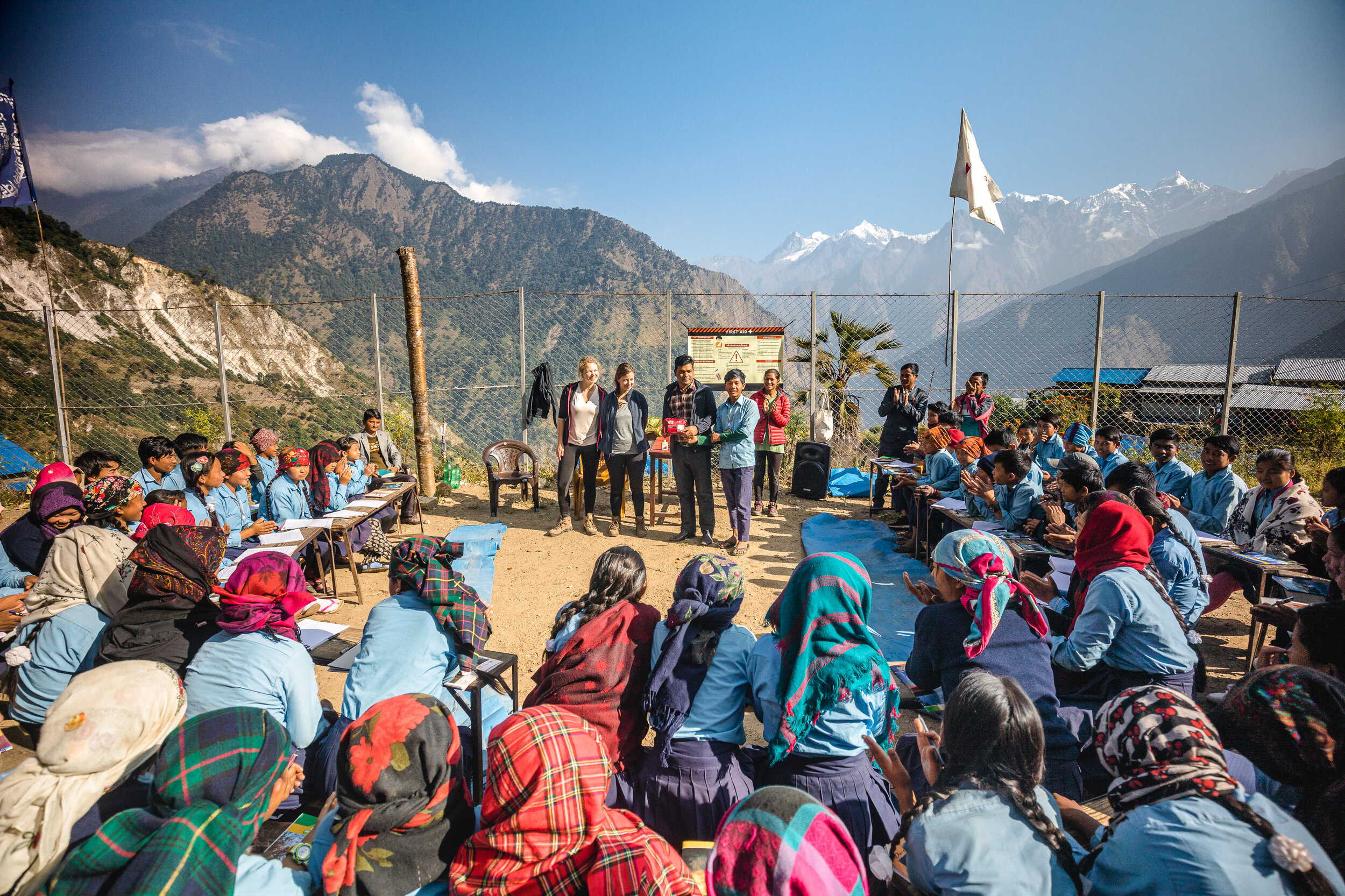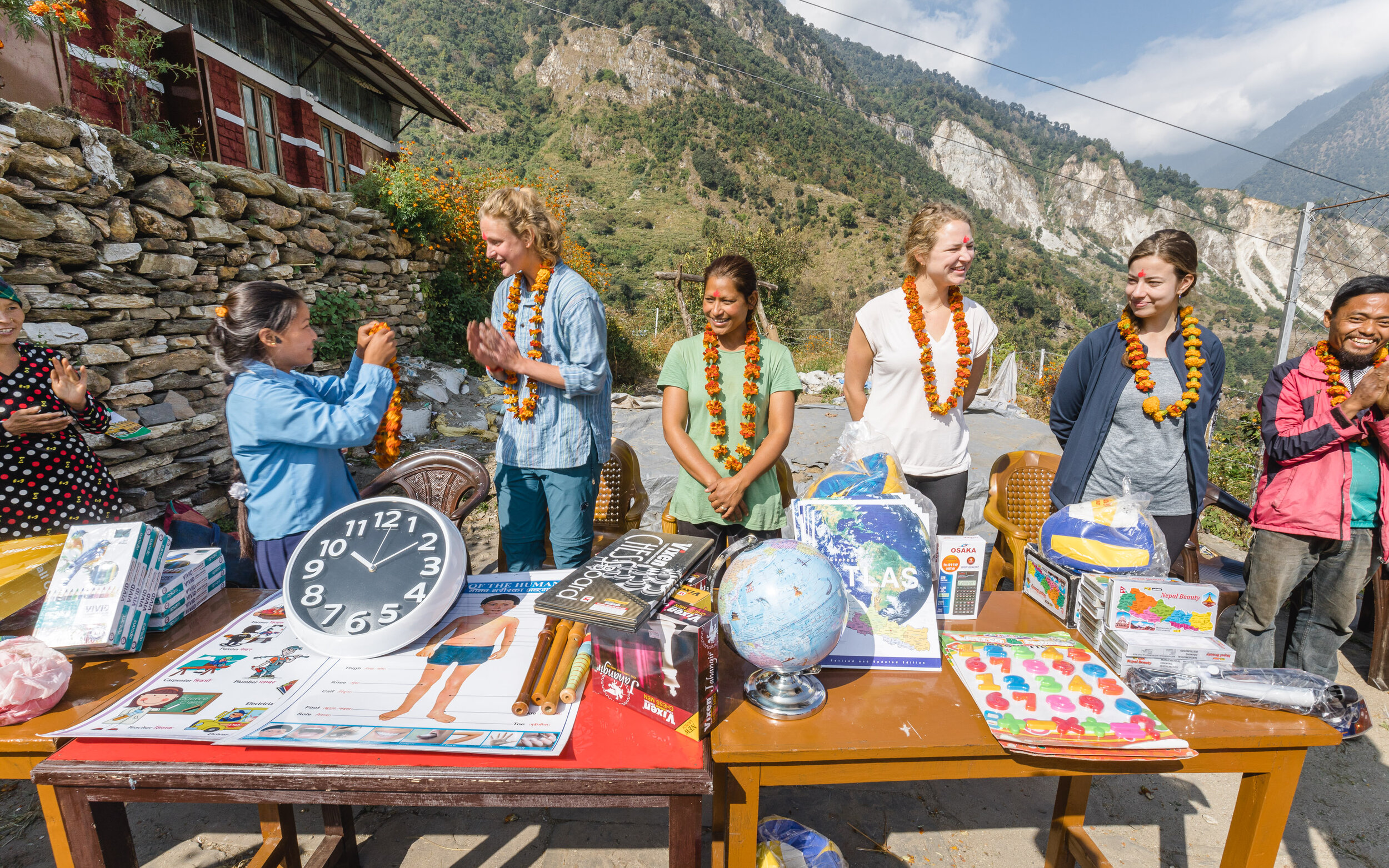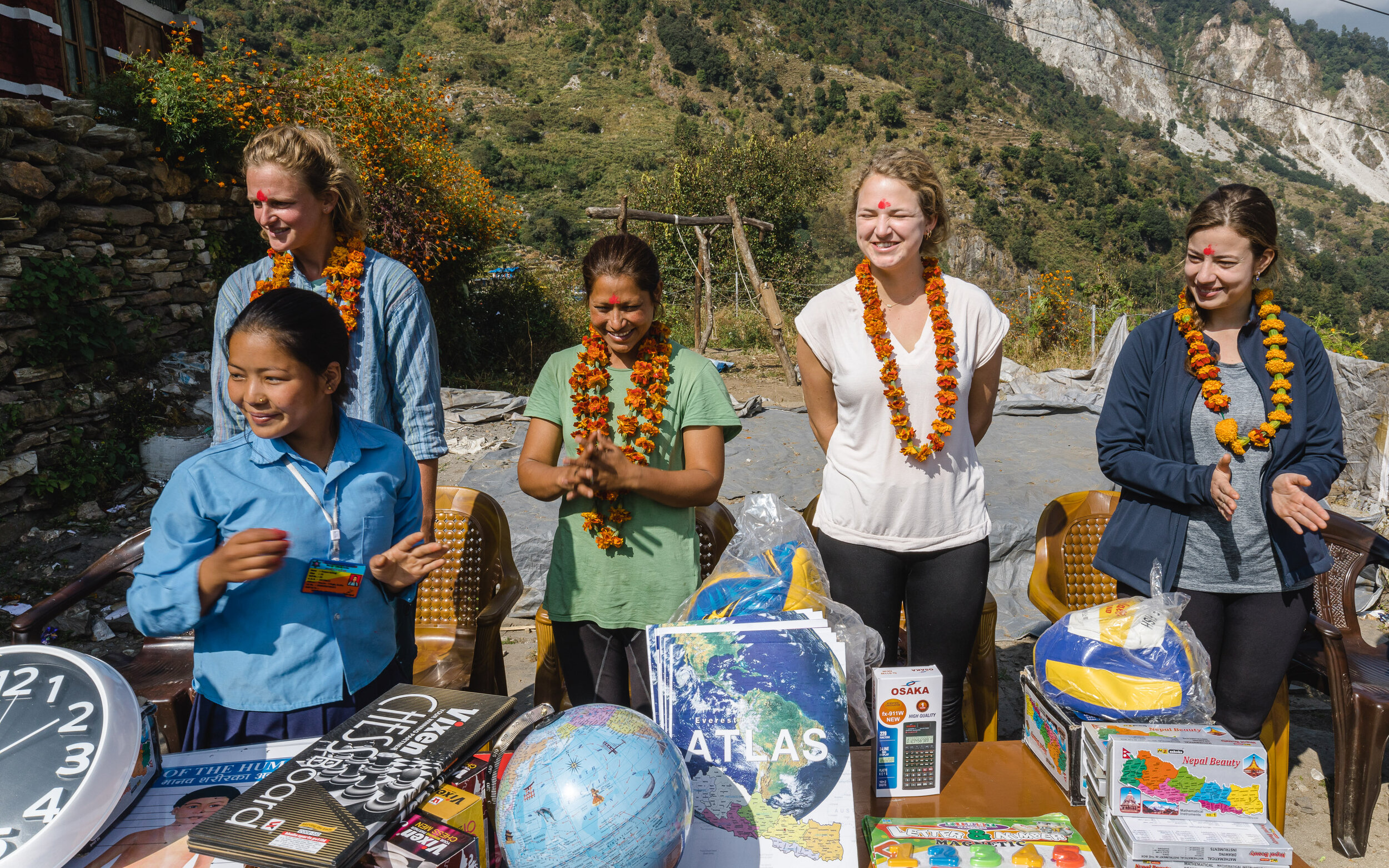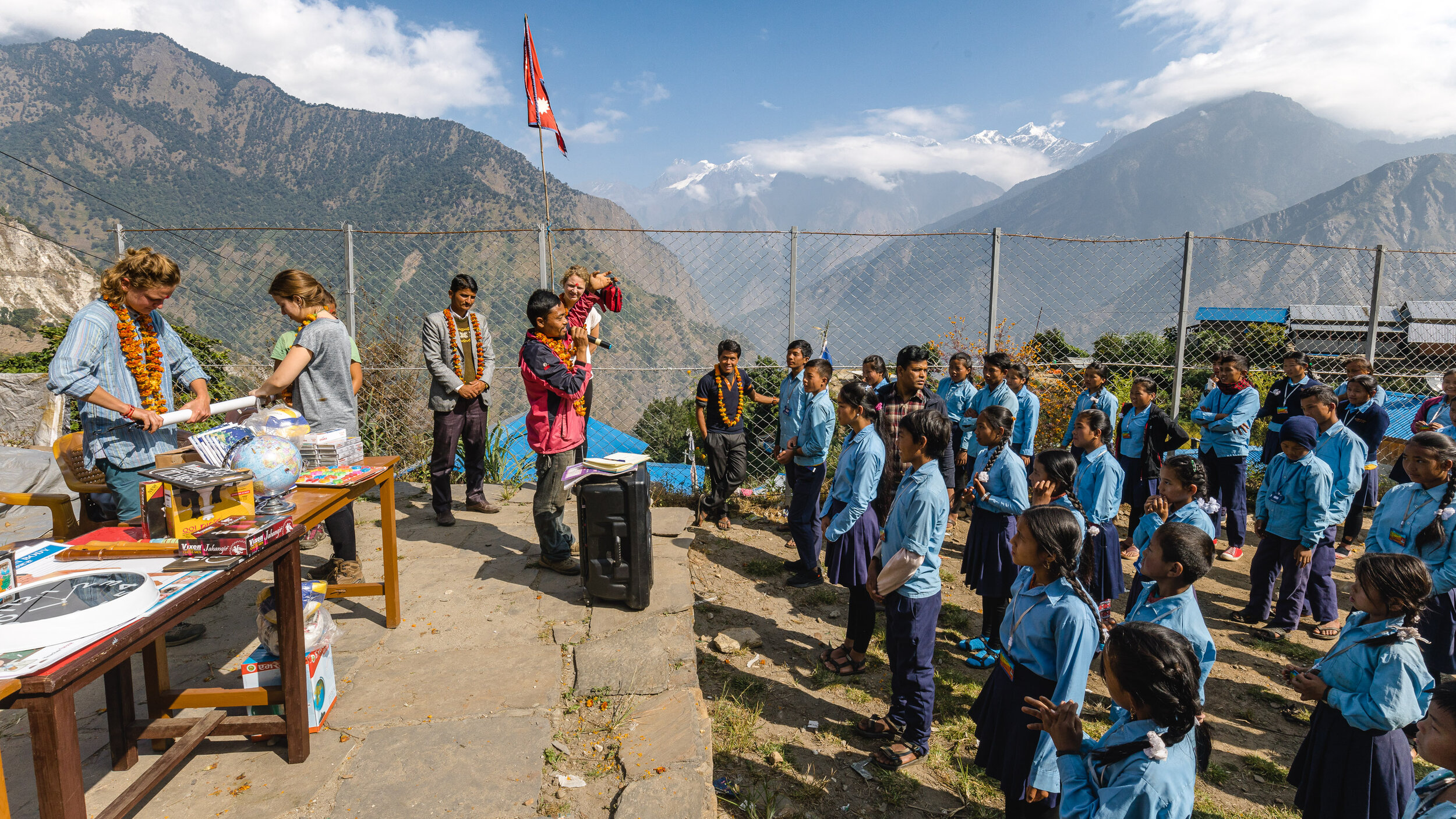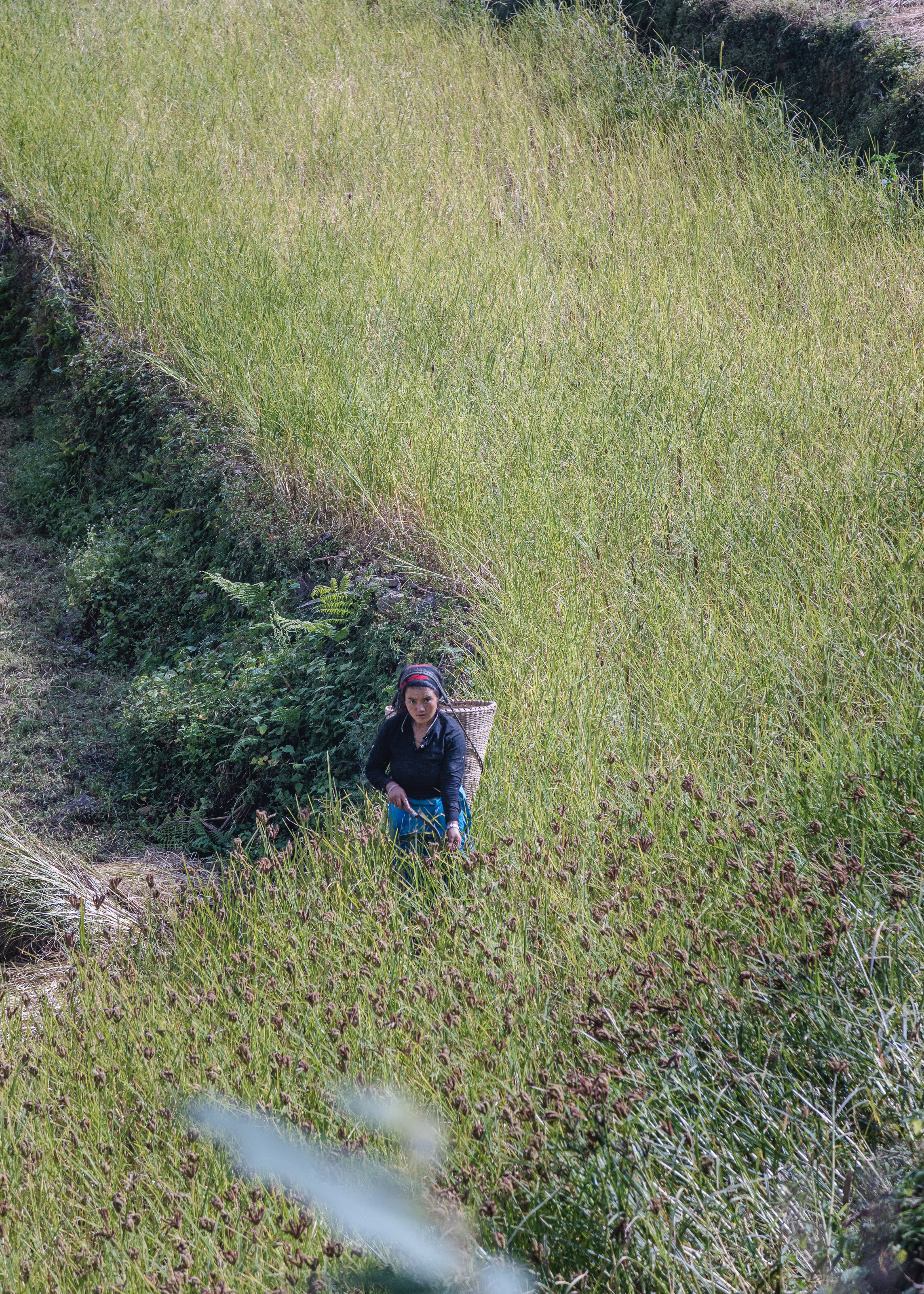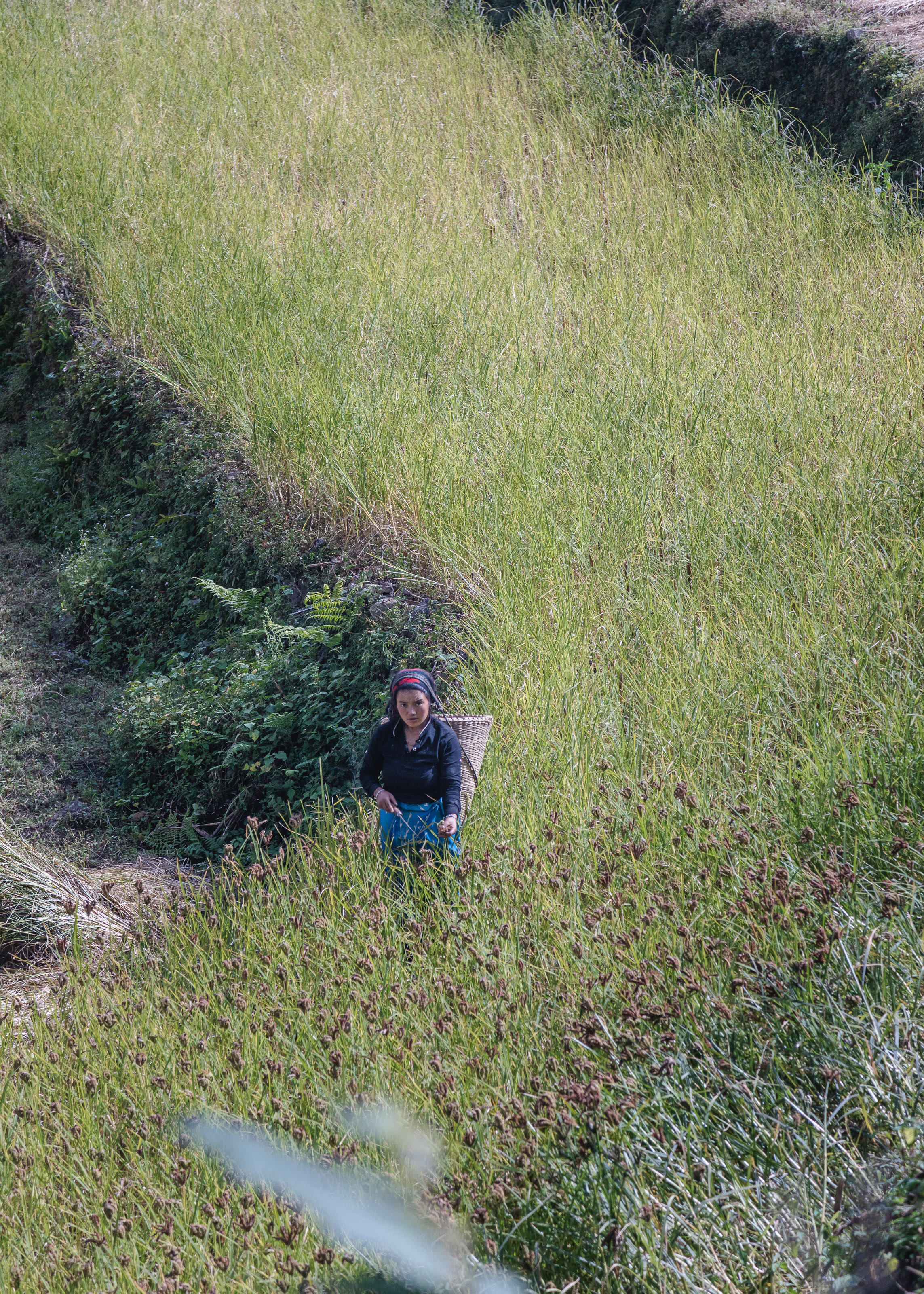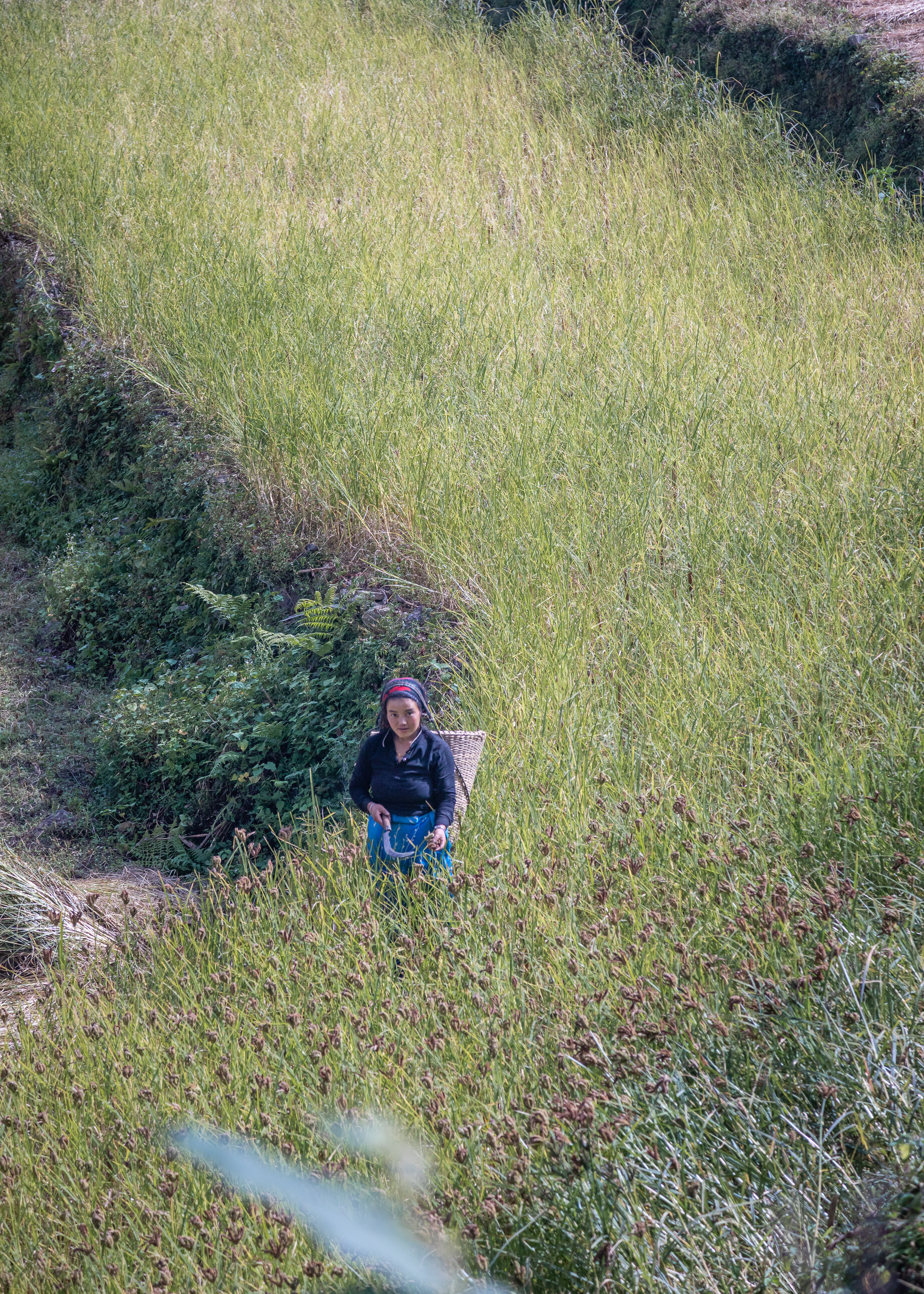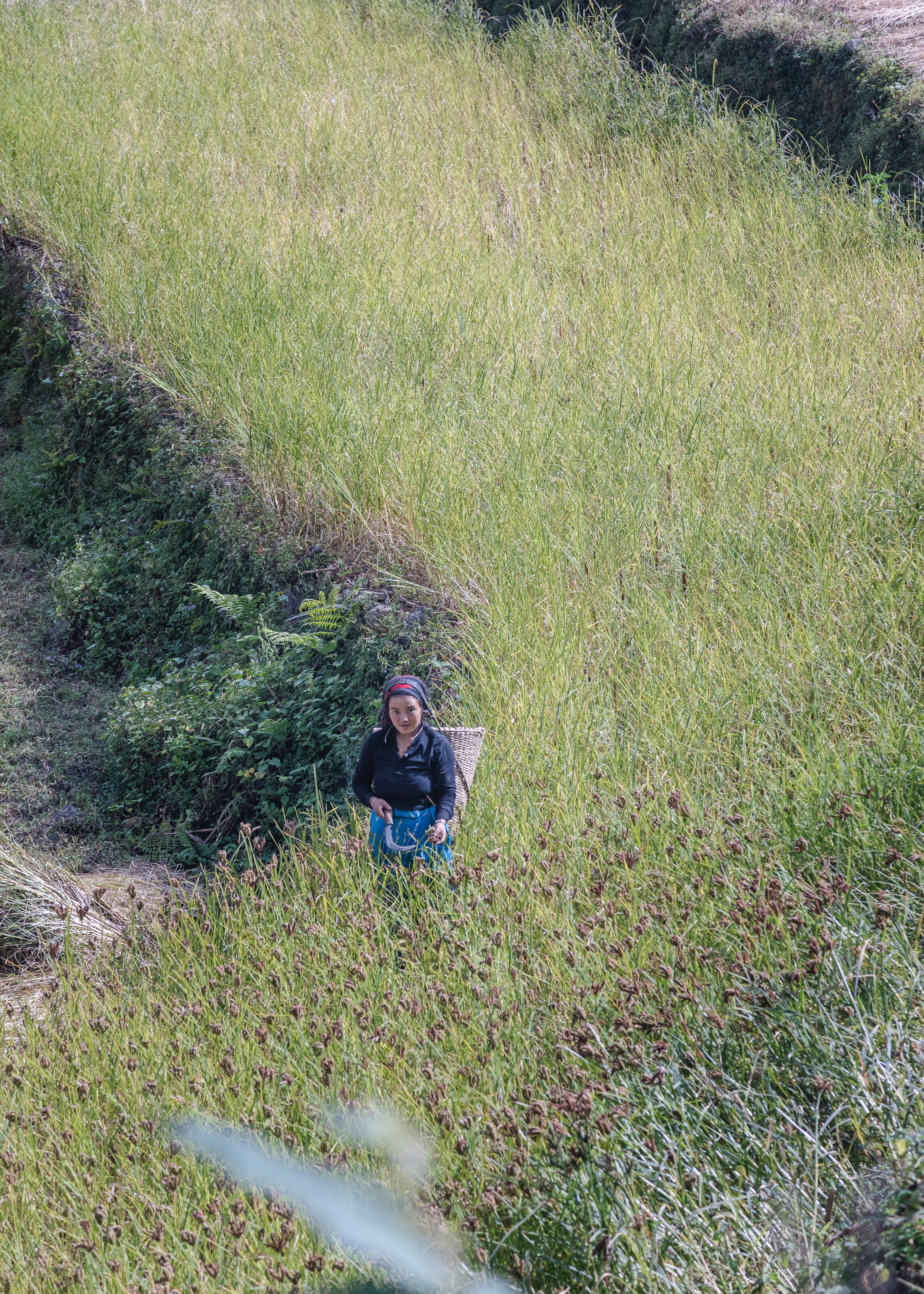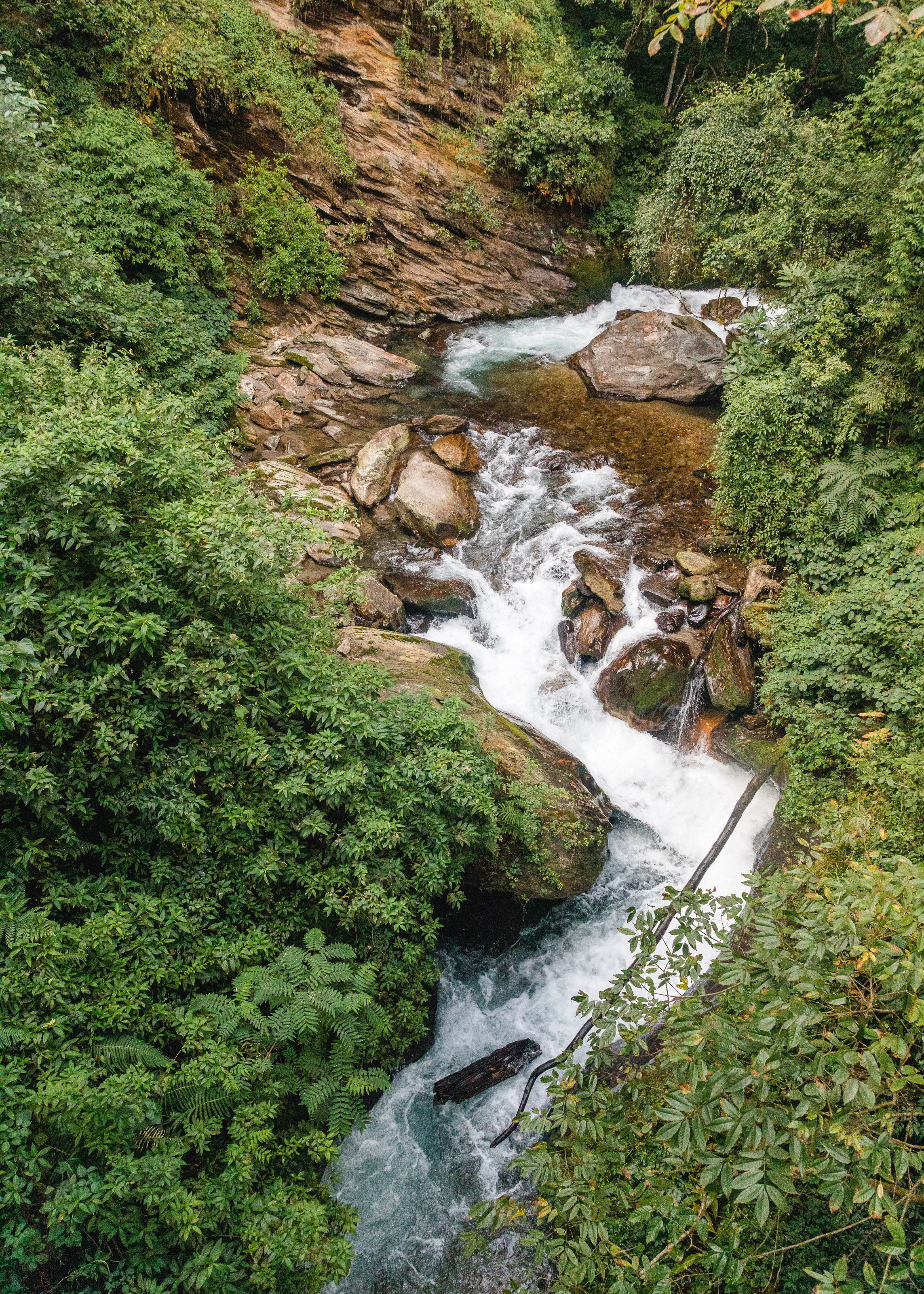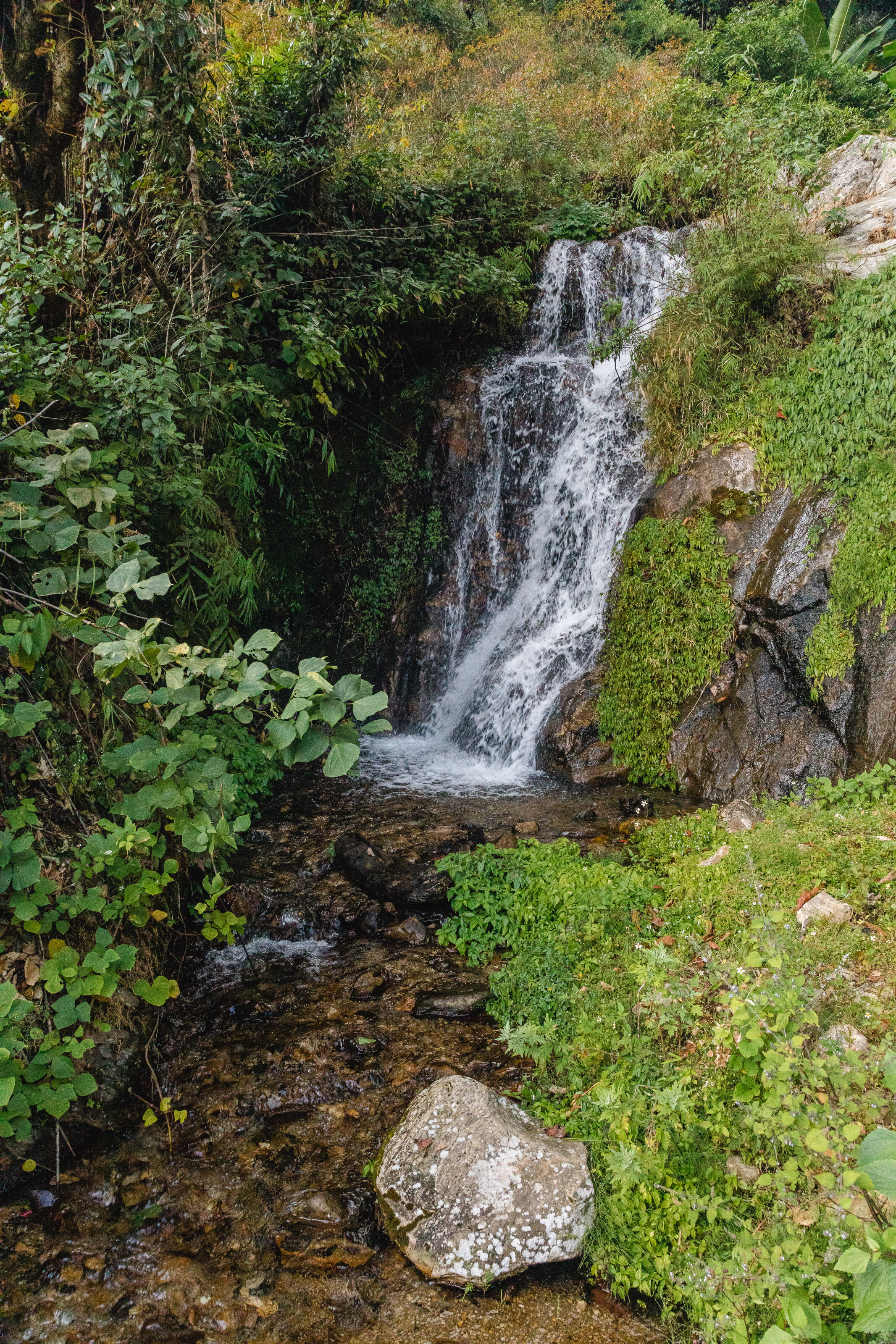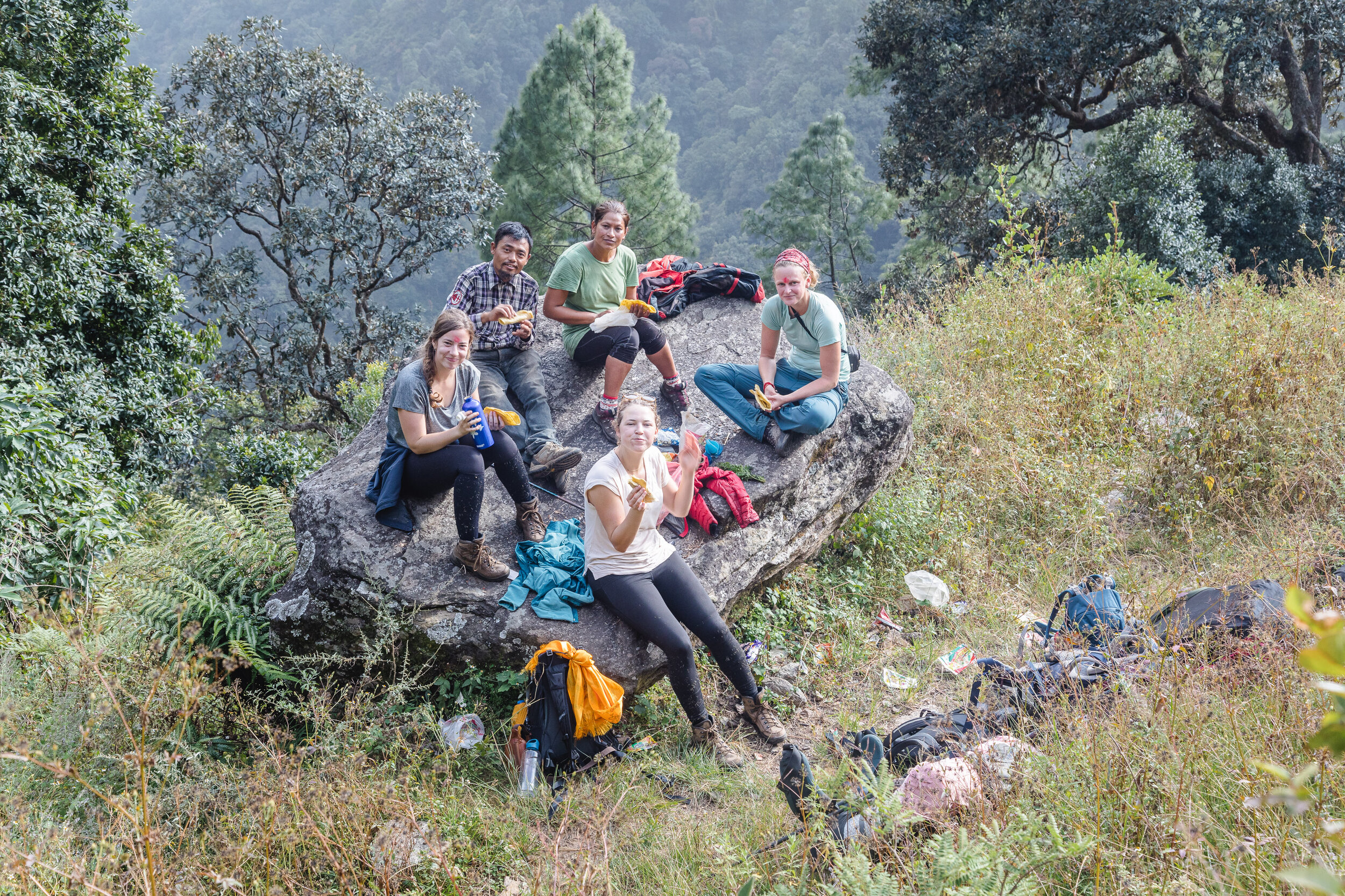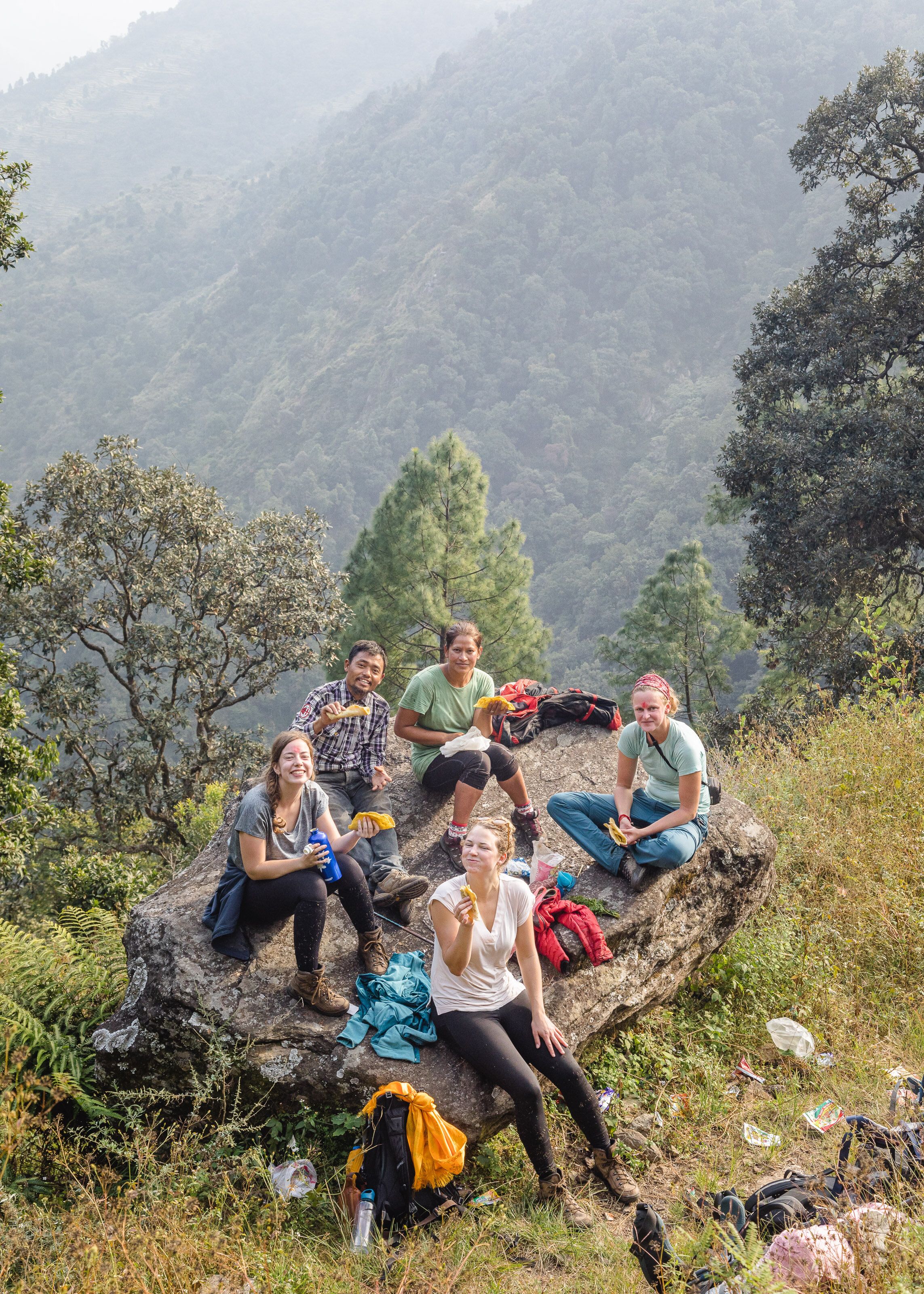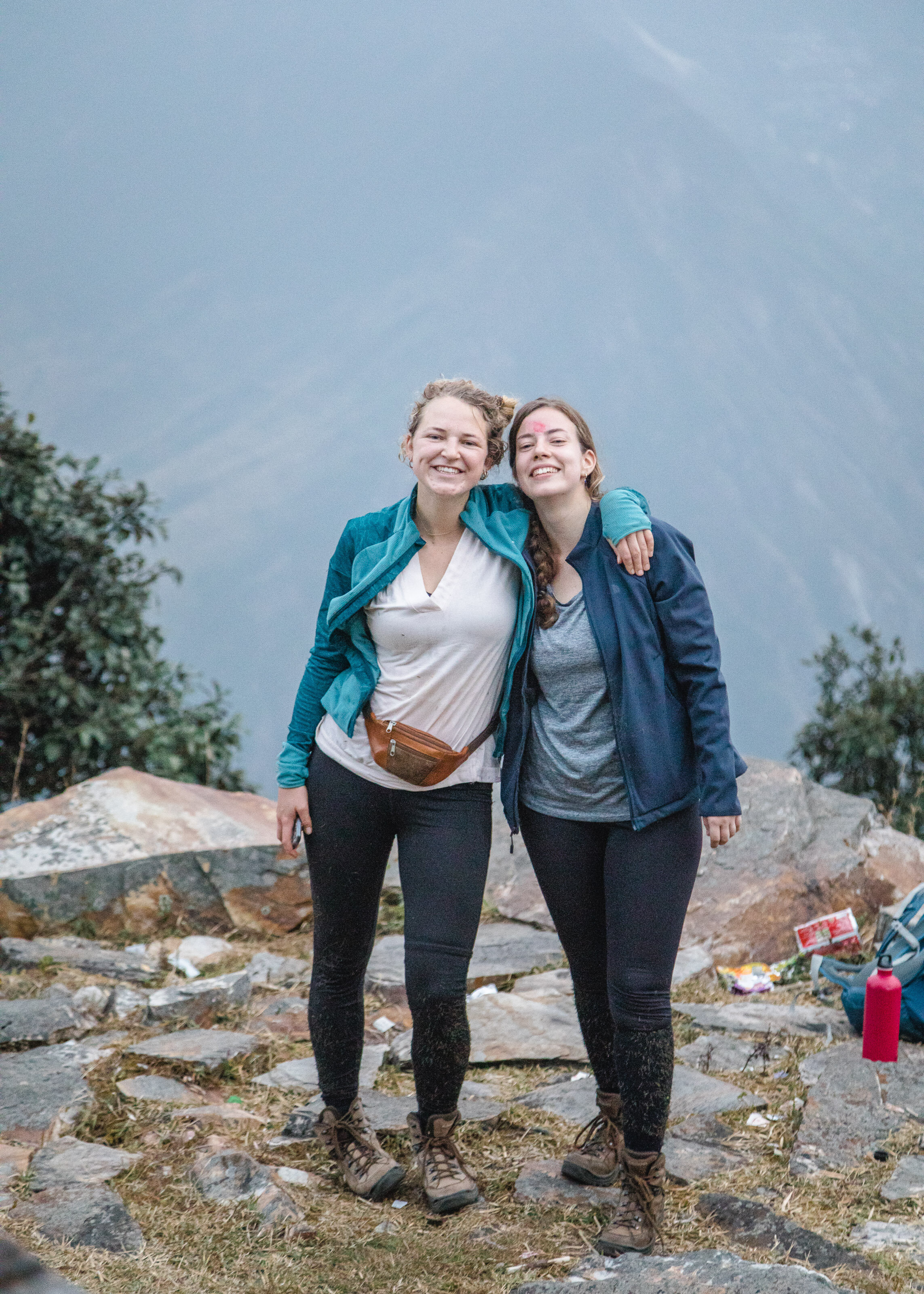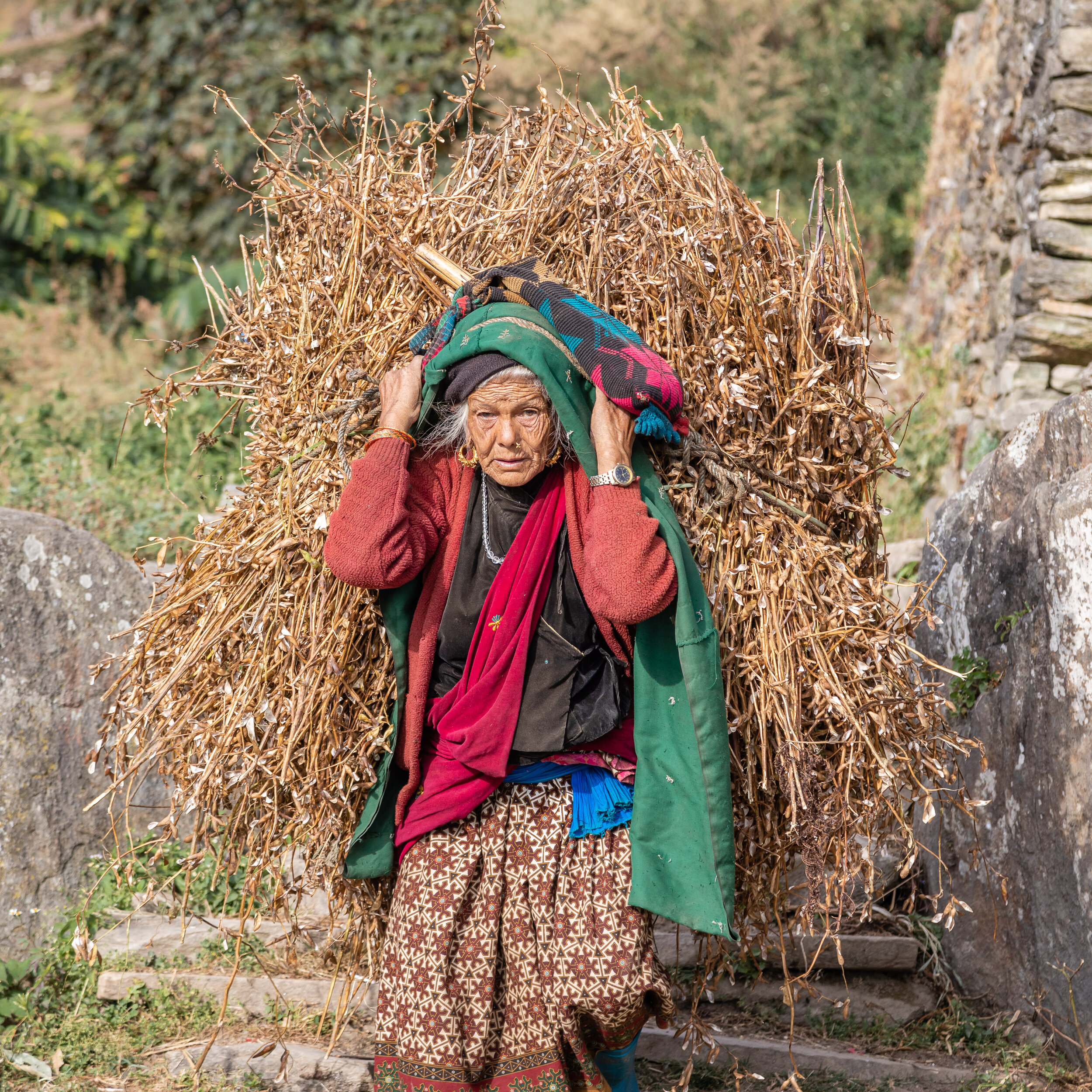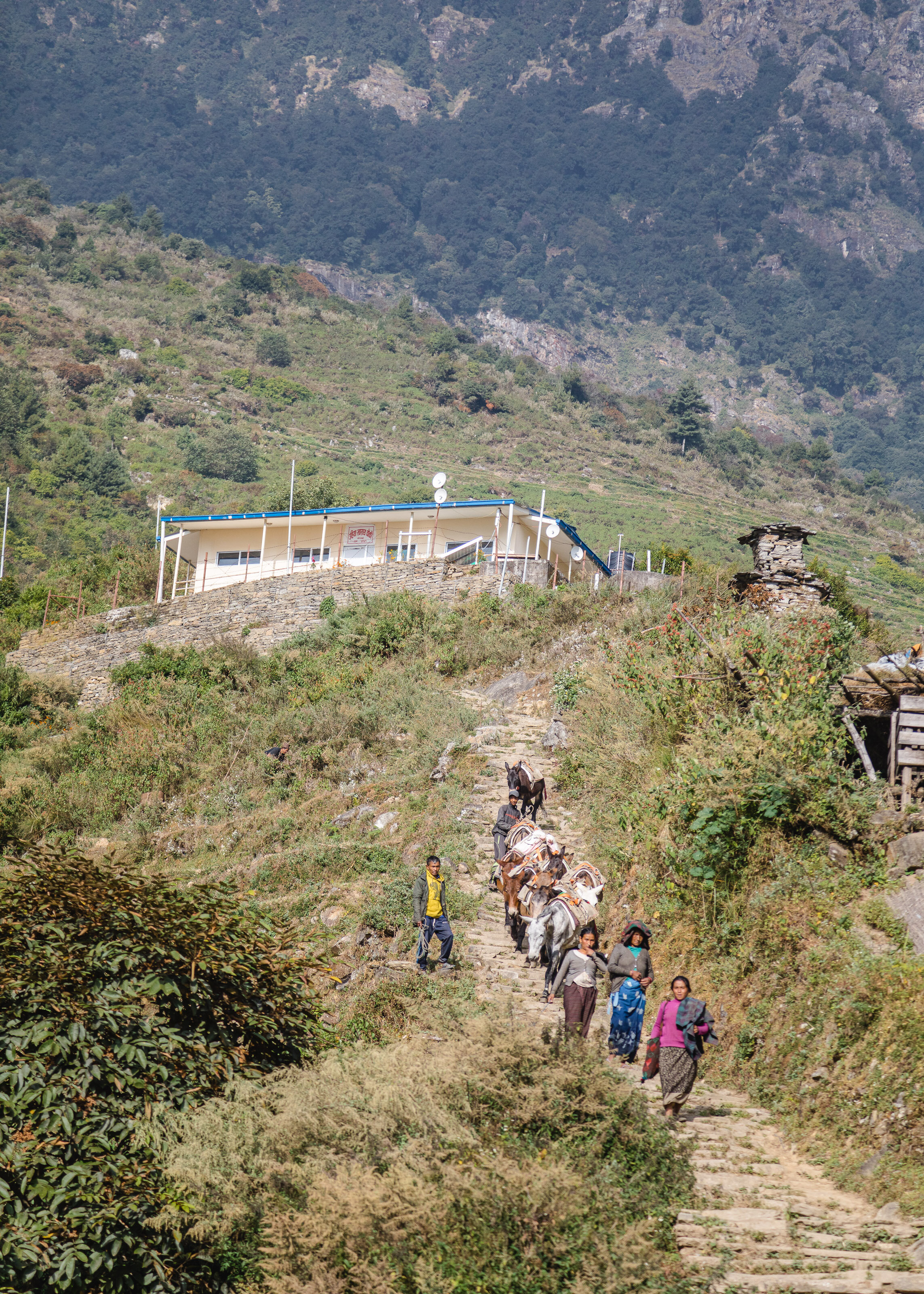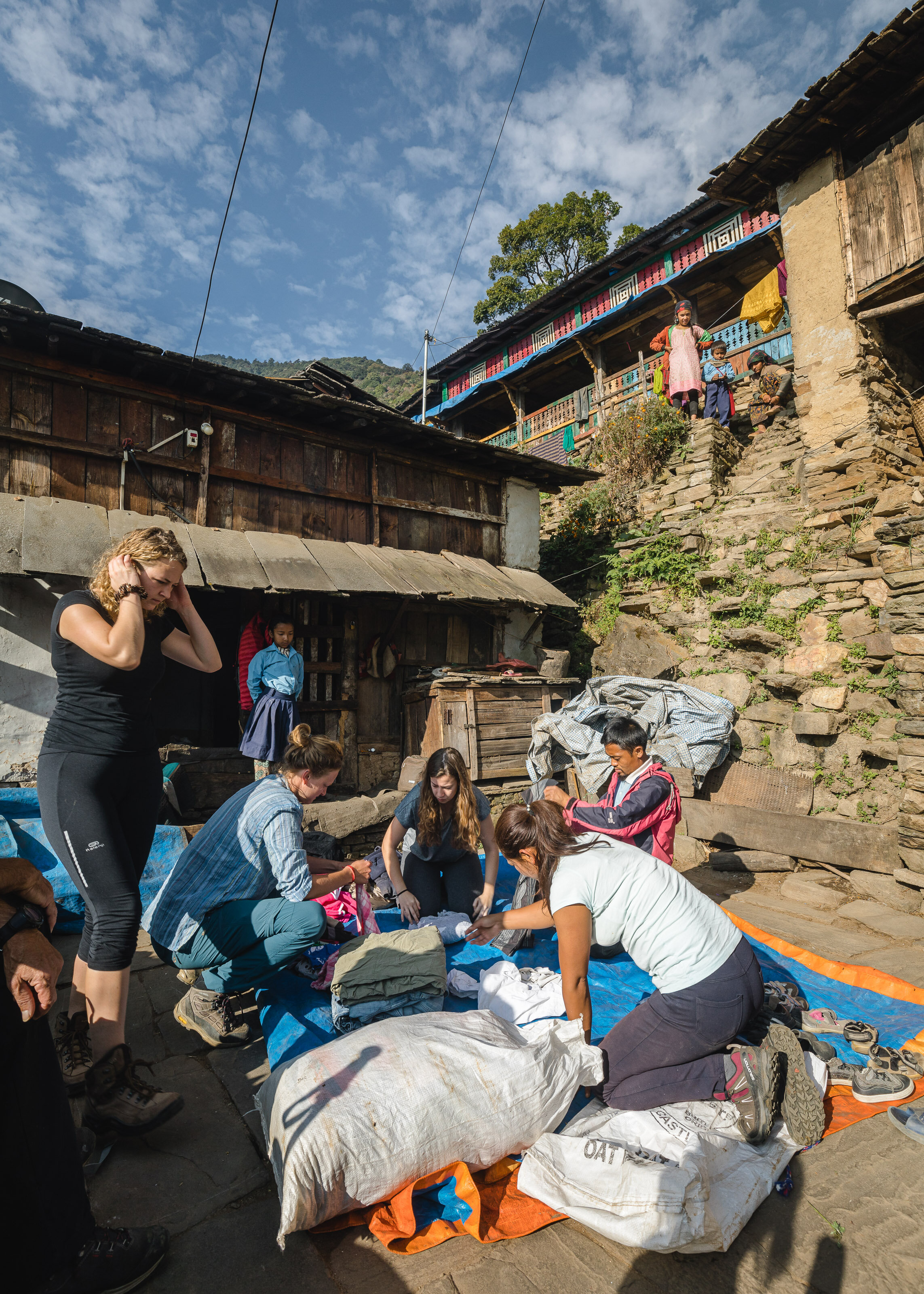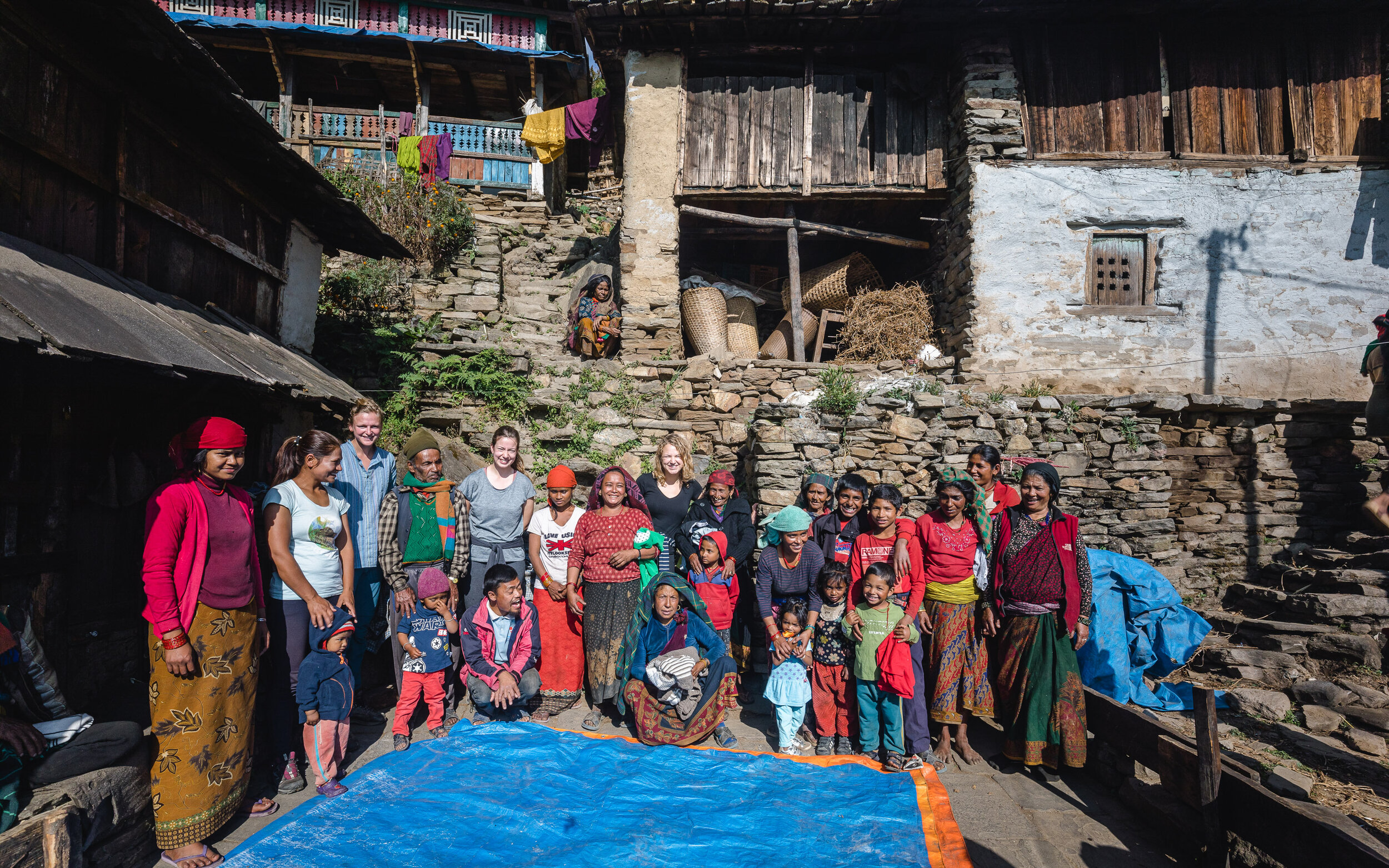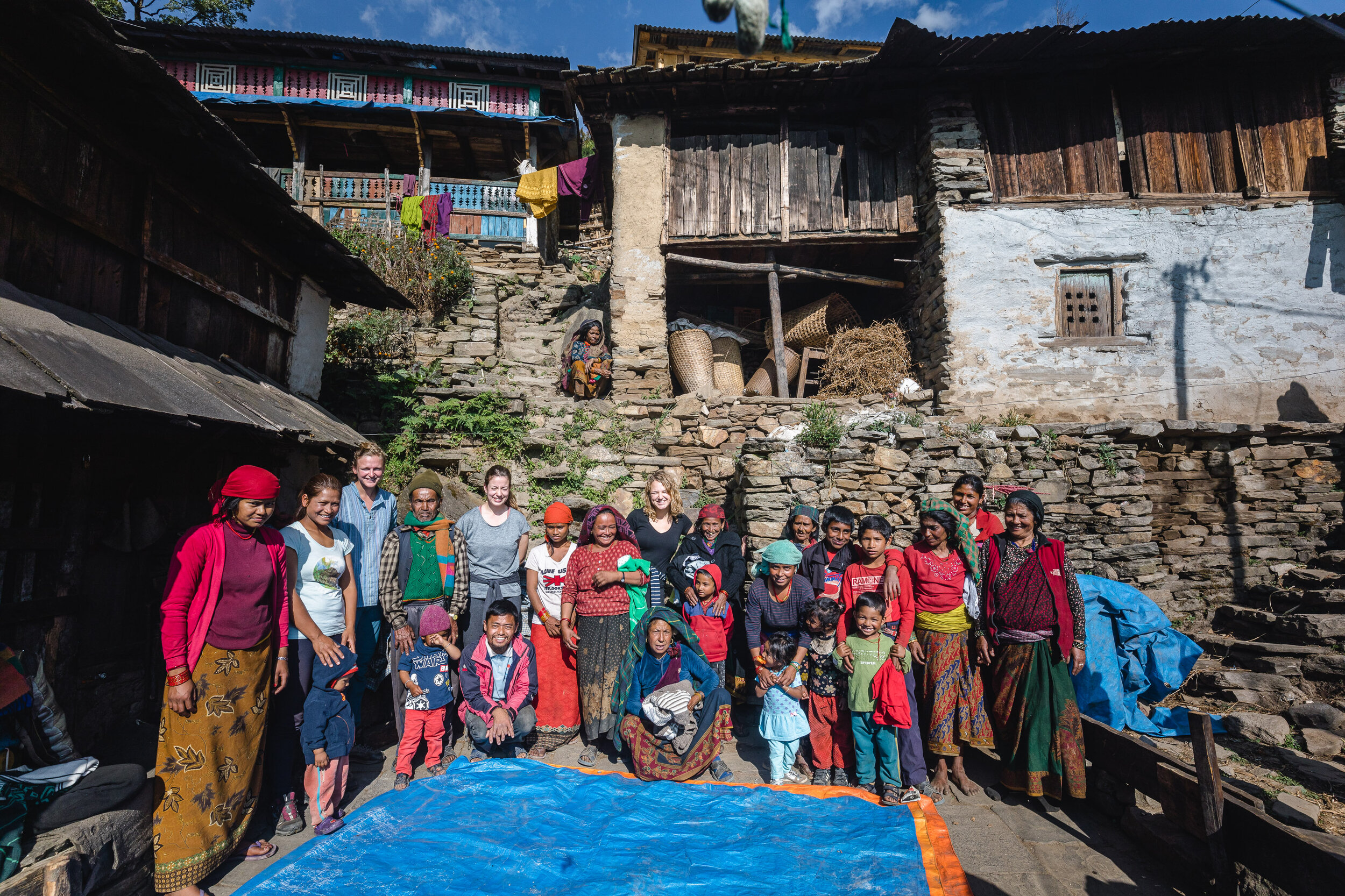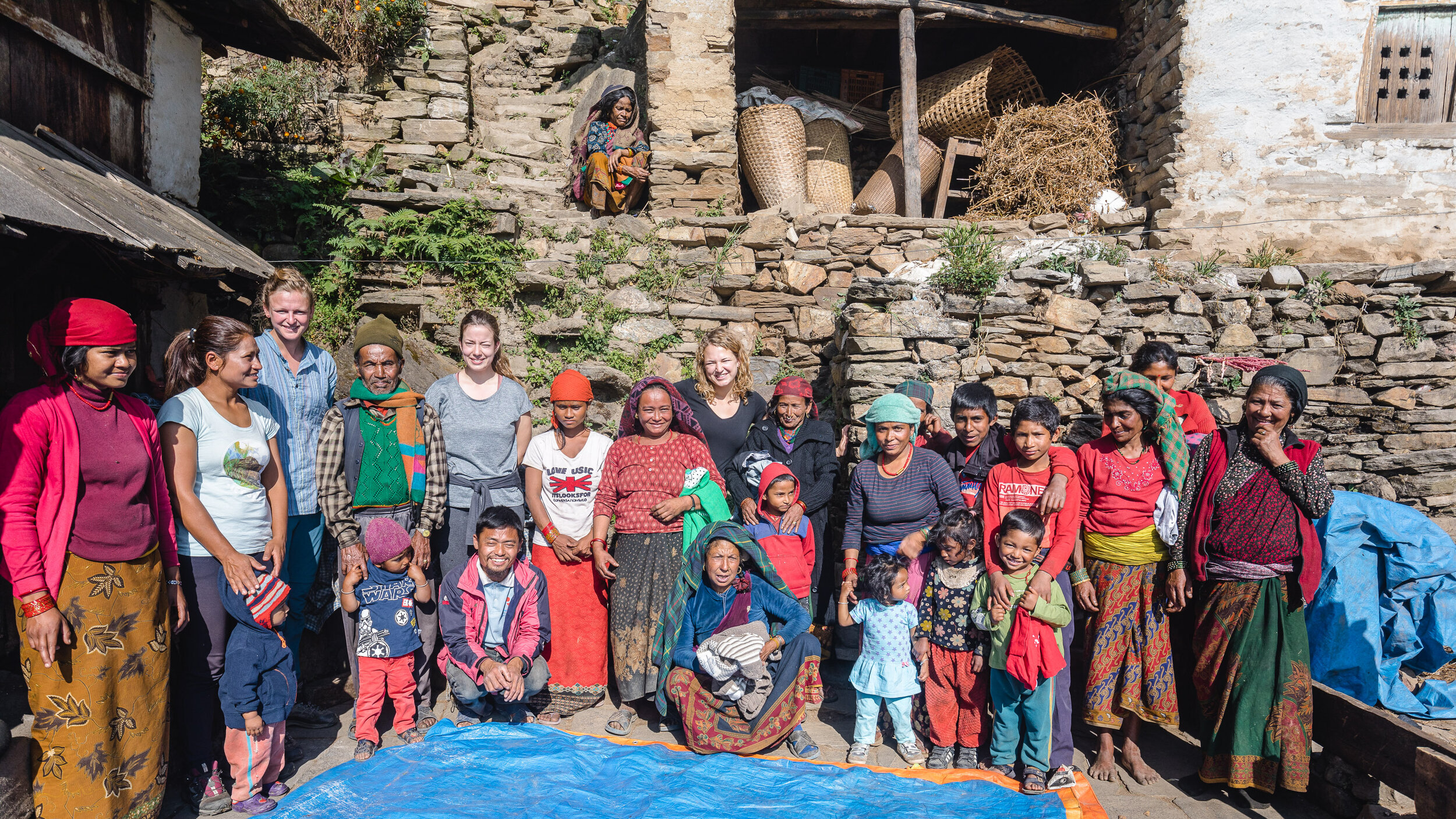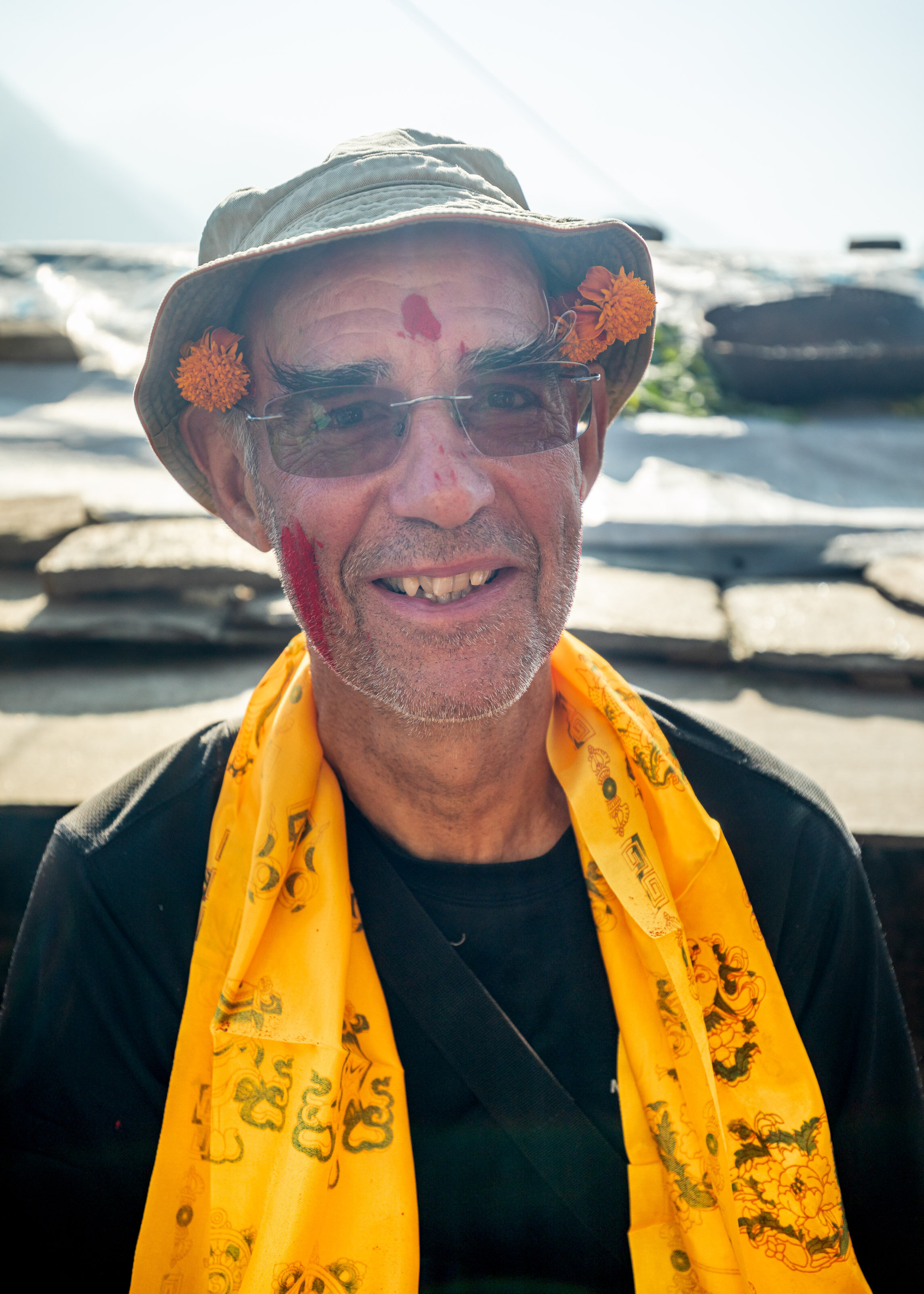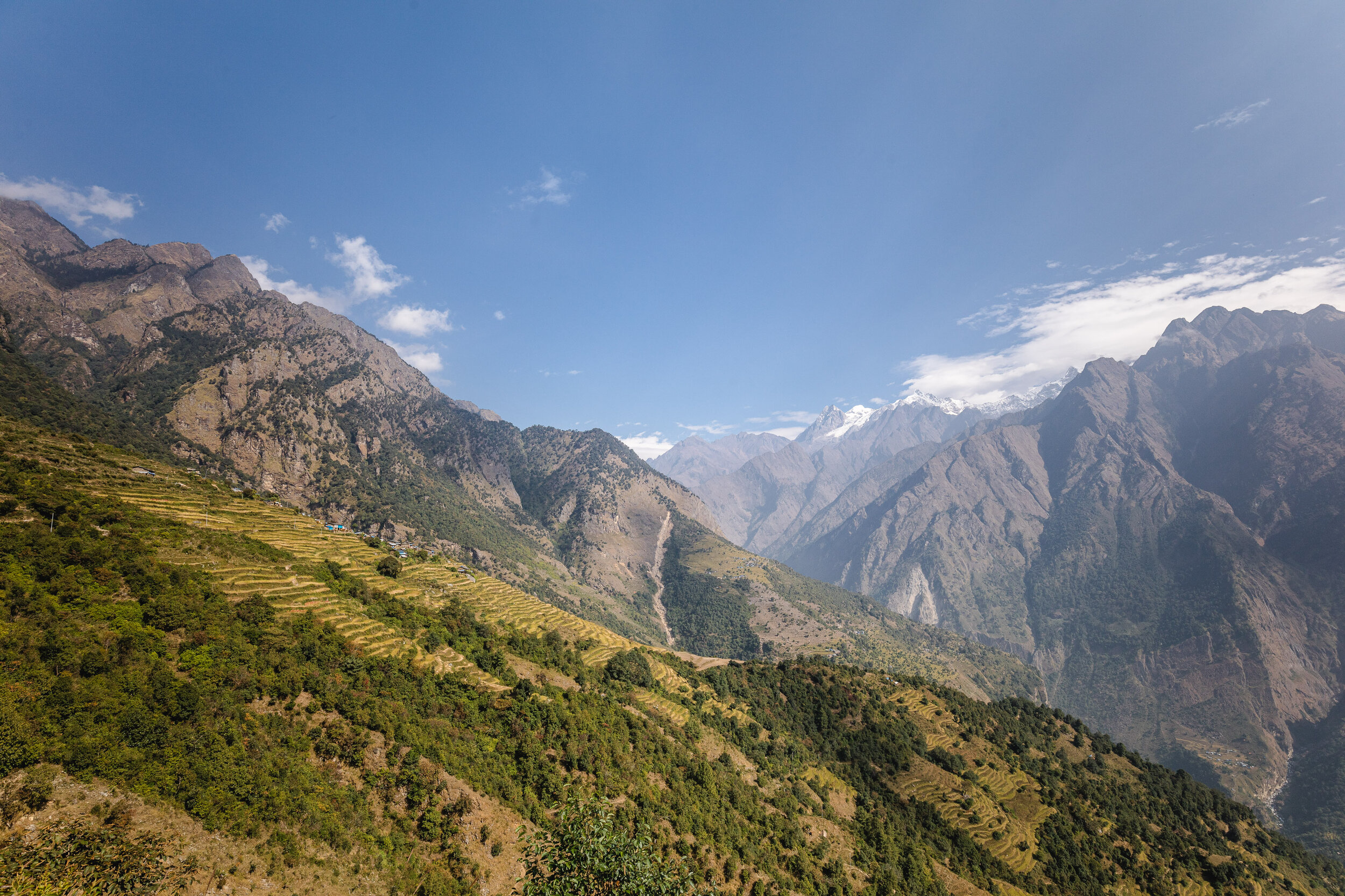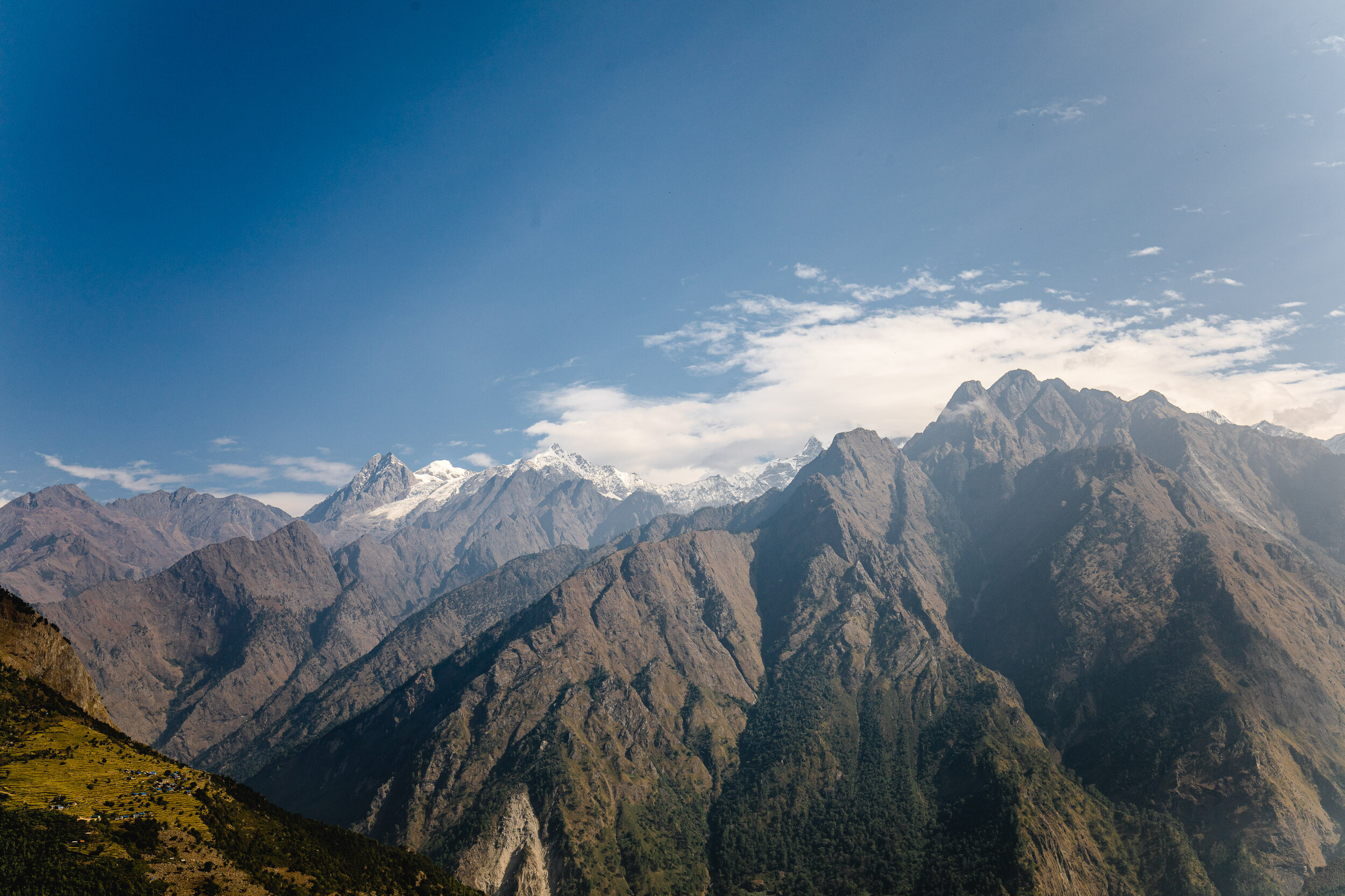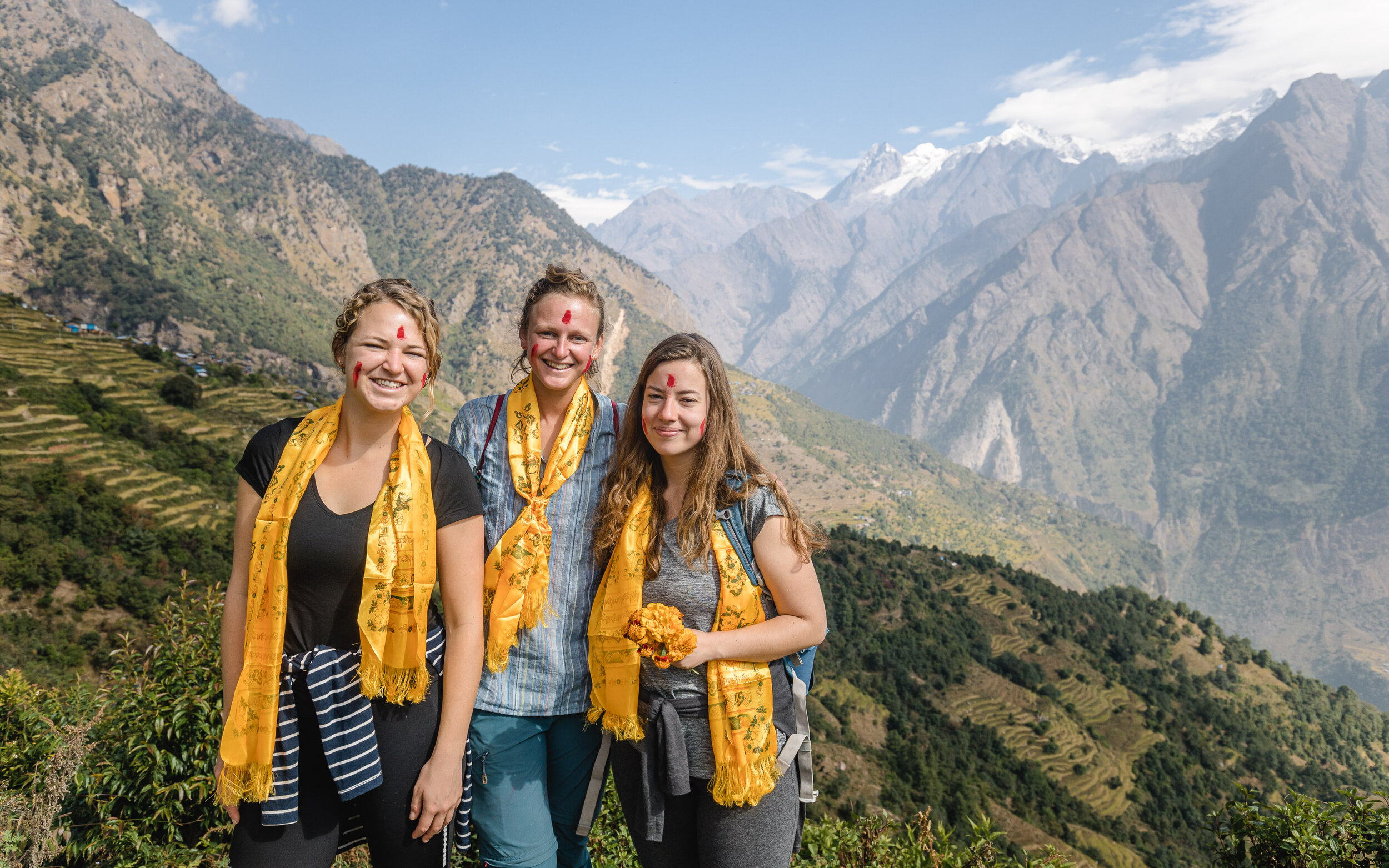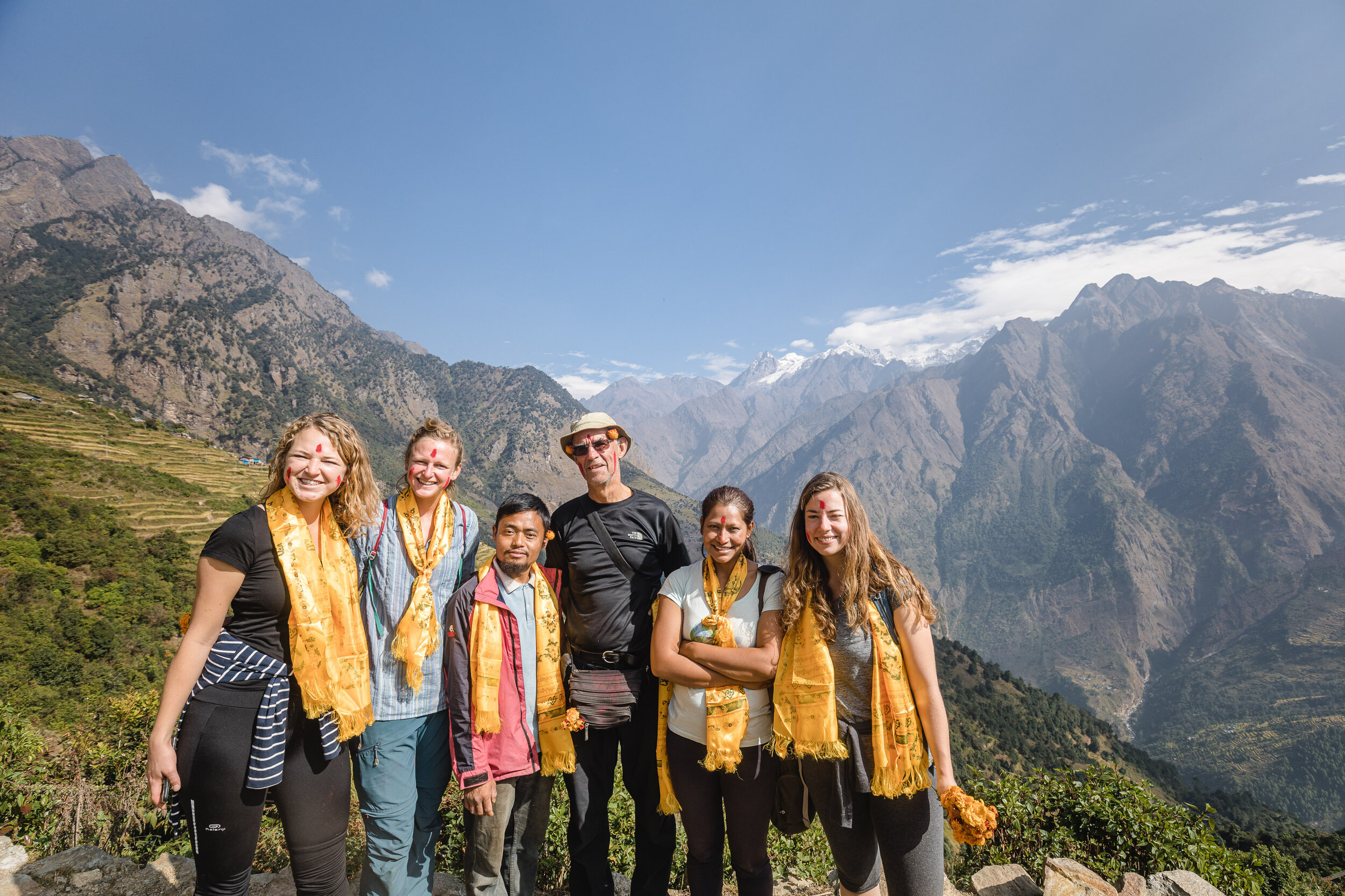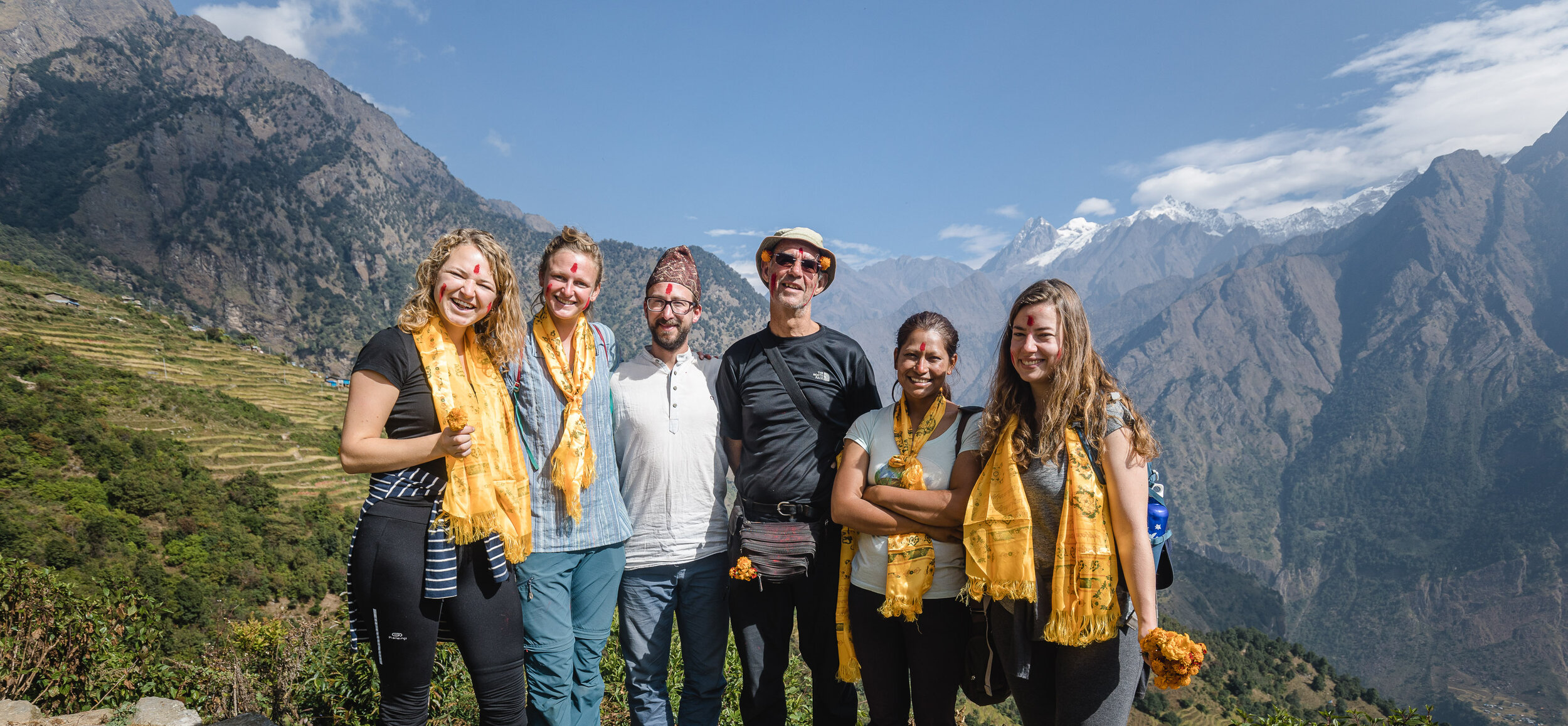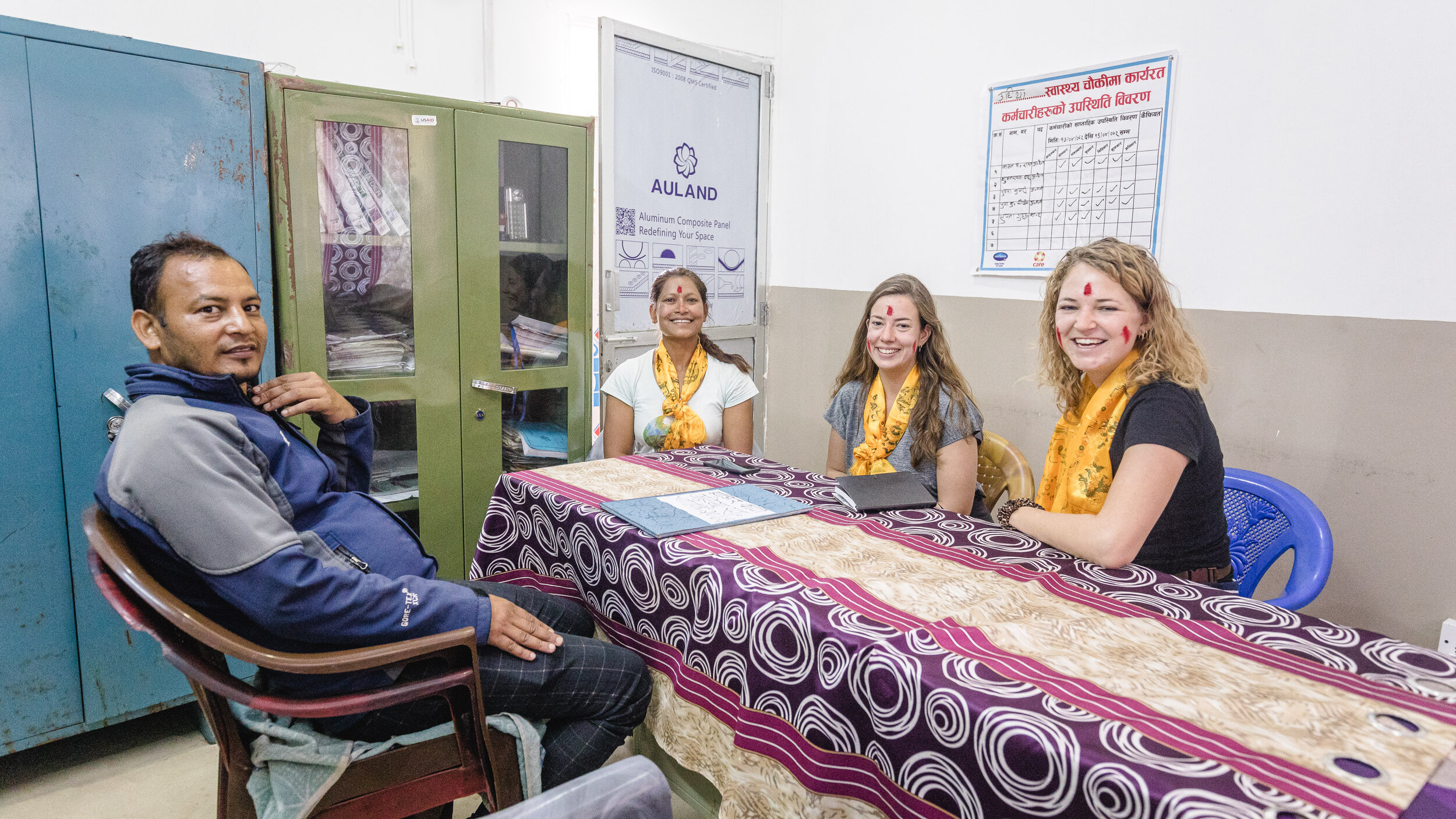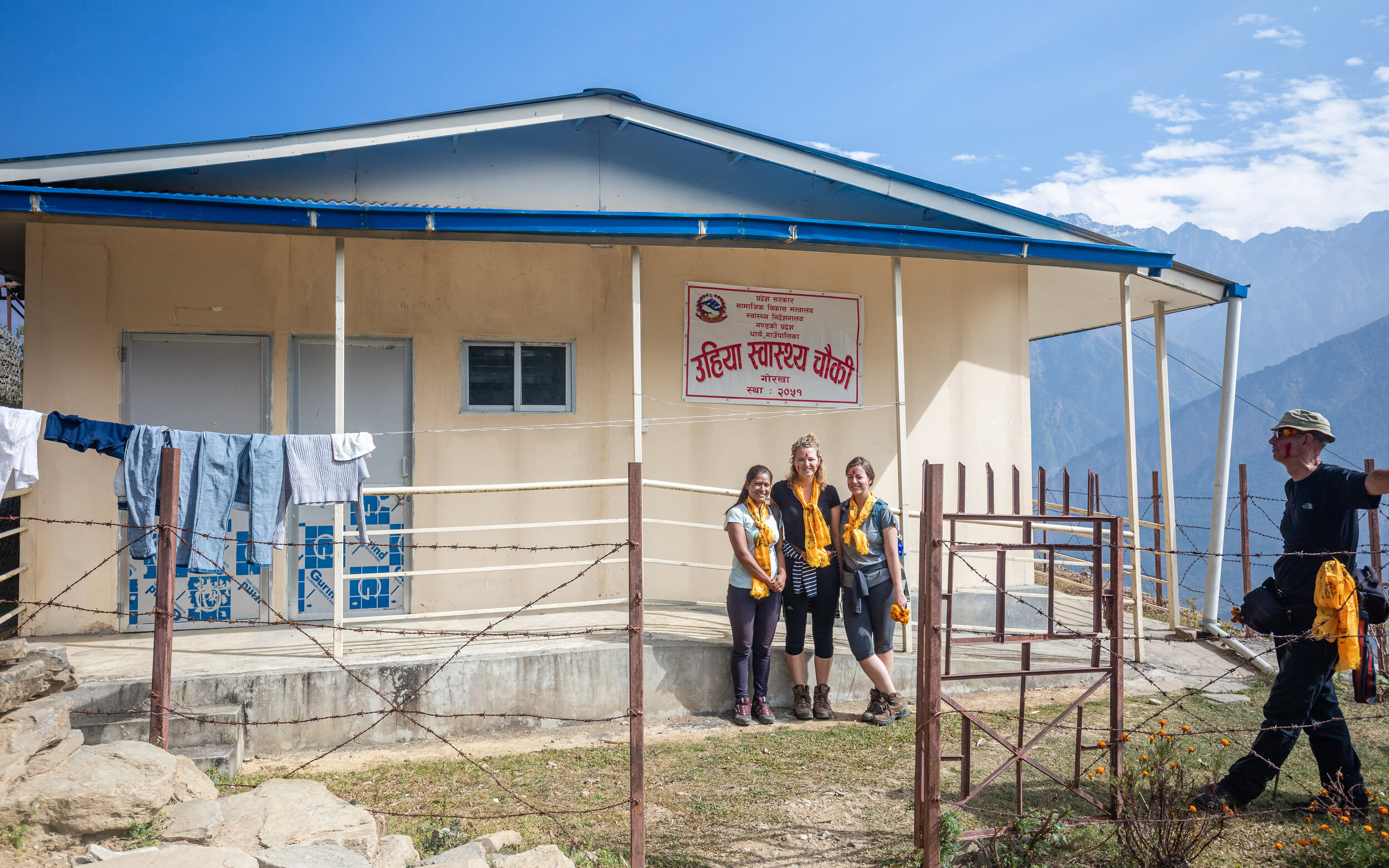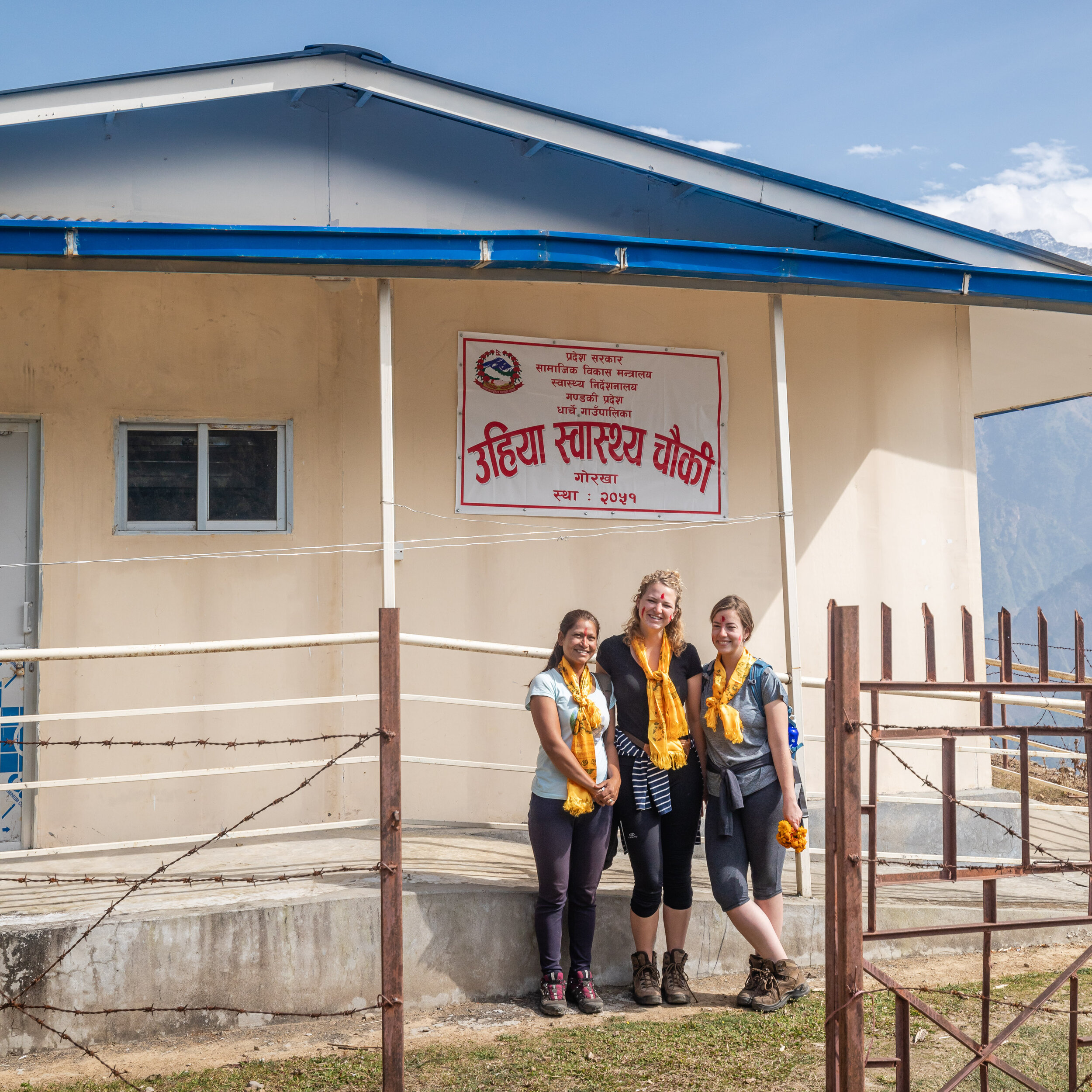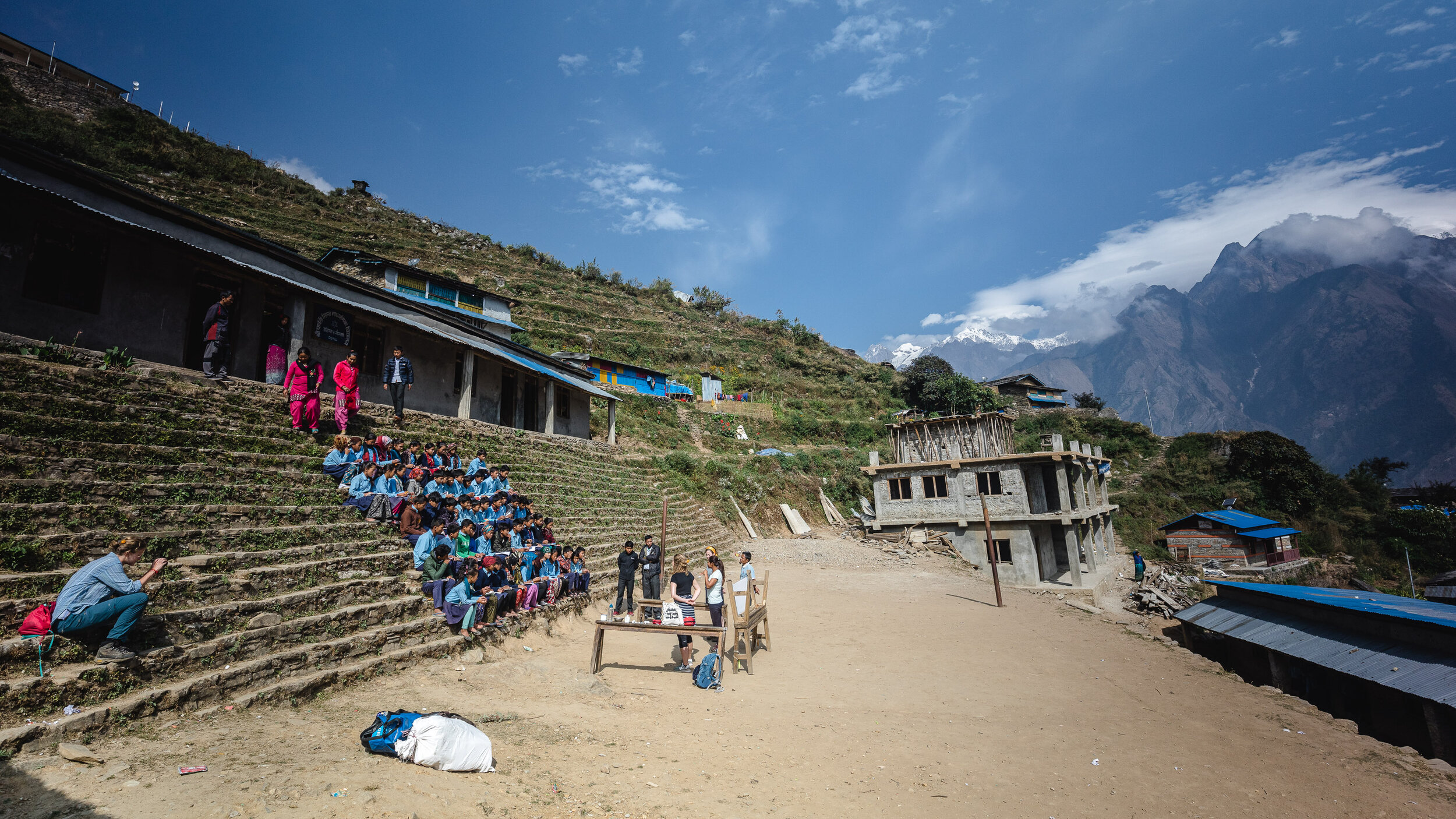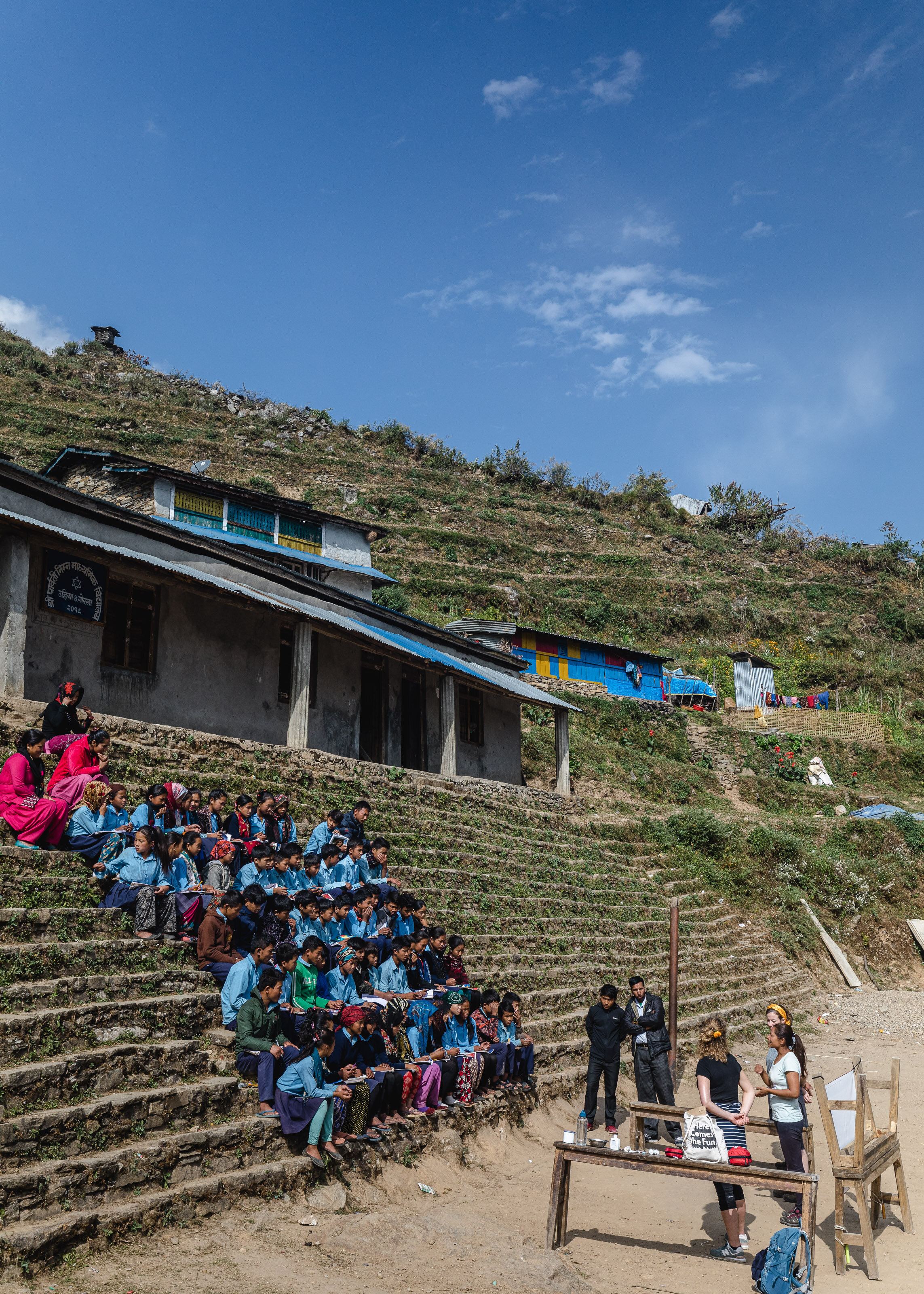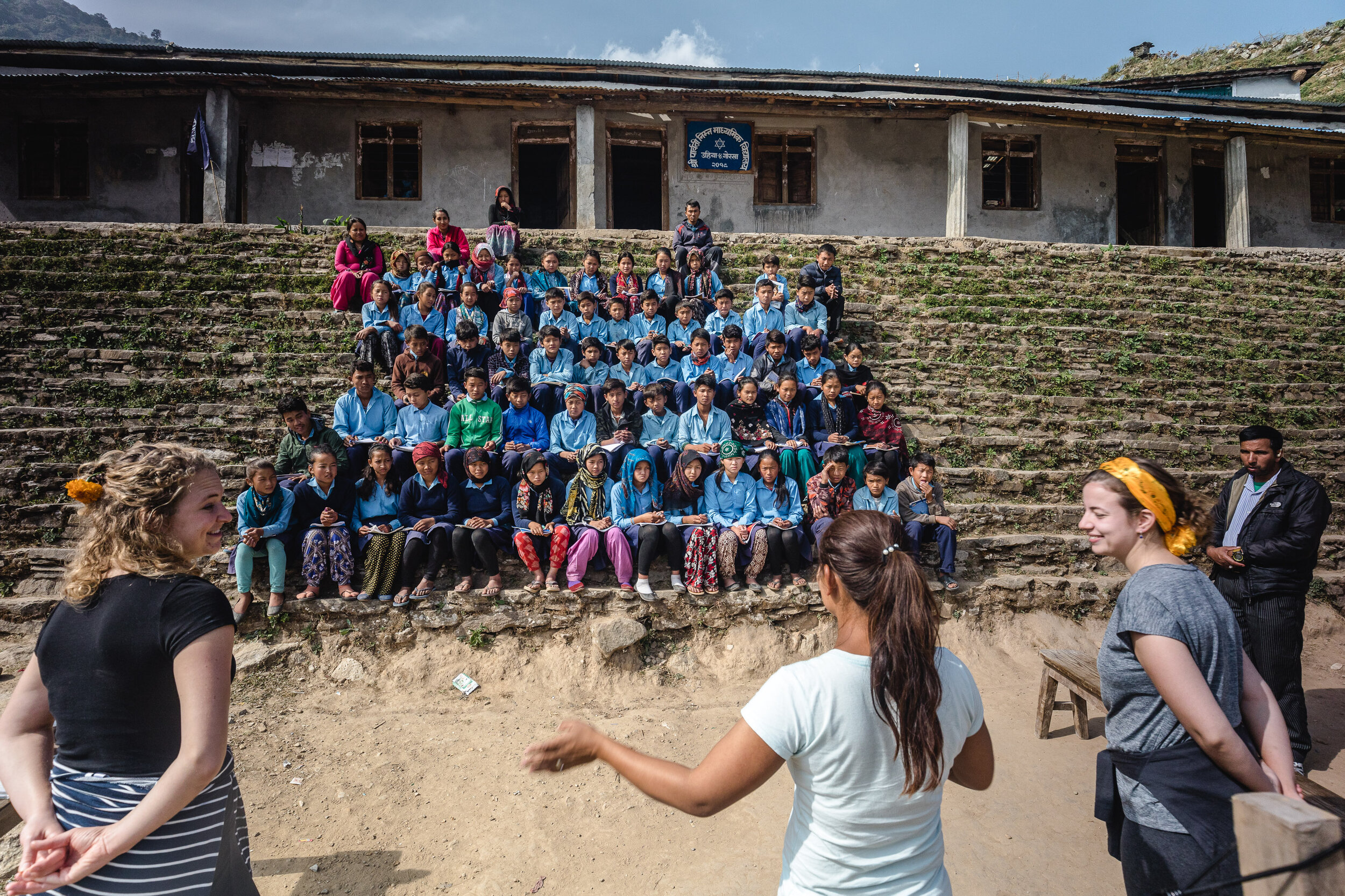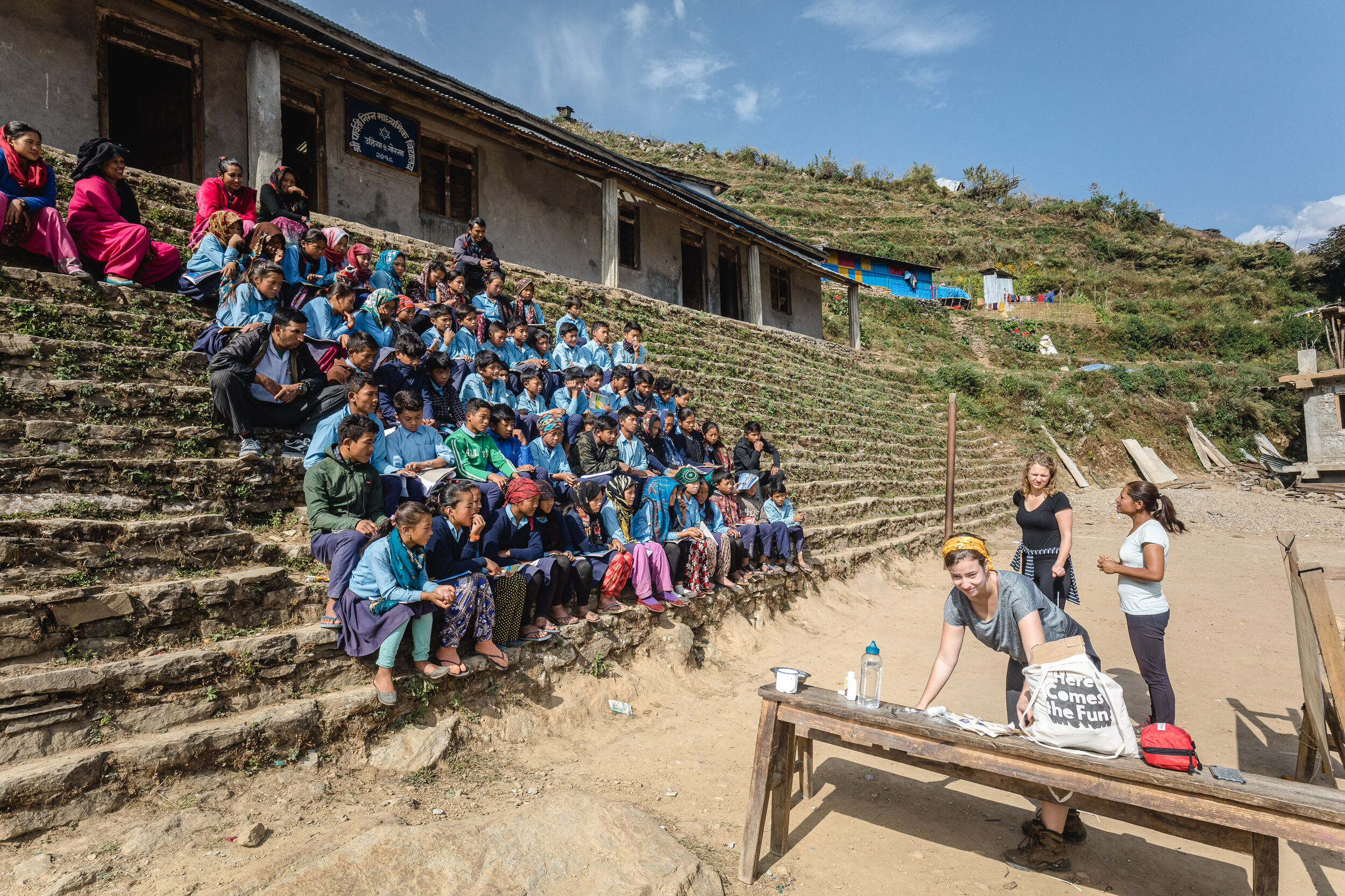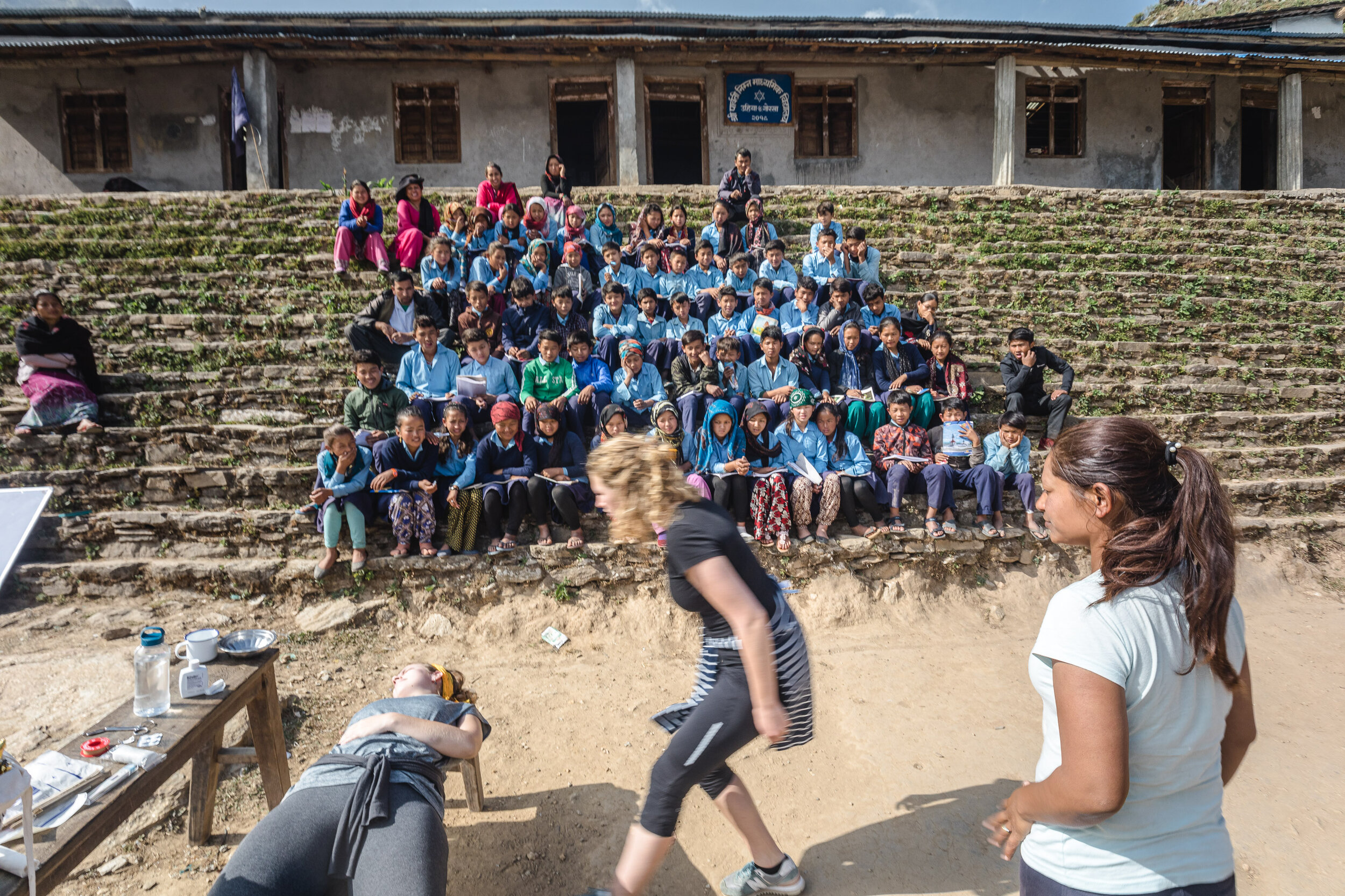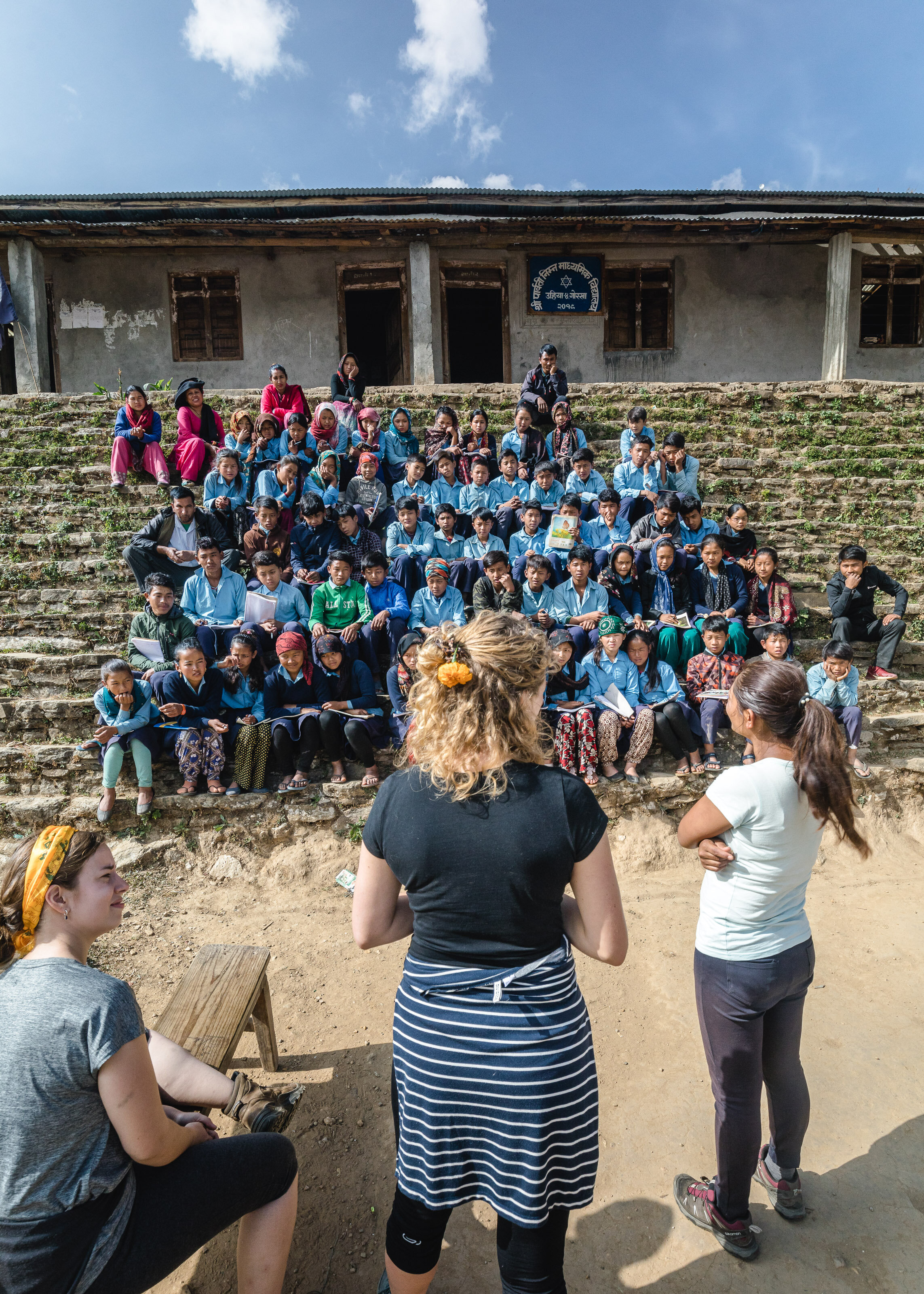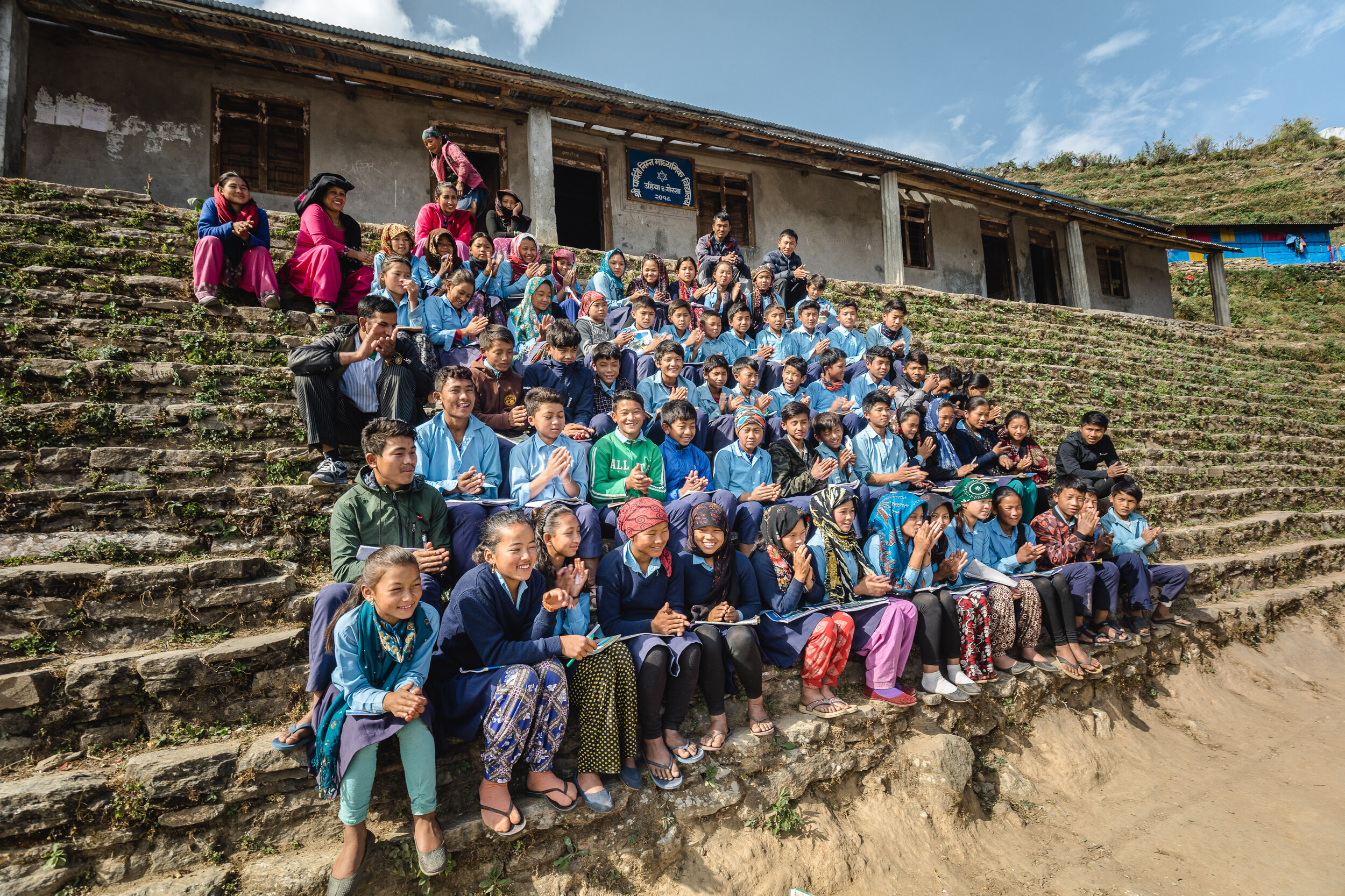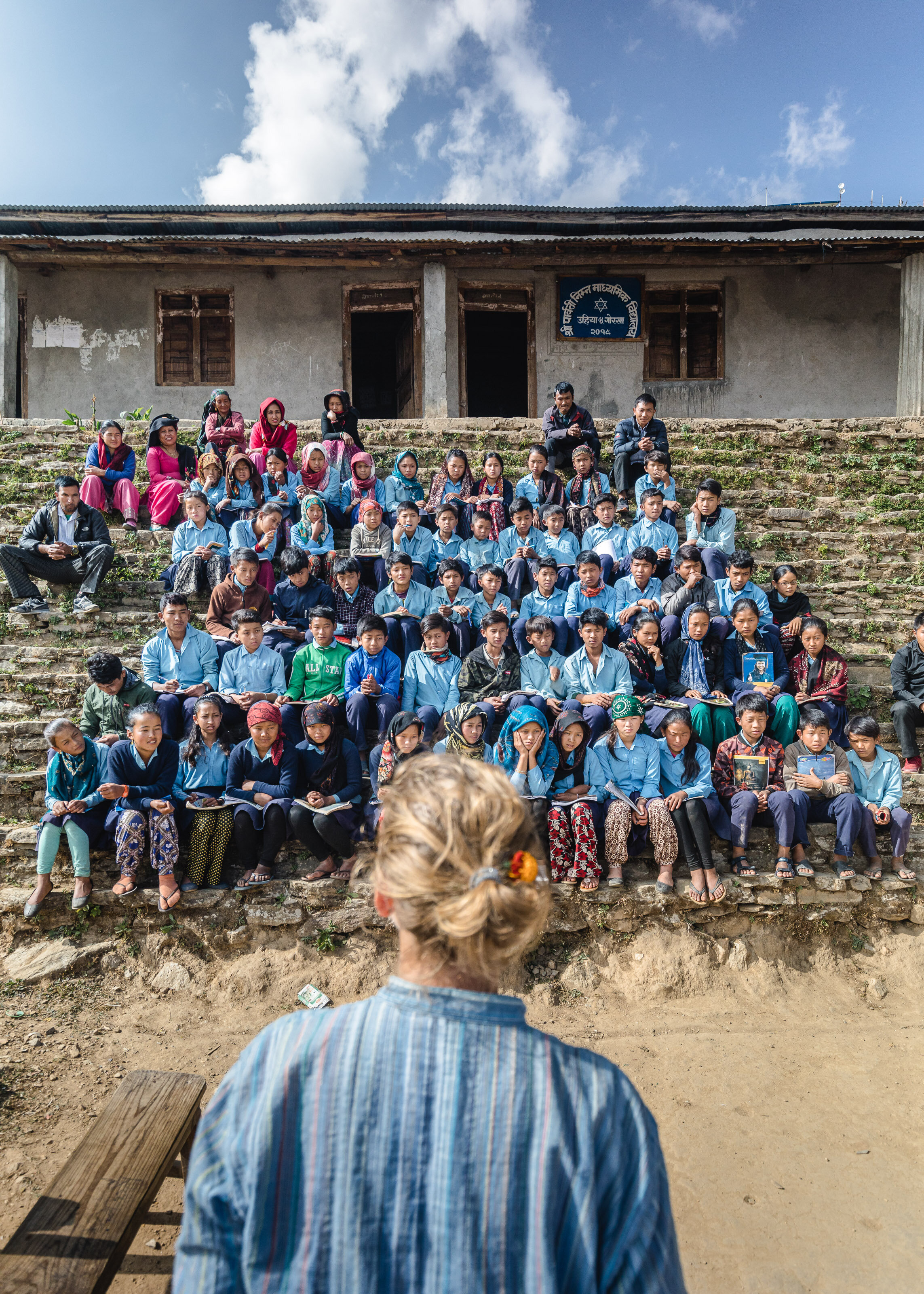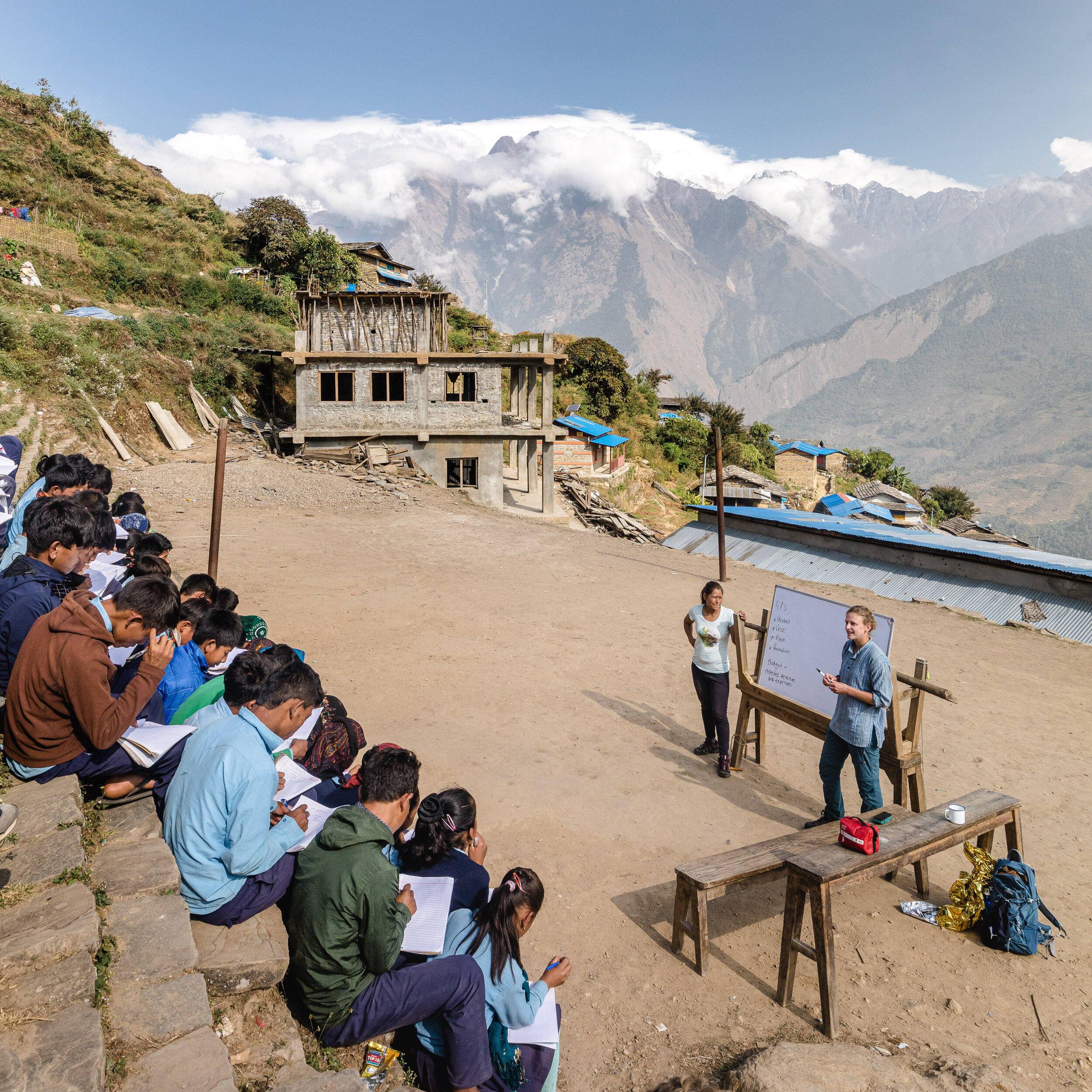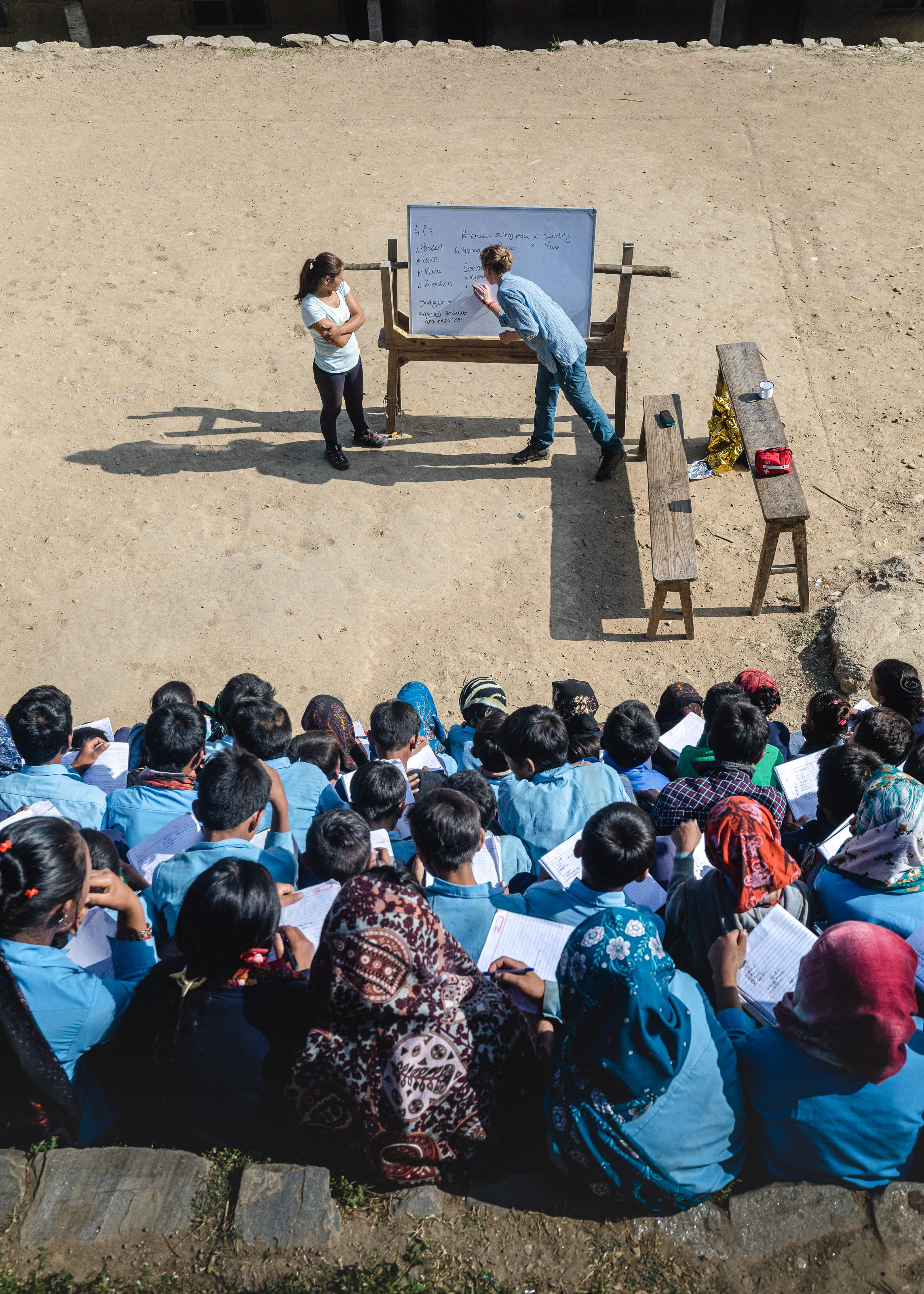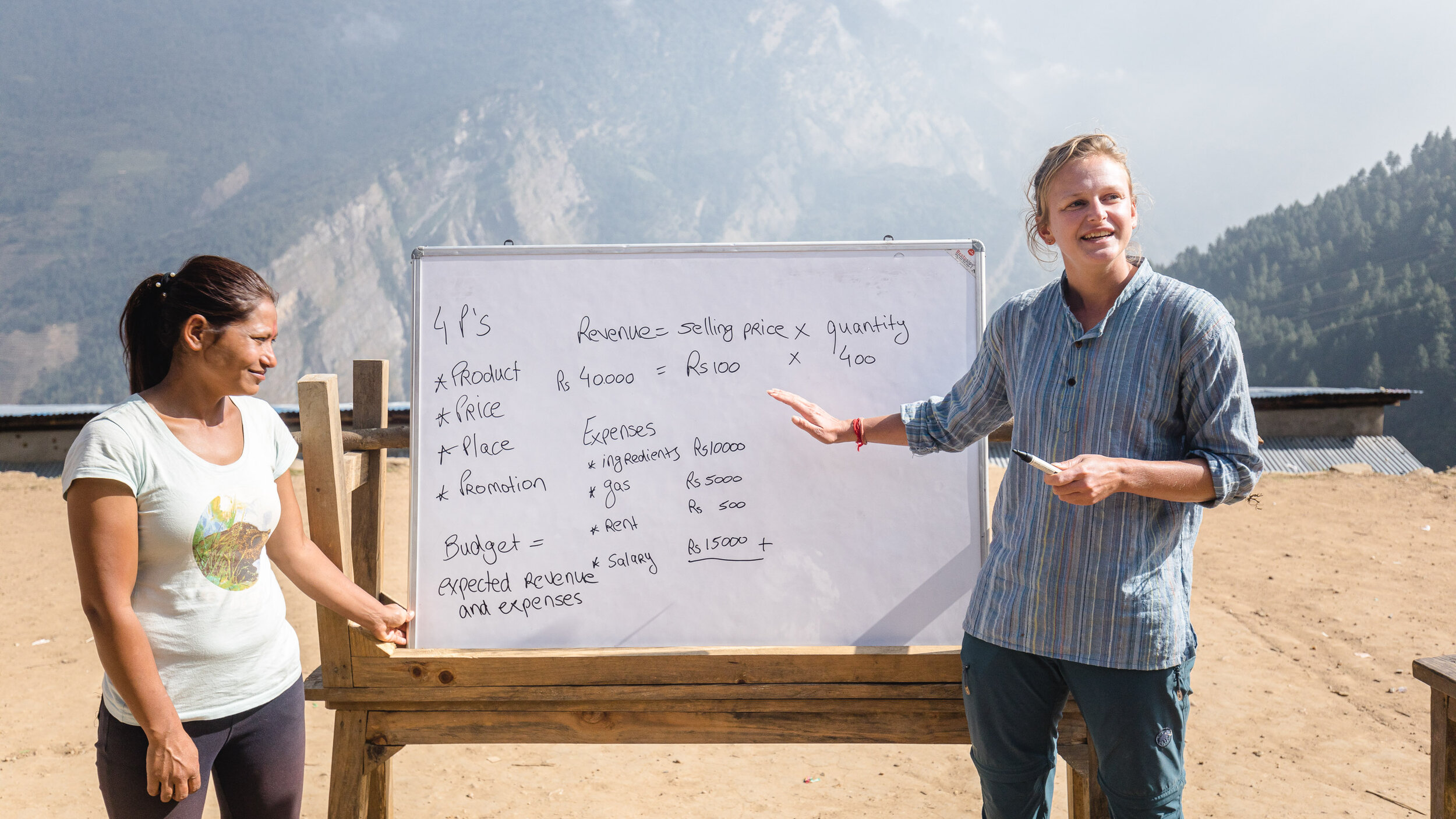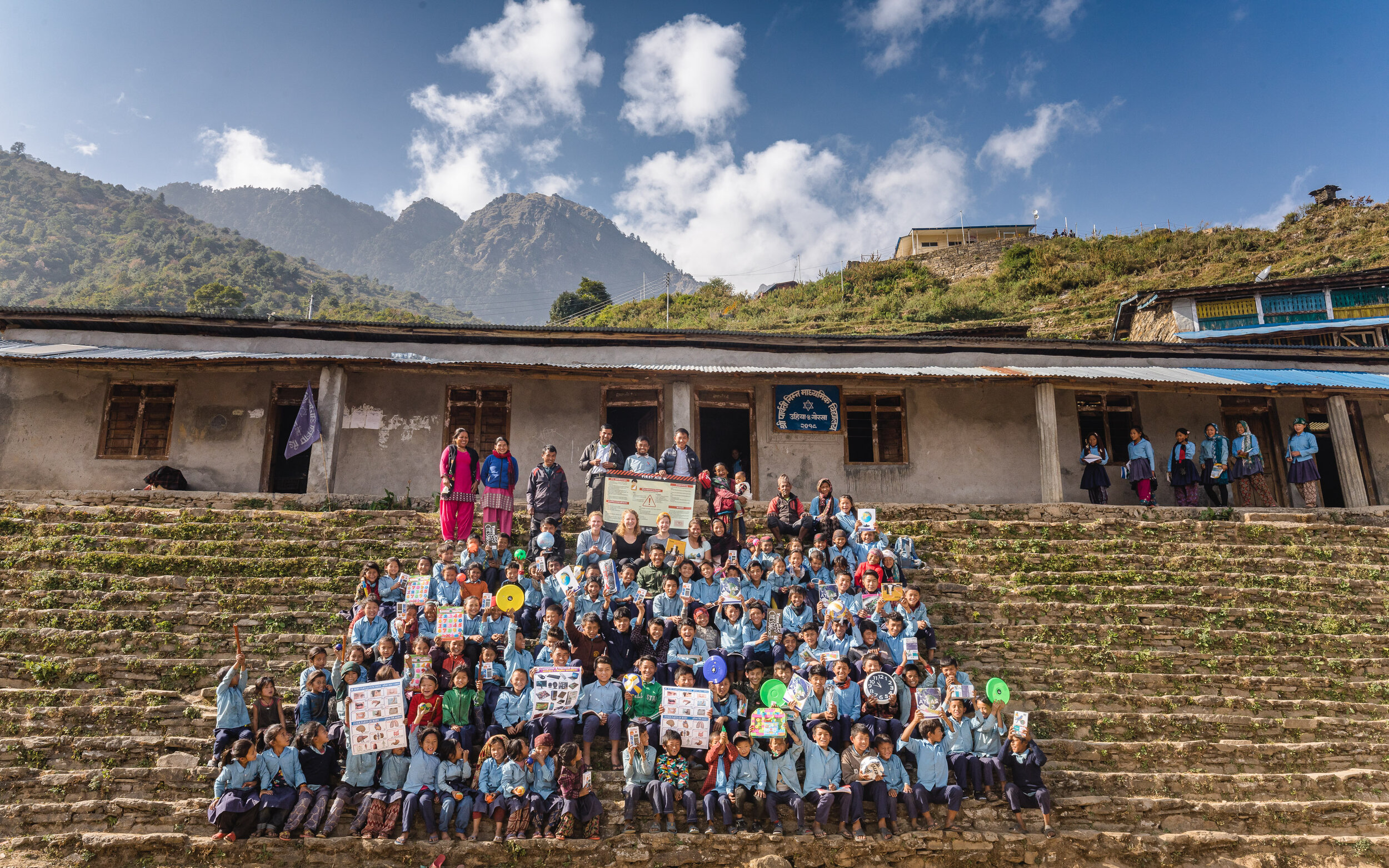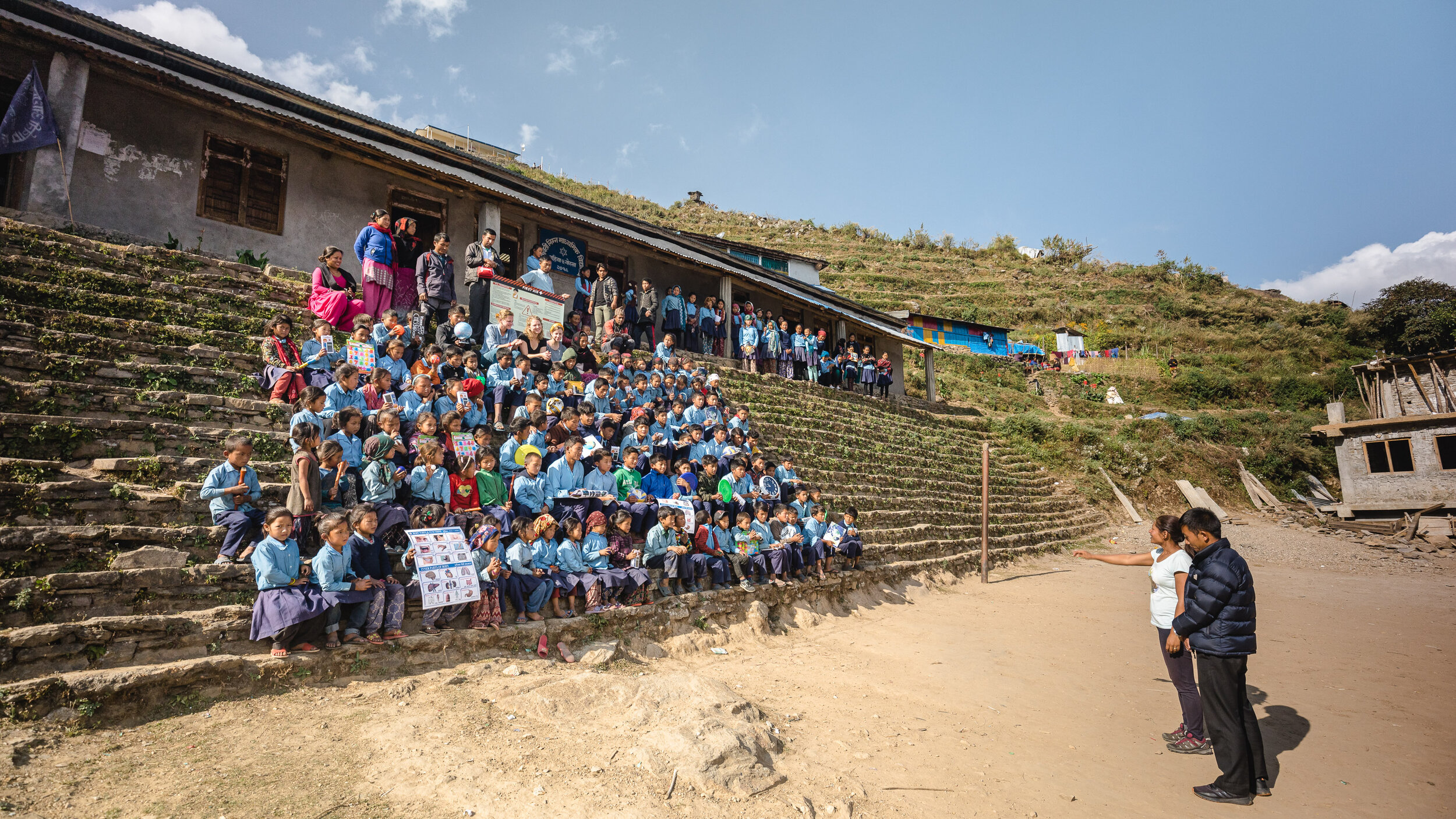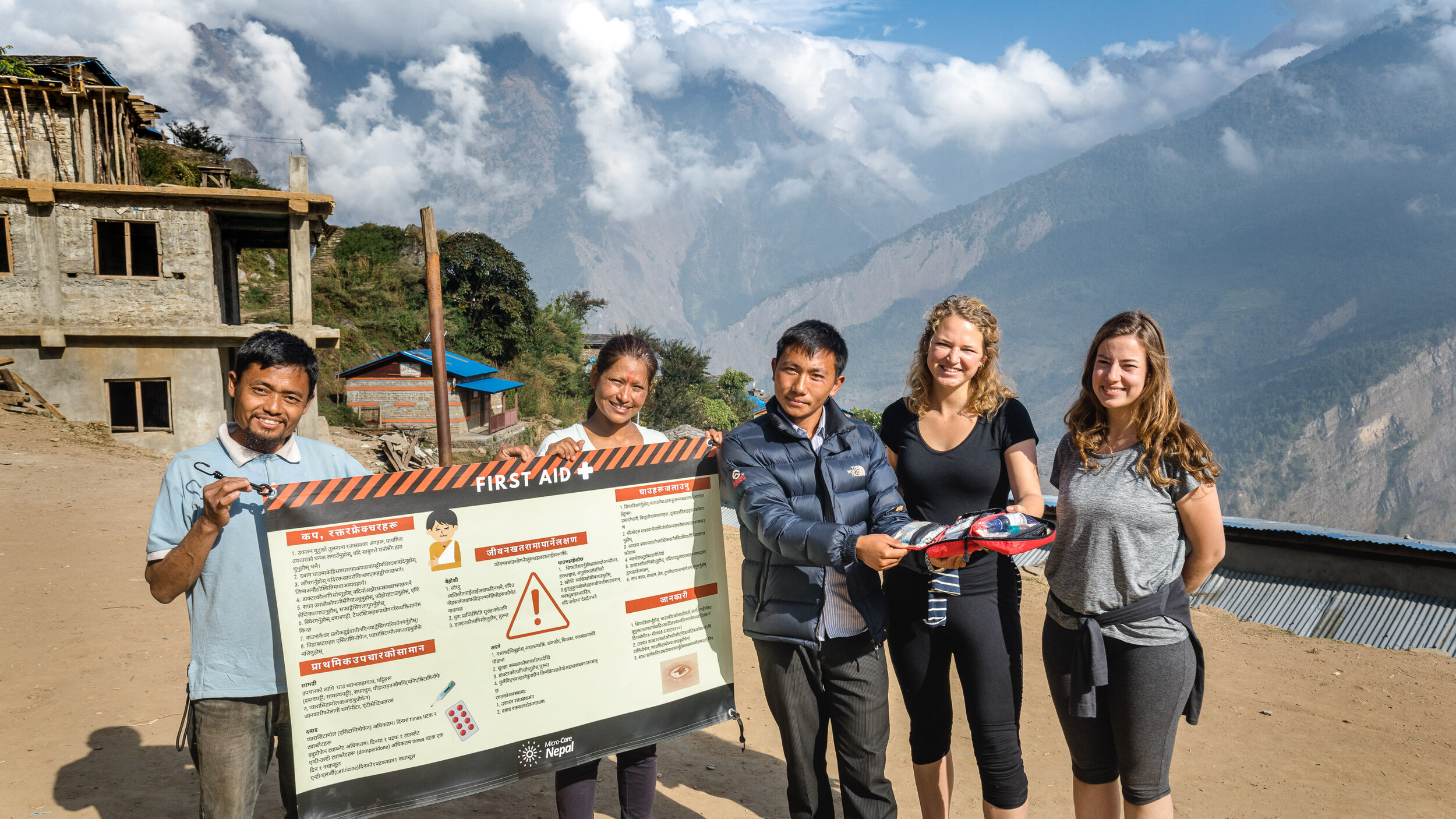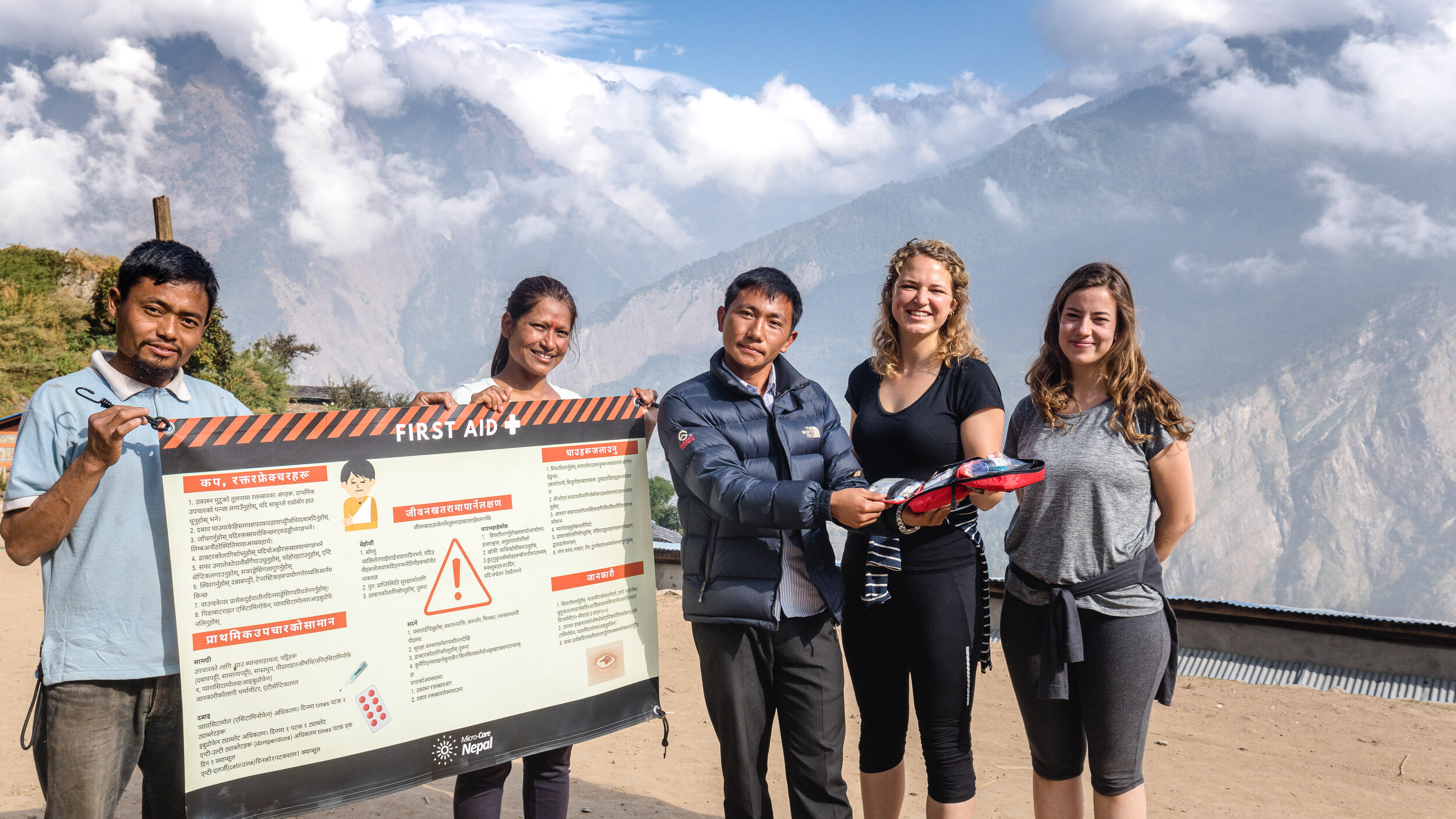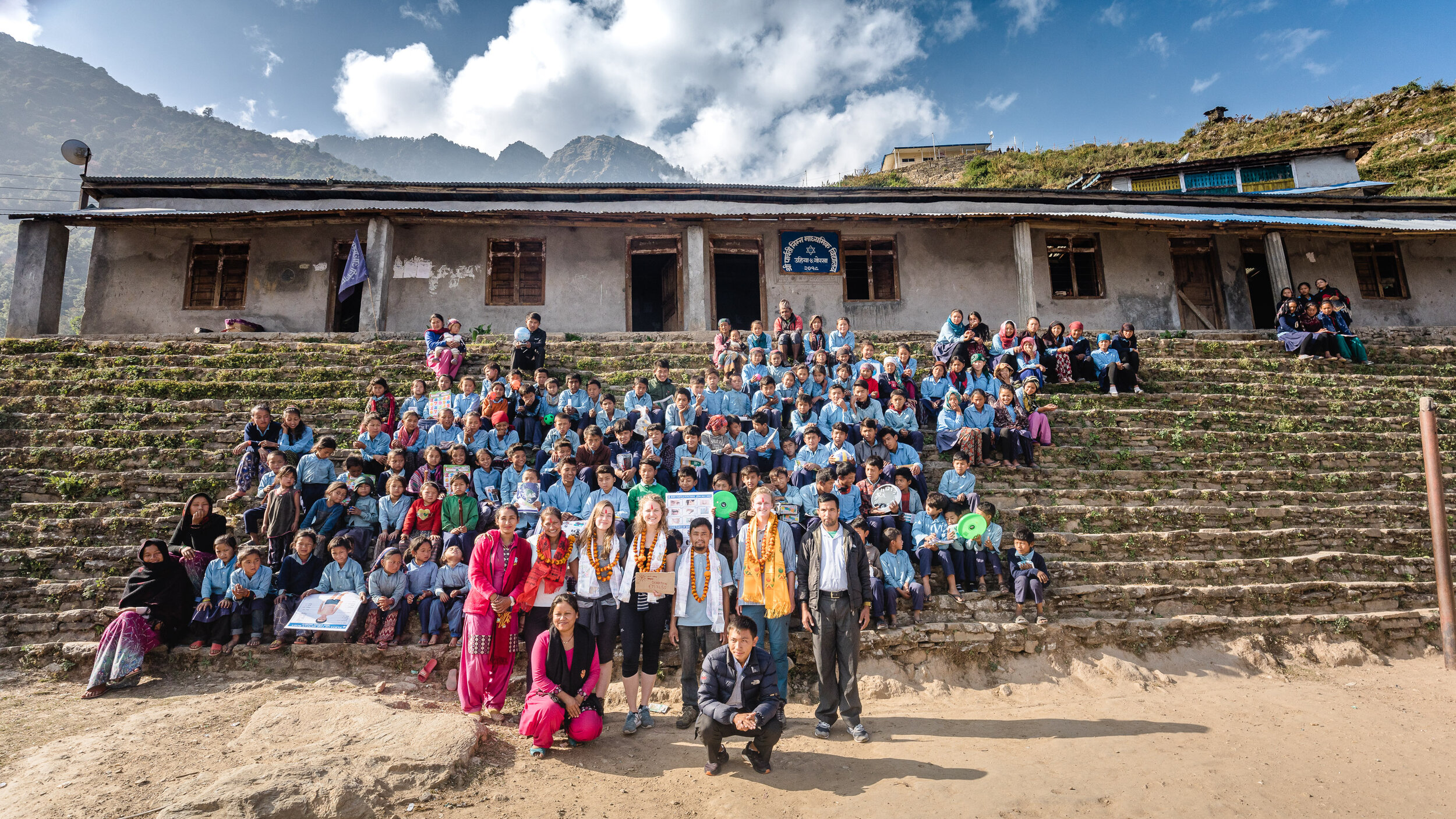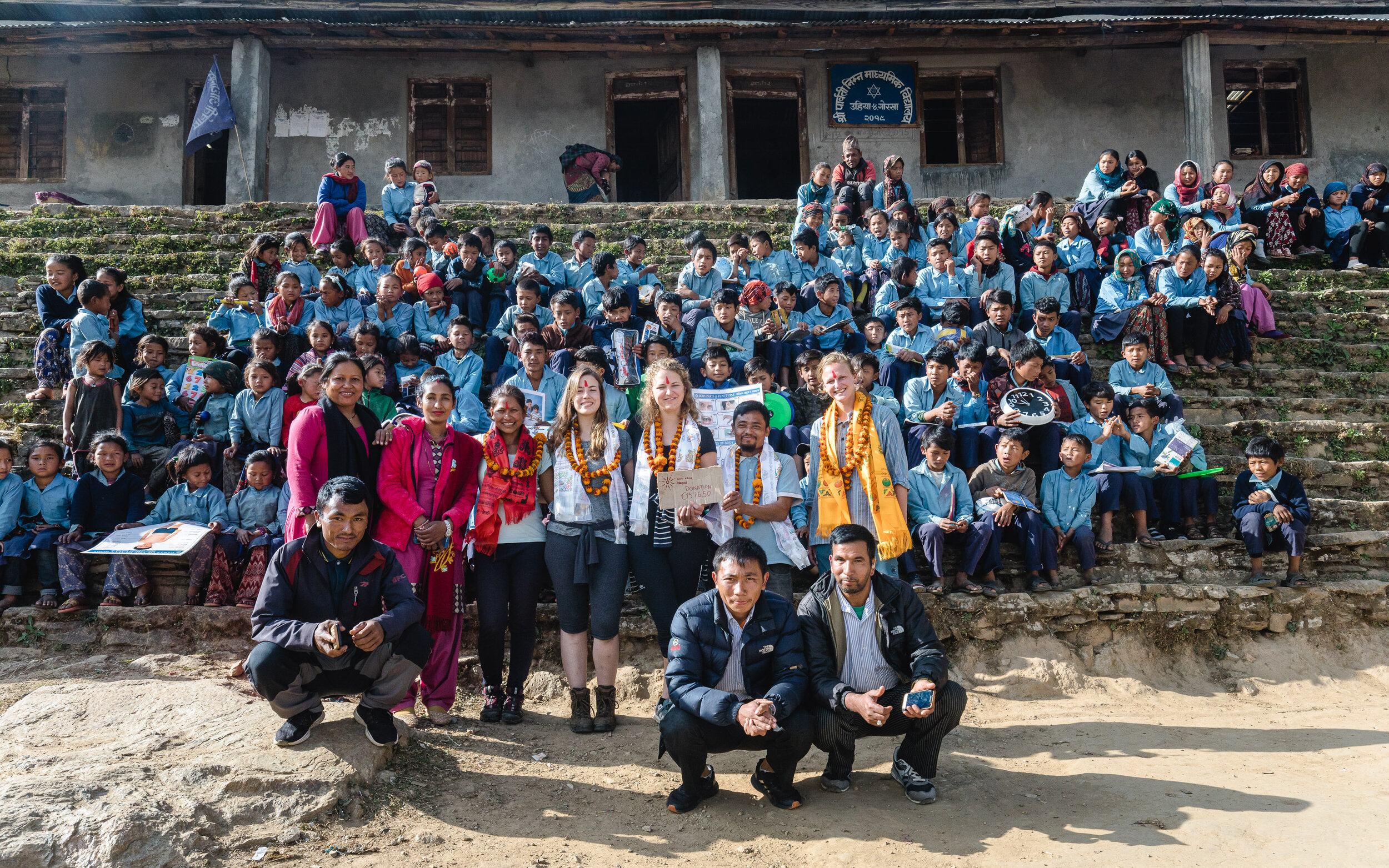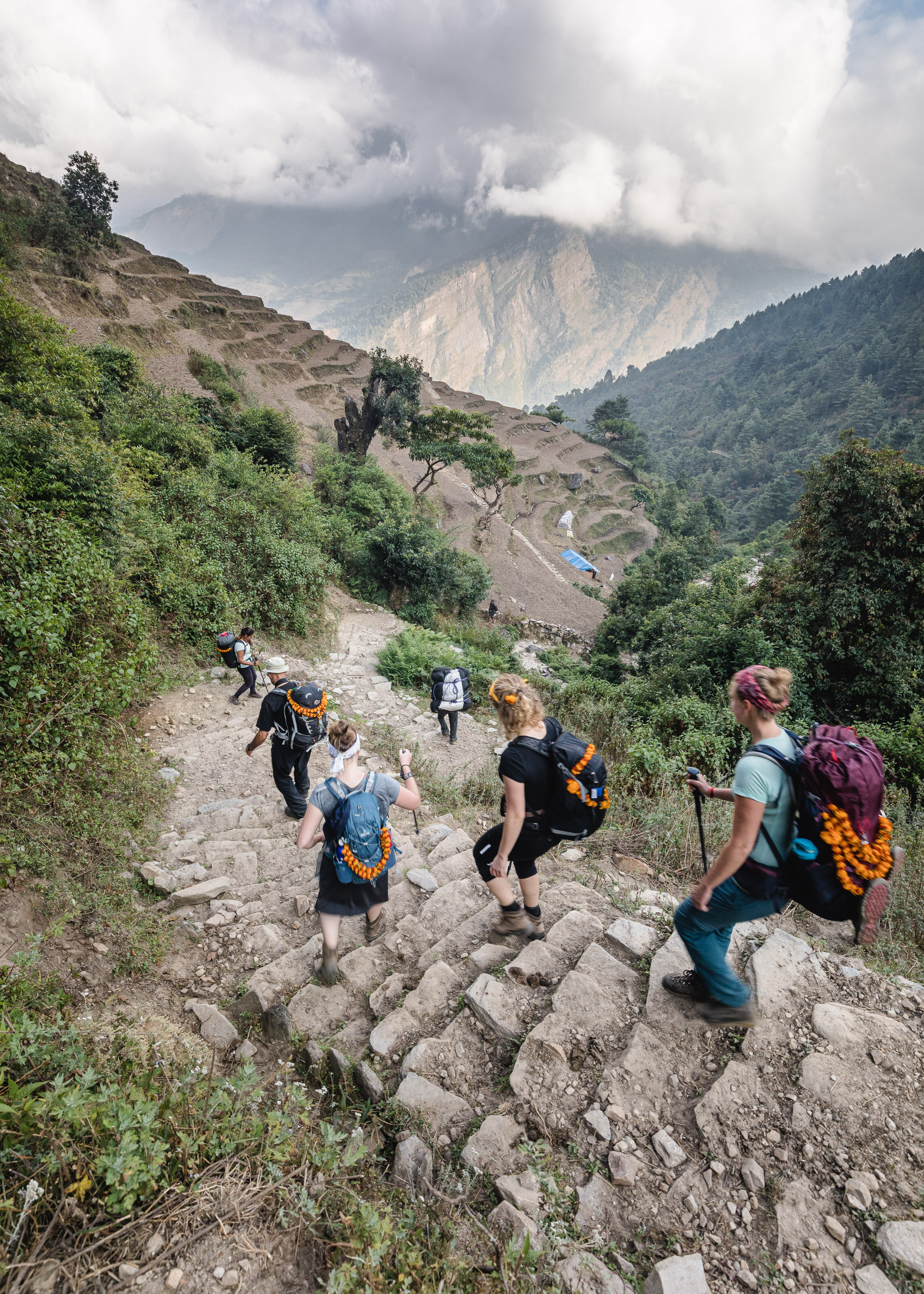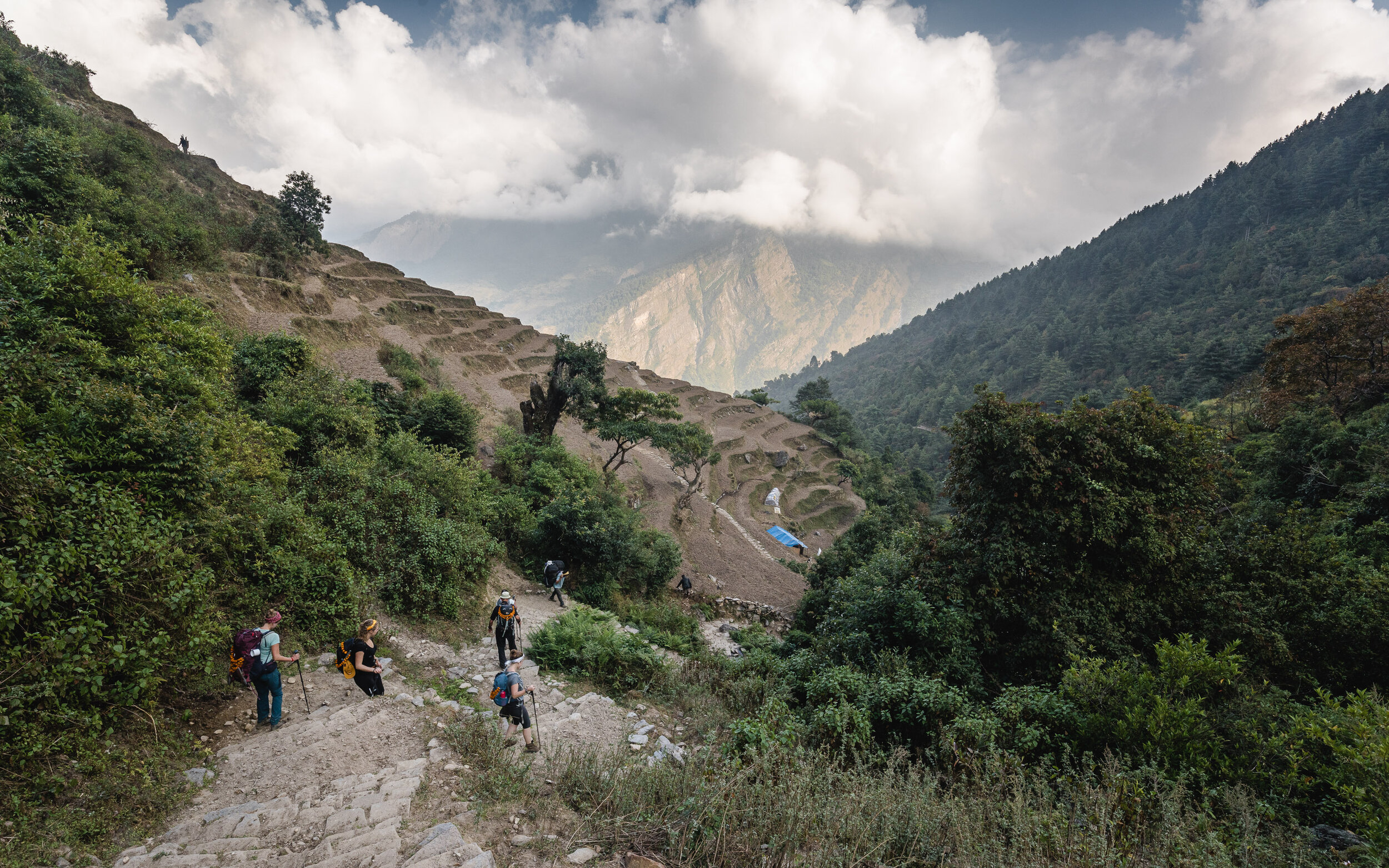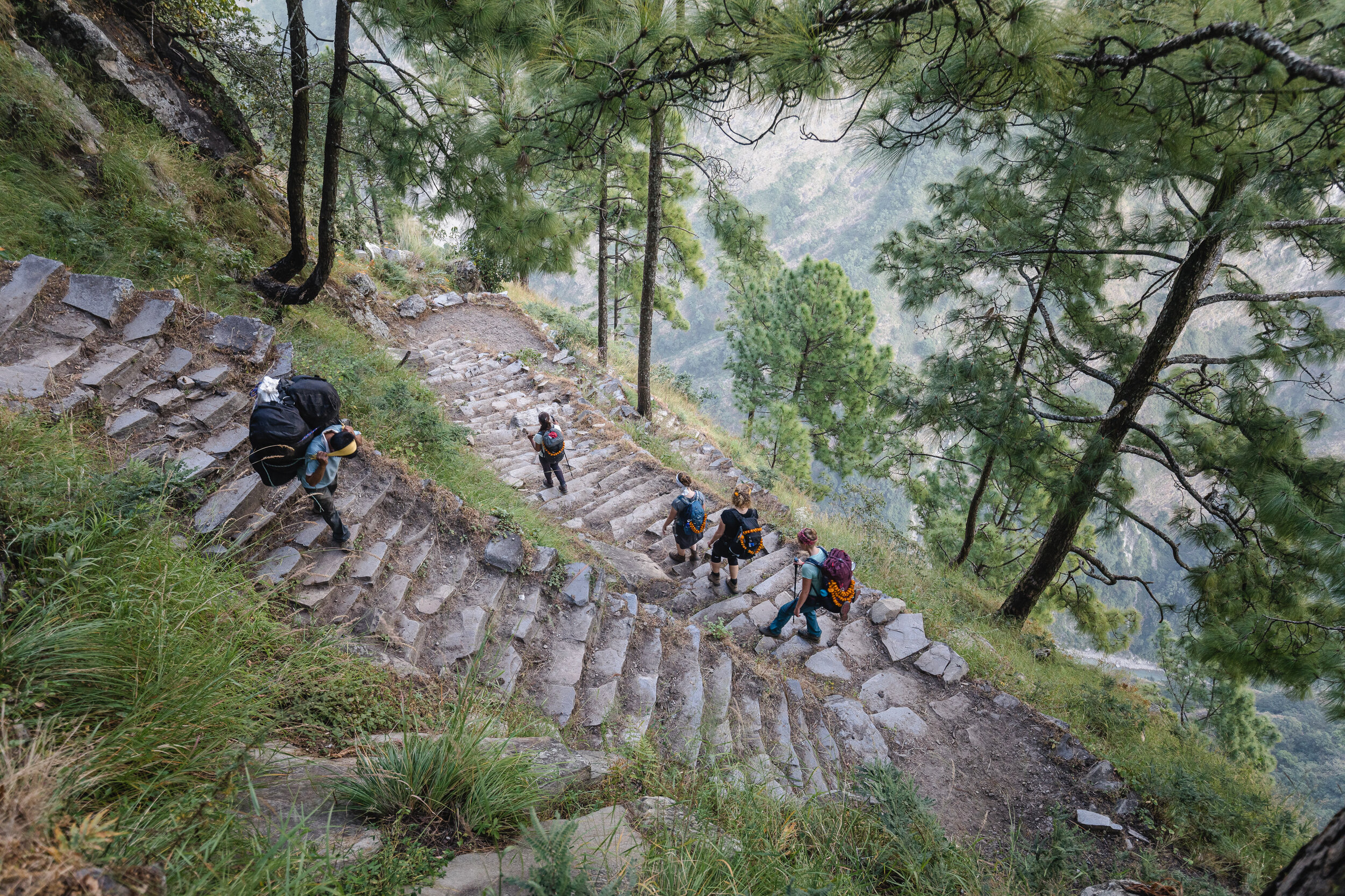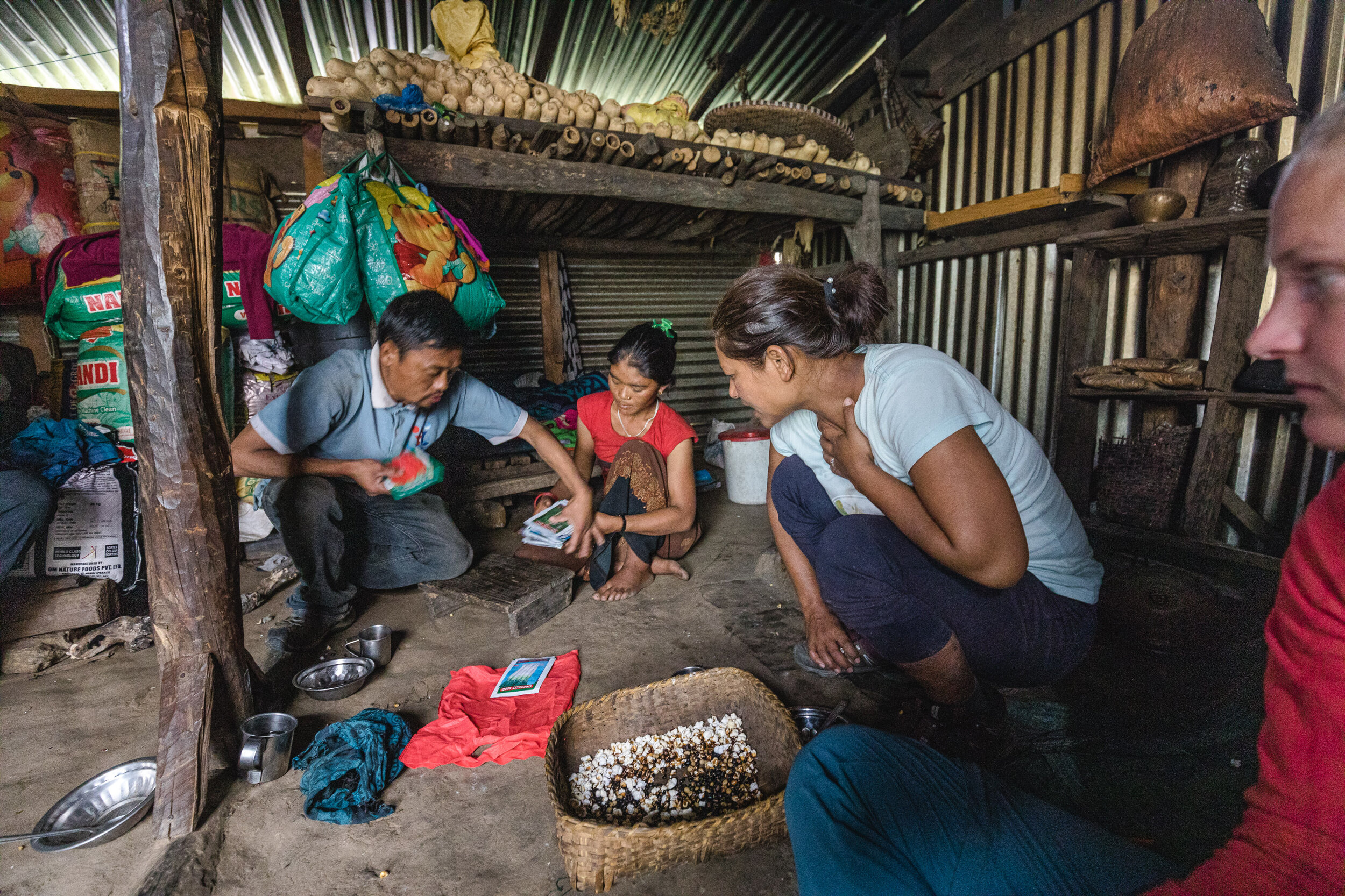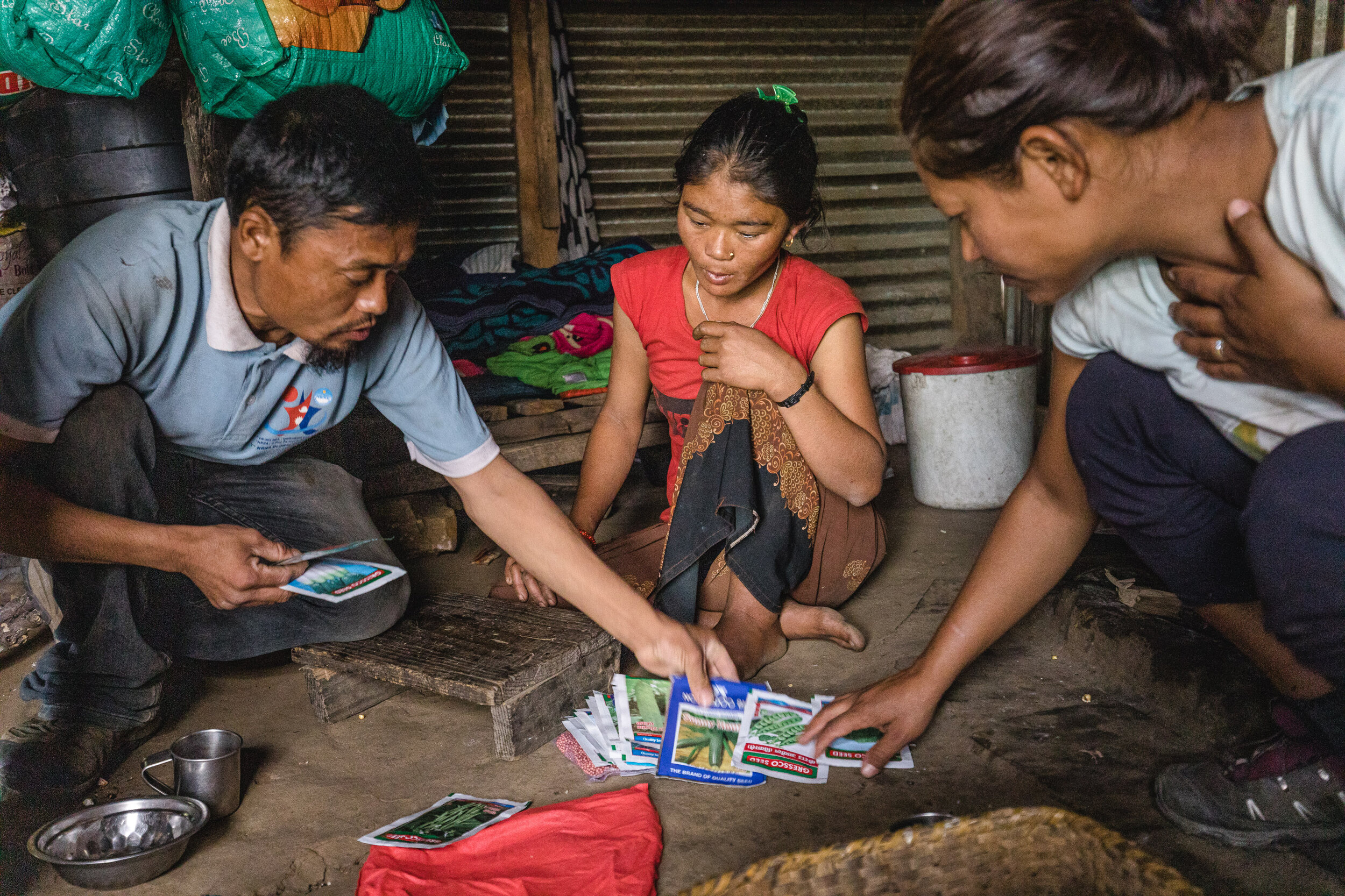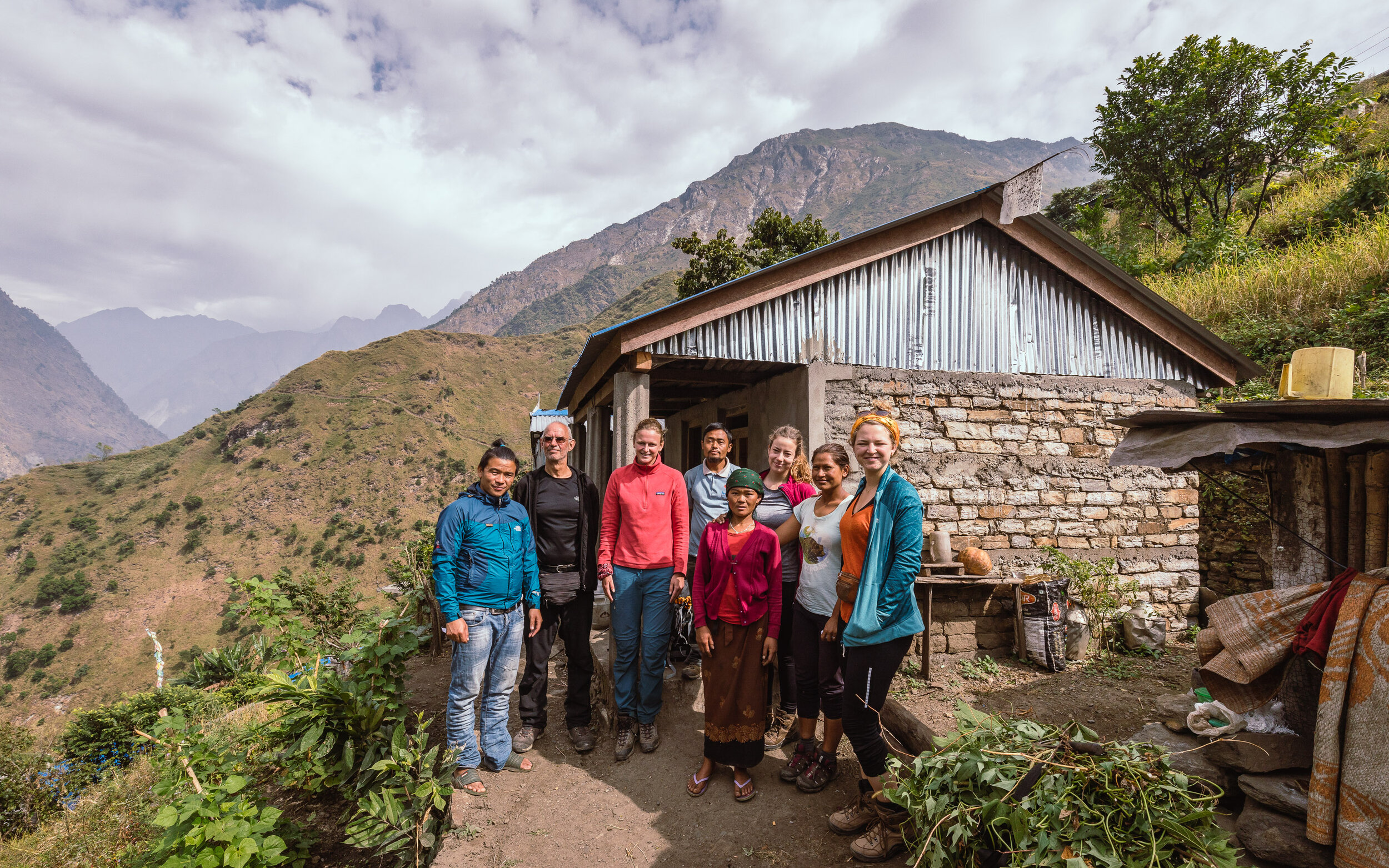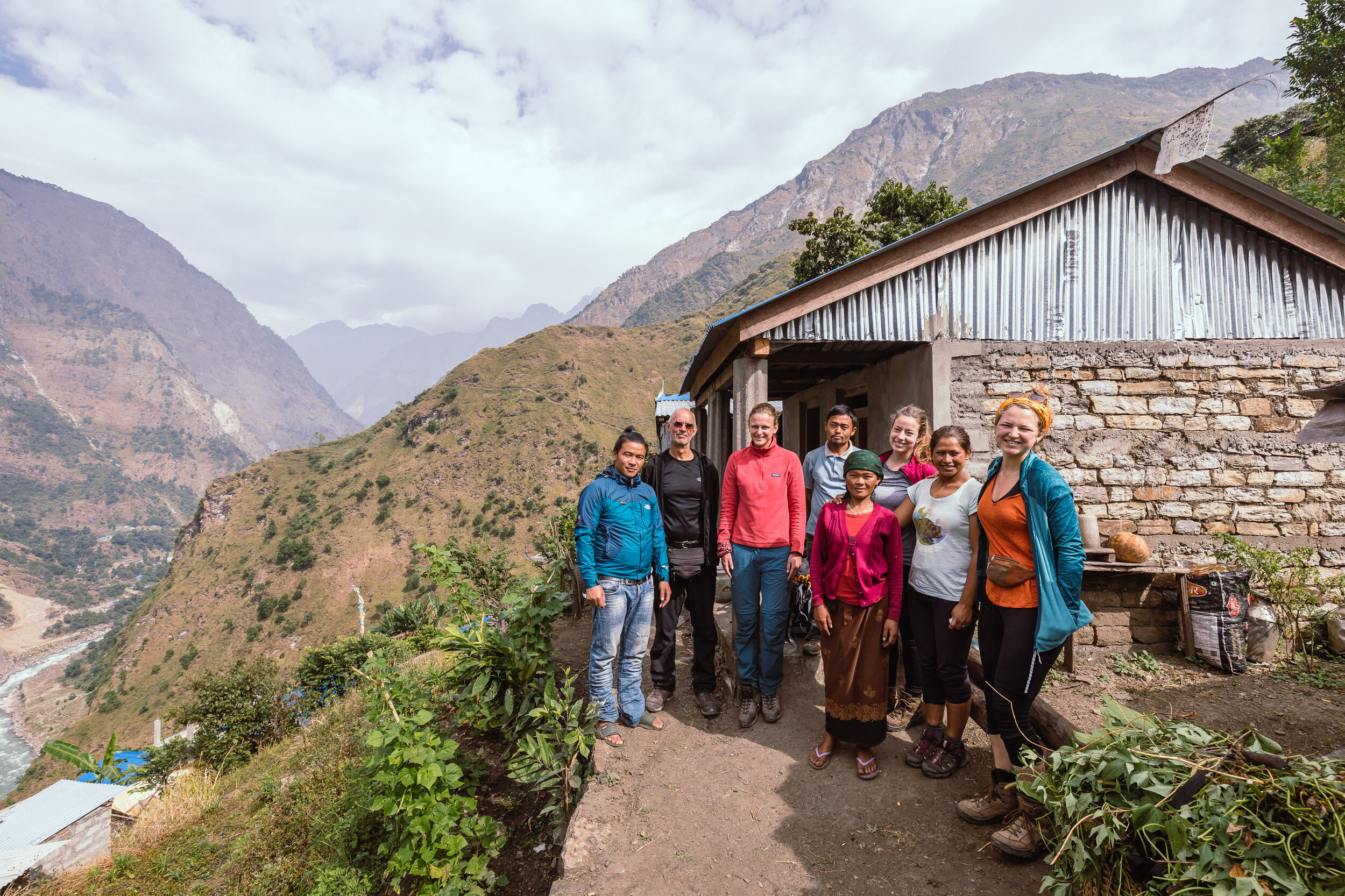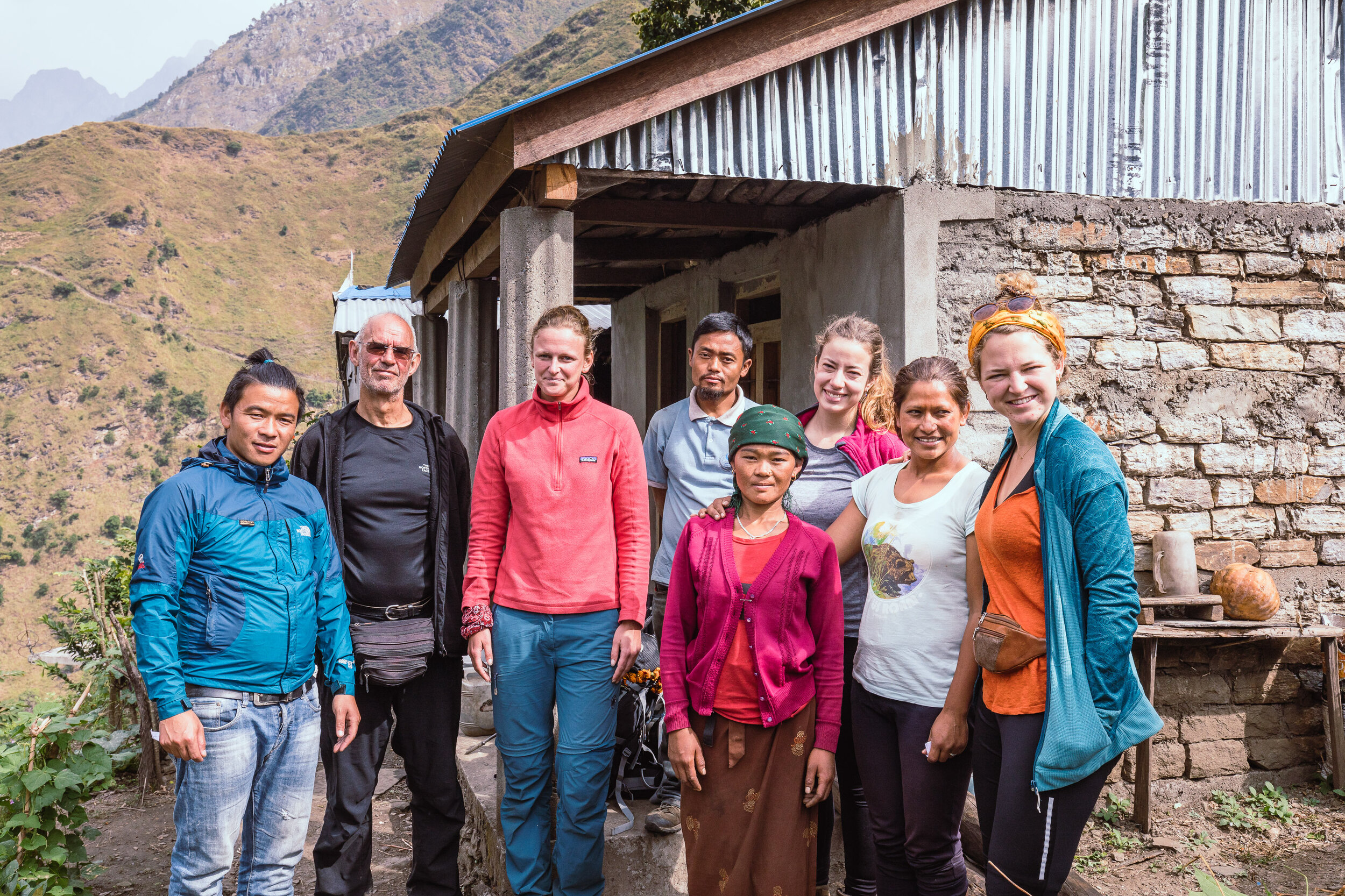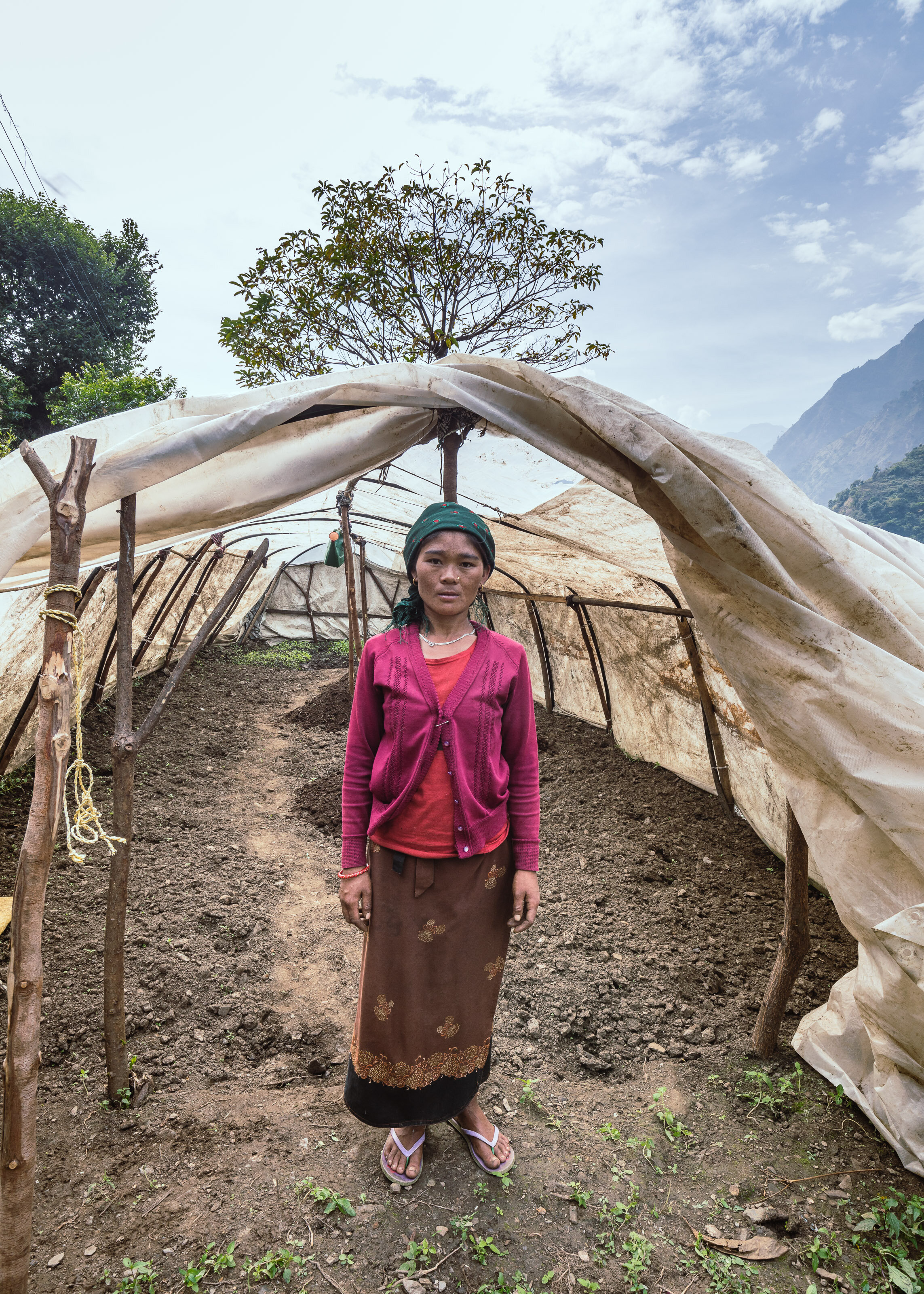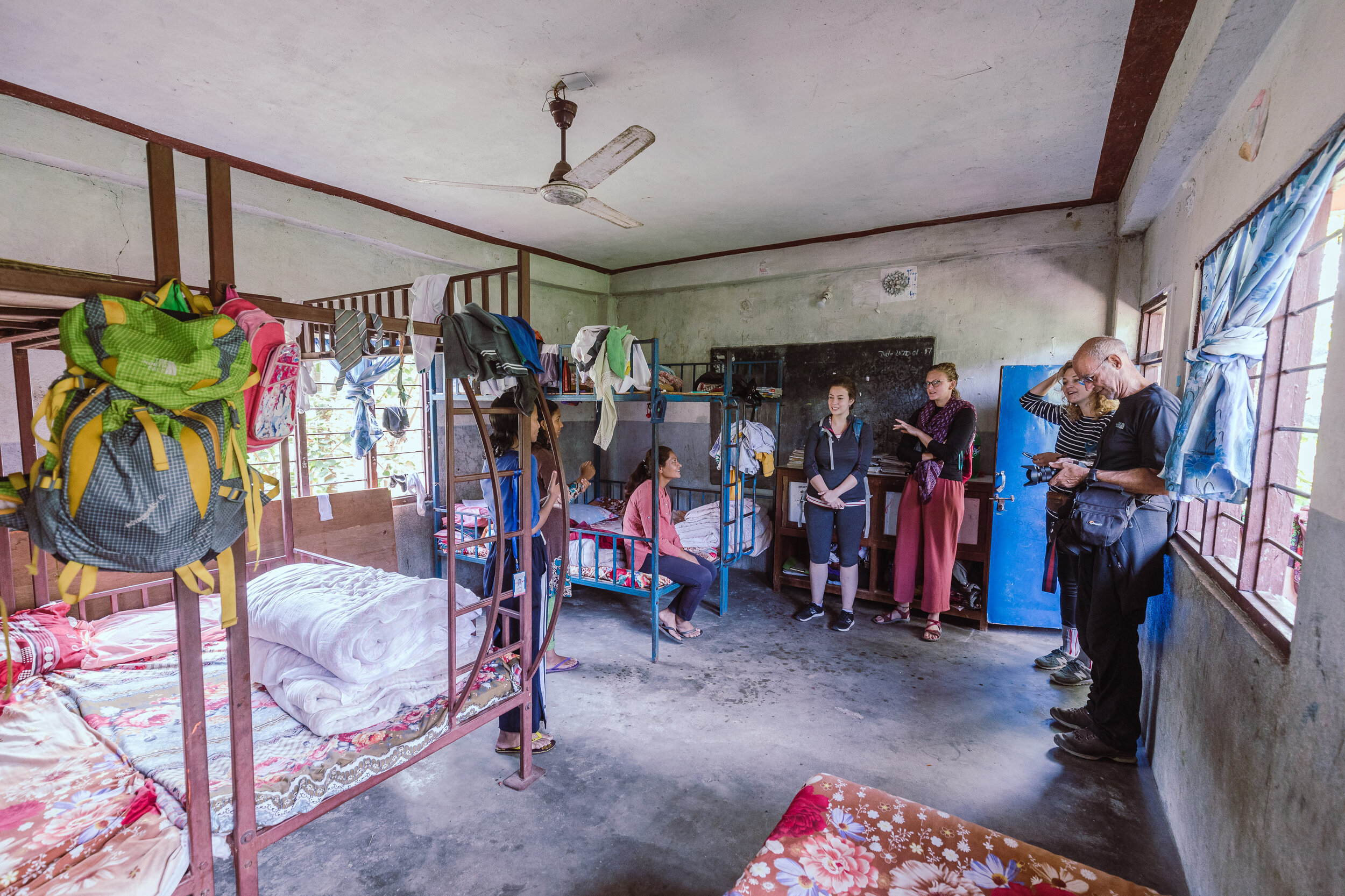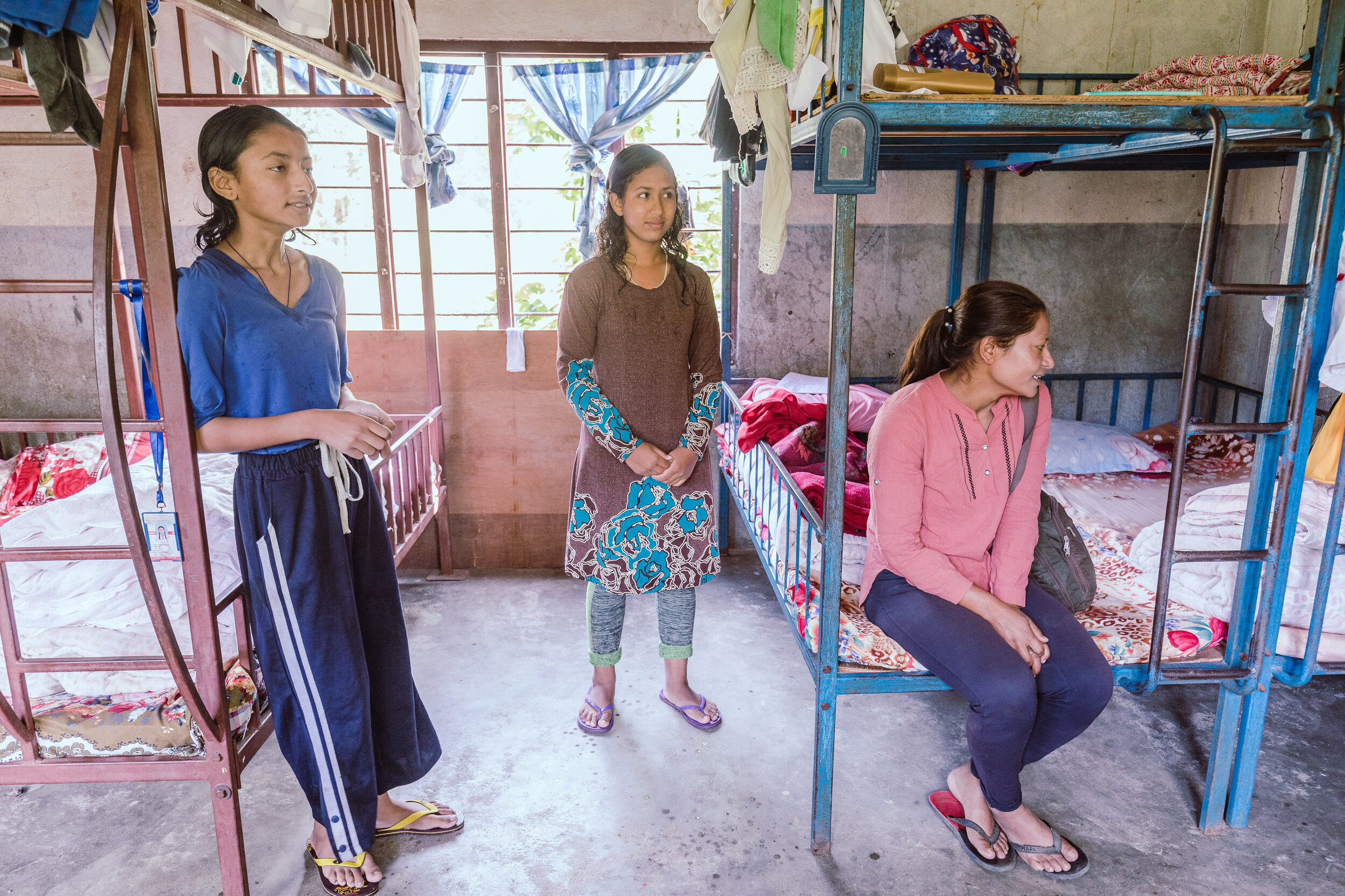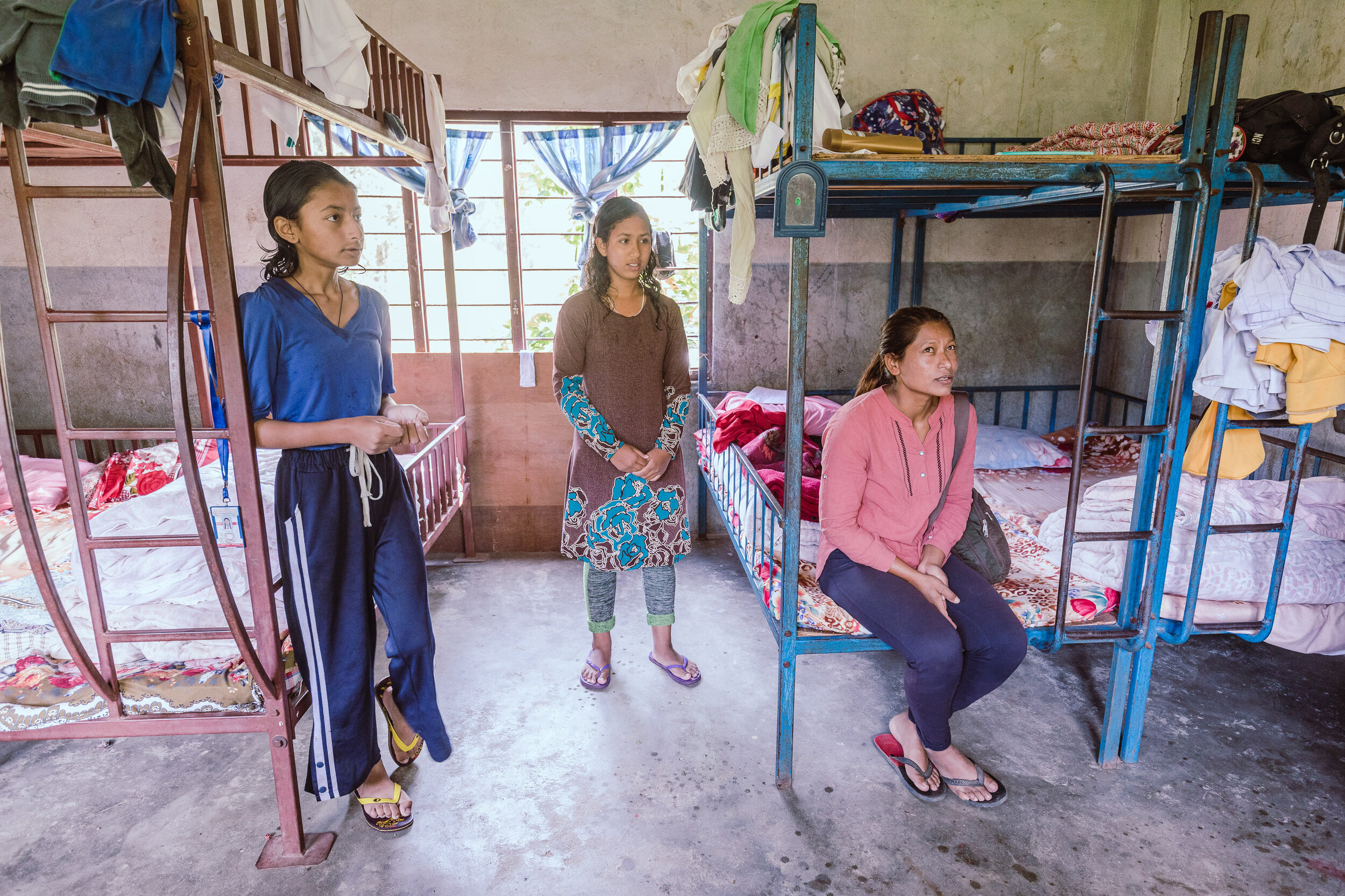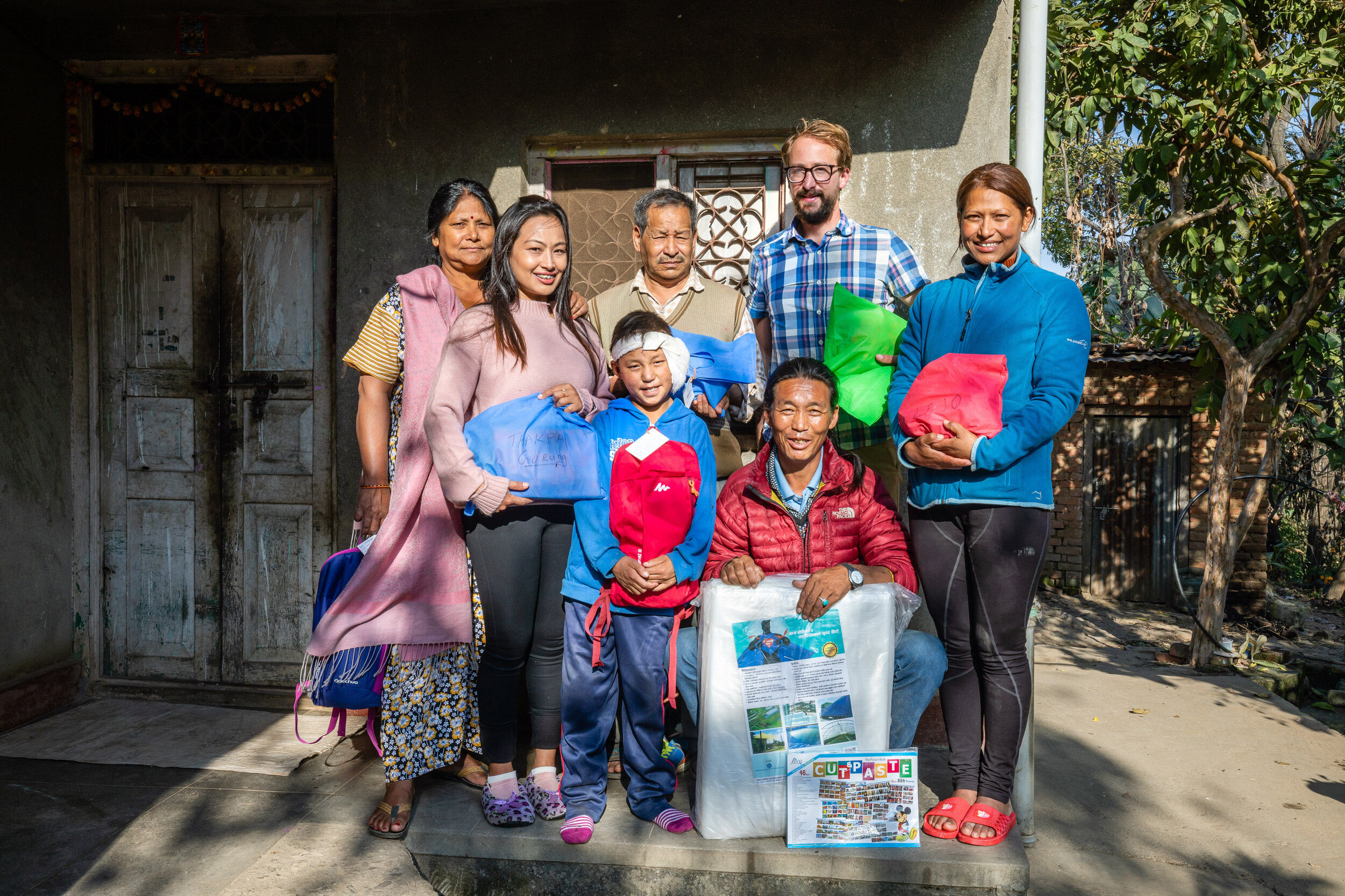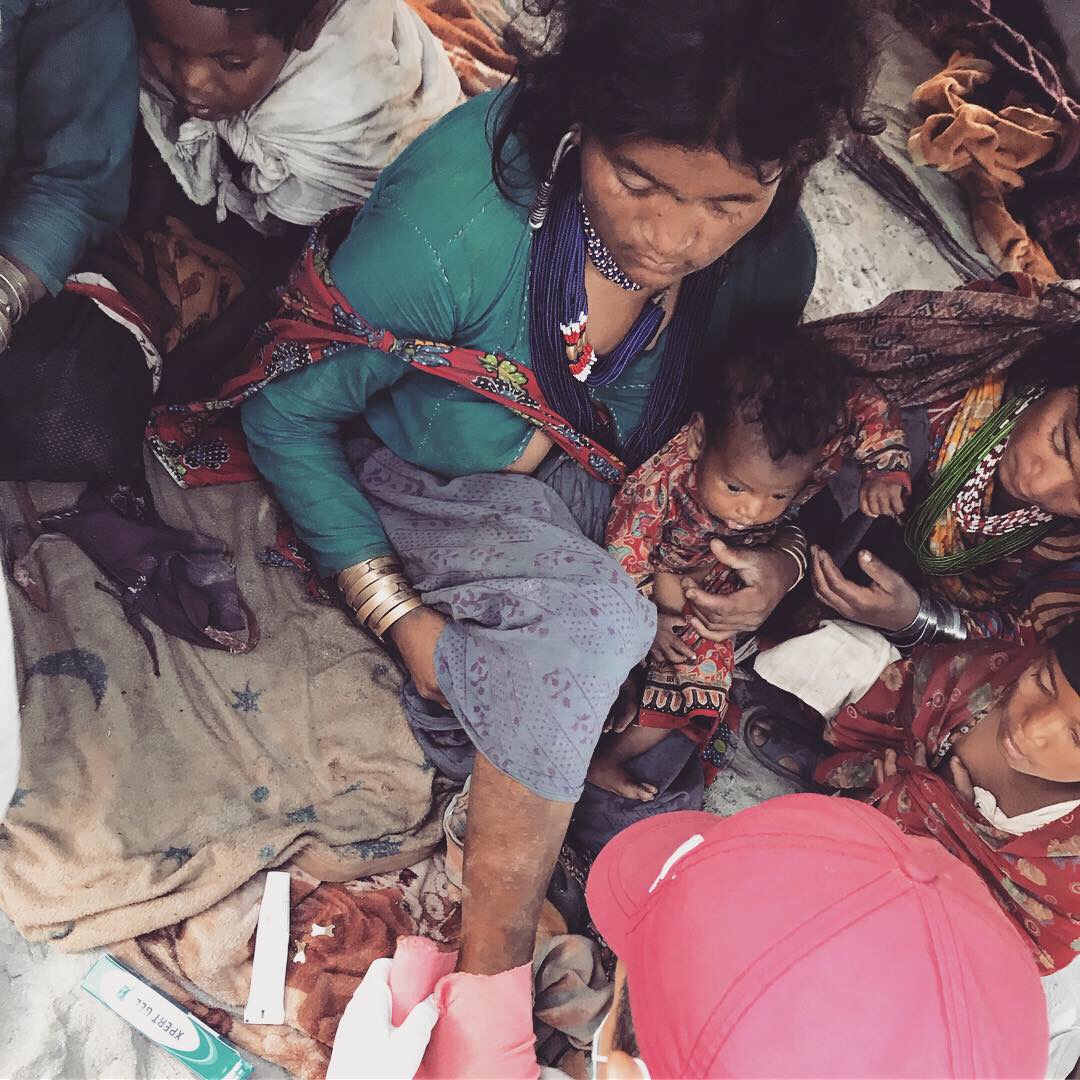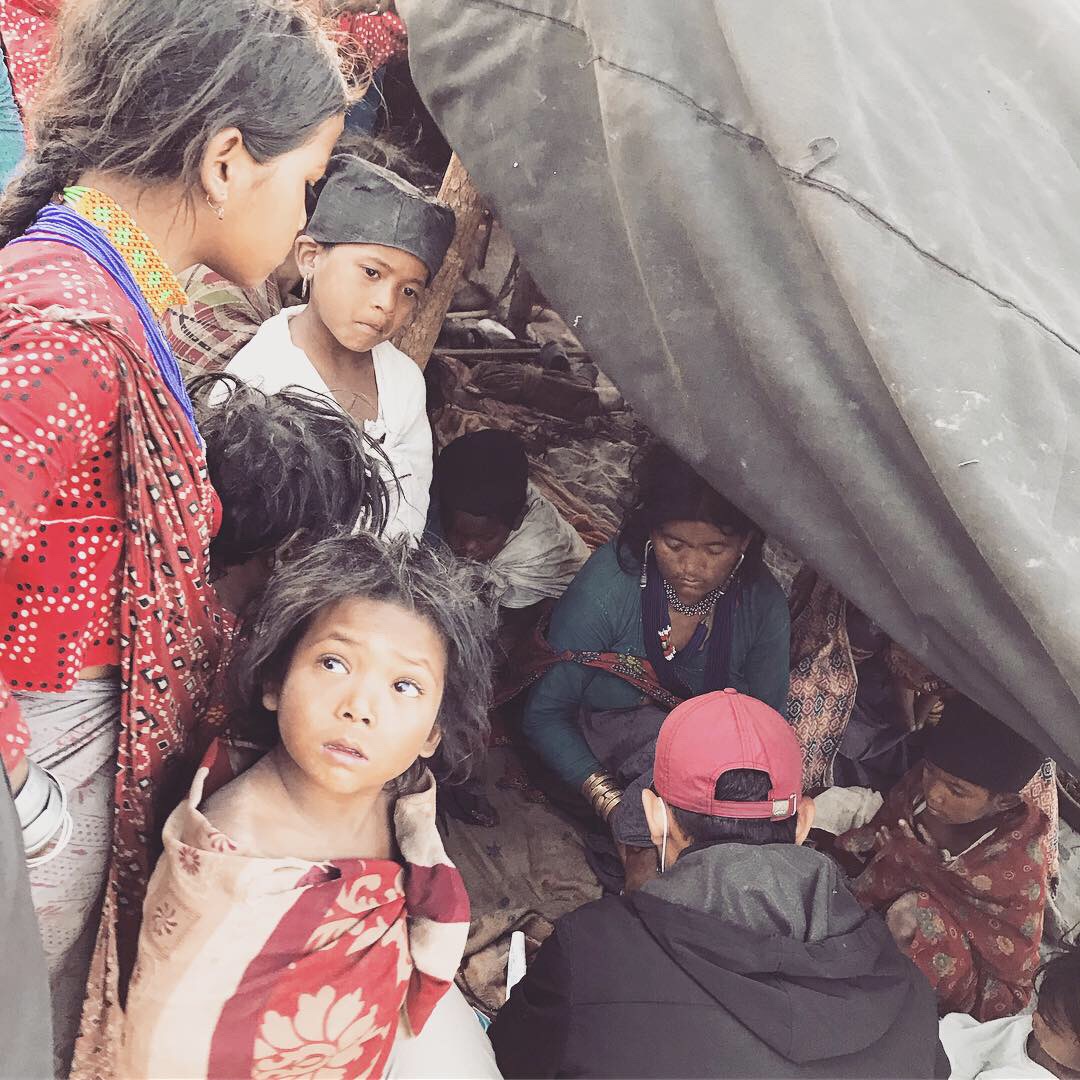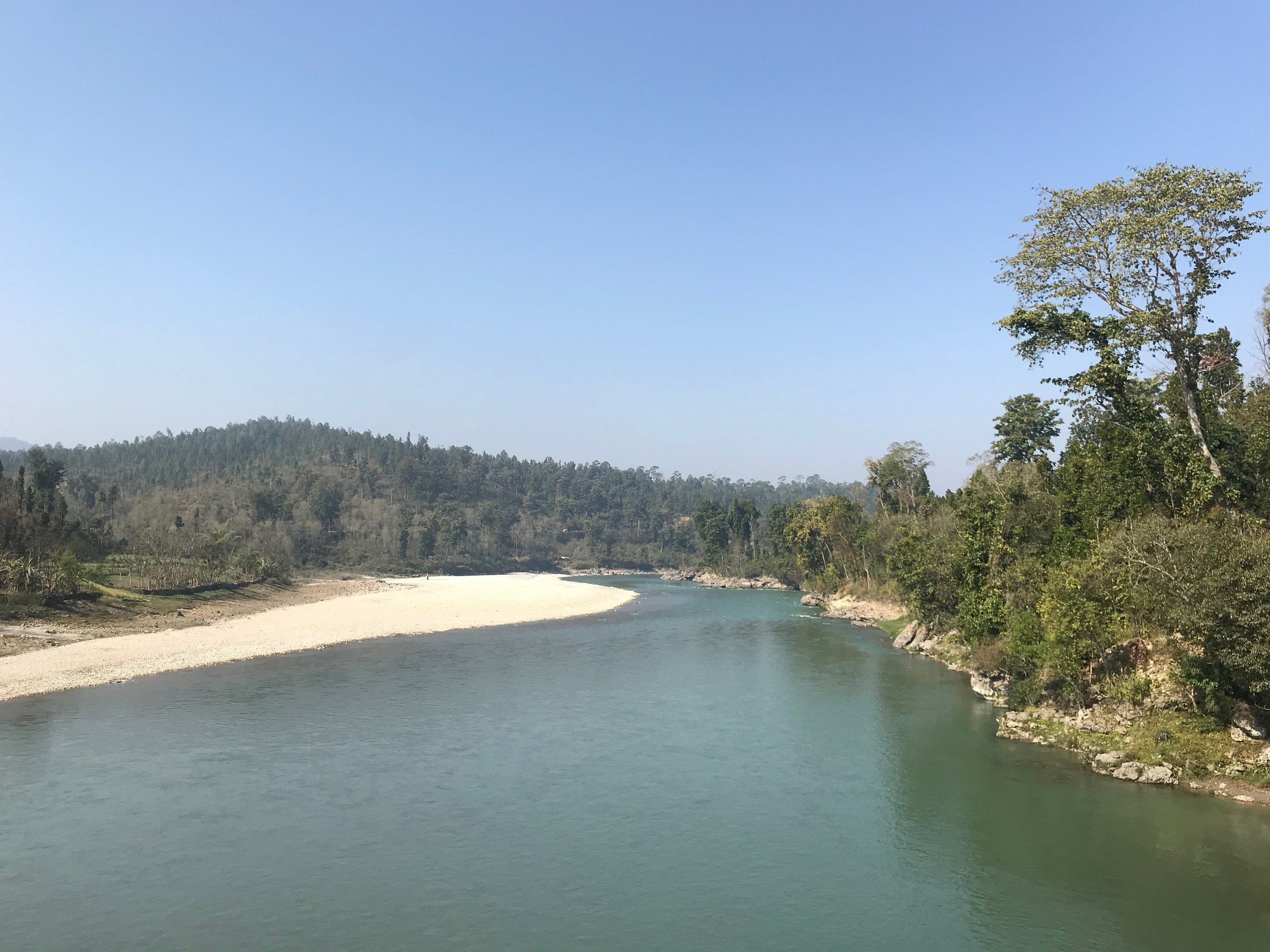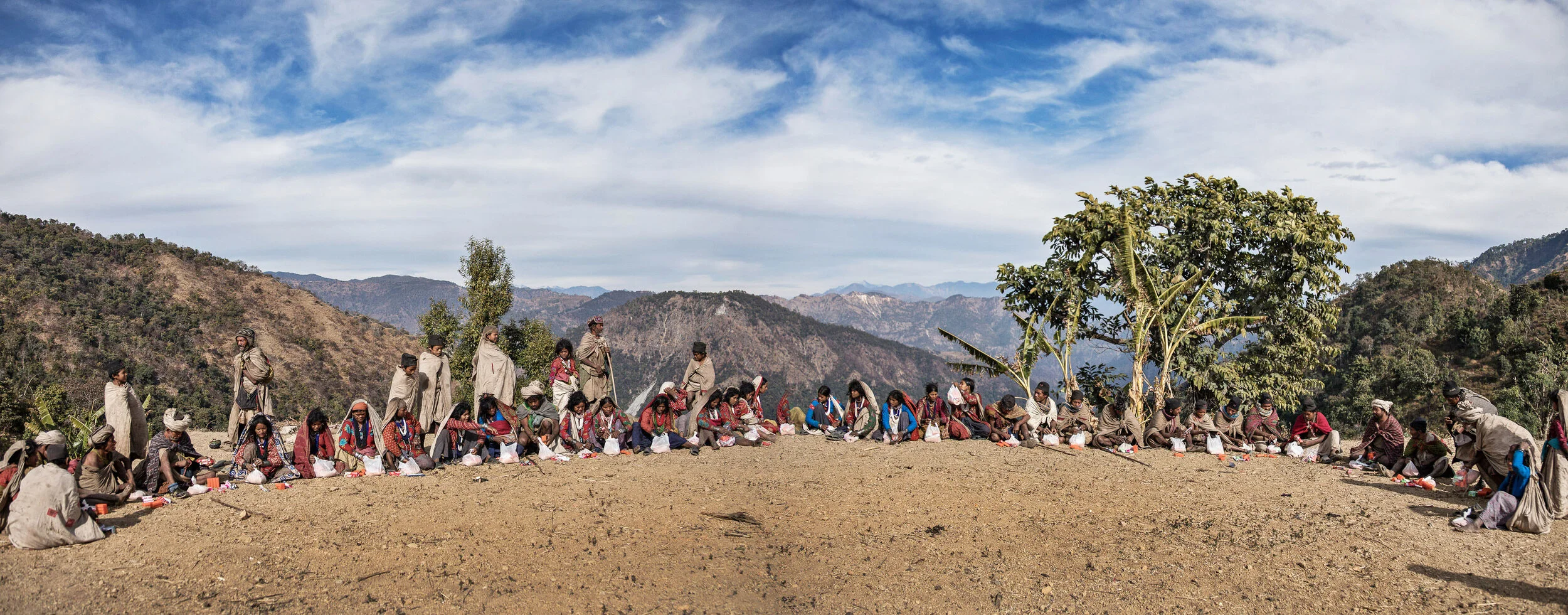Overlopende Healthpost
Voor verdere wondverzorging na het verlenen of krijgen van EHBO, kunnen inwoners terecht in de Healthpost. Dat wil zeggen: een golfplaten gebouw waar de overheid één healthmedewerker uit Kathmandu naartoe stuurde. Deze dame in kwestie - die overigens geweldig werk verricht en heel goed weet waar ze mee bezig is - heeft het echt veel te druk. Ze werkt zeven dagen per week en kampt ook nog met het verlies van haar man die tijdens de aardbevingen omkwam door lawines in de bergen. Ze heeft bovendien te weinig tijd om de Healthpost goed te organiseren; een groot deel van de medicijnen zit daarom in een doos waar af en toe in gegrabbeld wordt en het is onduidelijk welke medicatie er op voorraad zijn.
Tijd voor het geven van verdere voorlichting heeft ze überhaupt niet en ook op scholen wordt hier verder geen aandacht aan besteed. Dat terwijl ongelukken niet alleen in en om het huis gebeuren maar bijvoorbeeld ook op de akkers. De Healthpost is dan op uren loopafstand. Ook hevige sneeuwval maakt de Healthpost soms moeilijk of niet bereikbaar. Weten hoe je hevige bloedingen stopt of vermindert en hoe je de wond verzorgt (met beperkte middelen) is daarom essentiële informatie voor zowel kinderen als volwassenen en mogelijk levensreddend. Je begrijpt dat Micro-Care Nepal dan ook met open armen werden ontvangen om voorlichting te geven middels EHBO-lessen en om te helpen met wat hand- en spandiensten in en rondom de Healthpost. Daarnaast doneerden we EHBO-materiaal, zoals (druk)verbanden, pleisters, tape, antibioticakuren en betadine.
Seksuele voorlichting op je dertigste
Na een paar dagen lesgeven op de scholen was het tijd voor onze tweede missie, het voorlichten van vrouwen over typische vrouwenkwalen. Hoewel ik in mijn dagelijkse leven als gezondheidsredacteur nooit uitgepraat ben over zaken als vaginale klachten en vleesbomen, behoeft dit - voor de meeste mensen toch wat schaamtegevoelige onderwerp - een iets genuanceerdere introductie in het verlegen Nepal. Om te voorkomen dat we de vrouwen al op voorhand zouden afschrikken, hebben we deze vrouwenles achter de EHBO-les geplakt zonder dit vooraf te communiceren. Door de enkele aanwezige mannen de deur te wijzen na de uitleg over EHBO en vooral niet met de vrouwen mee te giechelen (alhoewel dit soms erg lastig was), lukte het mij en mijn collega Samjhana (de vriendin van oprichter van de stichting, Pim Horvers) om serieus met deze vrouwen in gesprek te gaan over onderwerpen, zoals menstruatie, zwangerschap, hevig bloedverlies, bekkenbodemverzakking en het vrouwenlichaam, met name de werking en functie van baarmoeder en eierstokken. Na onze eerste les werd hierover uiteraard flink geroddeld in het lagergelegen Laprak, maar dit weerhield een tweede groep vrouwen er niet van om de volgende dag in de vroege ochtend twee uur naar boven te wandelen om aanwezig te zijn bij een soortgelijke les.
‘Bad blood’
Op mijn vraag of de dames enig idee hadden waarom ze menstrueerden, kreeg ik een opmerkelijk antwoord: vrouwen menstrueren omdat ze slecht bloed ‘bad blood’ hebben. Ik vermoed dat deze gedachte ontstaan is door het afwijkende uiterlijk van menstruatiebloed in vergelijking met ‘normaal’ bloed. Voor de mannen onder ons: menstruatiebloed is donkerrood tot heel donkerbruin en soms klonterig. ’Bad blood’ is ook de reden dat veel Nepalese vrouwen tijdens hun menstruatie niet in bed of zelfs in het huis mogen slapen van hun man. Uiteraard was het onmogelijk om deze ‘volkswijsheid’ in een uurtje volledig de kop in te drukken. Toch lukte het door met plaatjes van de baarmoeder en eierstokken en uitleg over de menstruatiecyclus - dat het vrouwenlichaam zichzelf iedere maand klaarmaakt voor een zwangerschap bijvoorbeeld en zonder bevruchting dit weefsel ook weer afscheidt - wel om bij deze vrouwen meer bewondering en respect te creëren voor hun lichaam.
